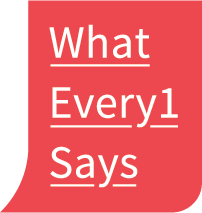(all)
Global Humanities | History of Humanities | Liberal Arts | Humanities and Higher Education | Humanities as Research Activity | Humanities Teaching & Curricula | Humanities and the Sciences | Medical Humanities | Public Humanities | Humanities Advocacy | Humanities and Social Groups | Value of Humanities | Humanities and Economic Value | Humanities Funding | Humanities Statistics | Humanities Surveys | "Crisis" of the Humanities
Humanities Organizations: Humanities Councils (U.S.) | Government Agencies | Foundations | Scholarly Associations
Humanities in: Africa | Asia (East) | Asia (South) | Australasia | Europe | Latin America | Middle East | North America: Canada - Mexico - United States | Scandinavia | United Kingdom
(all)
Lists of News Sources | Databases with News Archives | History of Journalism | Journalism Studies | Journalism Statistics | Journalism Organizations | Student Journalism | Data Journalism | Media Frames (analyzing & changing media narratives using "frame theory") | Media Bias | Fake News | Journalism and Minorities | Journalism and Women | Press Freedom | News & Social Media
(all)
Corpus Representativeness
Comparison paradigms for idea of a corpus: Archives as Paradigm | Canons as Paradigm | Editions as Paradigm | Corpus Linguistics as Paradigm
(all)
Artificial Intelligence | Big Data | Data Mining | Data Notebooks (Jupyter Notebooks) | Data Visualization (see also Topic Model Visualizations) | Hierarchical Clustering | Interpretability & Explainability (see also Topic Model Interpretation) | Mapping | Natural Language Processing | Network Analysis | Open Science | Reporting & Documentation Methods | Reproducibility | Sentiment Analysis | Social Media Analysis | Statistical Methods | Text Analysis (see also Topic Modeling) | Text Classification | Wikification | Word Embedding & Vector Semantics
Topic Modeling (all)
Selected DH research and resources bearing on, or utilized by, the WE1S project.
(all)
Distant Reading | Cultural Analytics | | Sociocultural Approaches | Topic Modeling in DH | Non-consumptive Use
Searchable version of bibliography on Zotero site
For WE1S developers: Biblio style guide | Biblio collection form (suggest additions) | WE1S Bibliography Ontology Outline
2133649
DH Digital Humanities
1
chicago-fullnote-bibliography
50
date
desc
year
1
1
1
3848
https://we1s.ucsb.edu/wp-content/plugins/zotpress/
%7B%22status%22%3A%22success%22%2C%22updateneeded%22%3Afalse%2C%22instance%22%3Afalse%2C%22meta%22%3A%7B%22request_last%22%3A50%2C%22request_next%22%3A50%2C%22used_cache%22%3Atrue%7D%2C%22data%22%3A%5B%7B%22key%22%3A%22PTURH59S%22%2C%22library%22%3A%7B%22id%22%3A2133649%7D%2C%22meta%22%3A%7B%22lastModifiedByUser%22%3A%7B%22id%22%3A606076%2C%22username%22%3A%22glyvan%22%2C%22name%22%3A%22Scott%20Kleinman%22%2C%22links%22%3A%7B%22alternate%22%3A%7B%22href%22%3A%22https%3A%5C%2F%5C%2Fwww.zotero.org%5C%2Fglyvan%22%2C%22type%22%3A%22text%5C%2Fhtml%22%7D%7D%7D%2C%22creatorSummary%22%3A%22Viola%20and%20Spence%22%2C%22parsedDate%22%3A%222023%22%2C%22numChildren%22%3A0%7D%2C%22bib%22%3A%22%26lt%3Bdiv%20class%3D%26quot%3Bcsl-bib-body%26quot%3B%20style%3D%26quot%3Bline-height%3A%201.35%3B%20padding-left%3A%201em%3B%20text-indent%3A-1em%3B%26quot%3B%26gt%3B%5Cn%20%20%26lt%3Bdiv%20class%3D%26quot%3Bcsl-entry%26quot%3B%26gt%3BViola%2C%20Lorella%2C%20and%20Paul%20Spence%2C%20eds.%20%26lt%3Bi%26gt%3BMultilingual%20Digital%20Humanities%26lt%3B%5C%2Fi%26gt%3B.%20Digital%20Research%20in%20the%20Arts%20and%20Humanities.%20Abingdon%2C%20Oxon%26%23x202F%3B%3B%20New%20York%2C%20NY%3A%20Routledge%2C%202023.%20%26lt%3Ba%20title%3D%26%23039%3BCite%20in%20RIS%20Format%26%23039%3B%20class%3D%26%23039%3Bzp-CiteRIS%26%23039%3B%20data-zp-cite%3D%26%23039%3Bapi_user_id%3D2133649%26amp%3Bitem_key%3DPTURH59S%26%23039%3B%20href%3D%26%23039%3Bjavascript%3Avoid%280%29%3B%26%23039%3B%26gt%3BCite%26lt%3B%5C%2Fa%26gt%3B%20%26lt%3B%5C%2Fdiv%26gt%3B%5Cn%26lt%3B%5C%2Fdiv%26gt%3B%22%2C%22data%22%3A%7B%22itemType%22%3A%22book%22%2C%22title%22%3A%22Multilingual%20digital%20humanities%22%2C%22creators%22%3A%5B%7B%22creatorType%22%3A%22editor%22%2C%22firstName%22%3A%22Lorella%22%2C%22lastName%22%3A%22Viola%22%7D%2C%7B%22creatorType%22%3A%22editor%22%2C%22firstName%22%3A%22Paul%22%2C%22lastName%22%3A%22Spence%22%7D%5D%2C%22abstractNote%22%3A%22Multilingual%20Digital%20Humanities%20explores%20the%20impact%20of%20monolingualism%5Cu2014especially%20Anglocentrism%5Cu2014on%20digital%20practices%20in%20the%20humanities%20and%20social%20sciences.%5Cn%5CnThe%20volume%20explores%20a%20wide%20range%20of%20applied%20contexts%2C%20such%20as%20digital%20linguistic%20injustice%2C%20critical%20digital%20literacy%2C%20digital%20learning%2C%20digital%20publishing%2C%20low-resourced%2C%20minoritised%20or%20endangered%20languages%20in%20a%20digital%20space%2C%20and%20multilingual%20historical%20intertextuality.%20These%20discussions%20are%20situated%20within%20wider%20work%20on%20language%20technologies%2C%20language%20documentation%20and%20international%20%28in%20particular%20European%29%20language-based%20infrastructure%20creation.%20Drawing%20on%20both%20primary%20and%20secondary%20research%2C%20this%20four-part%20book%20features%2013%20diverse%20case%20studies%20of%20infrastructural%20projects%2C%20pedagogical%20resources%2C%20computational%20models%2C%20interface%20building%2C%20and%20publishing%20initiatives%20in%20a%20range%20of%20languages%2C%20including%20Arabic%2C%20French%2C%20Russian%2C%20Portuguese%2C%20Italian%2C%20German%2C%20Spanish%2C%20Bengali%2C%20Hindi%2C%20Malayalam%2C%20and%20Tamil.%20All%20the%20debates%20are%20contextualised%20within%20a%20wider%20cultural%20frame%2C%20thus%20bridging%20the%20gap%20between%20the%20linguistic%20focus%20of%20the%20multilingual%20initiatives%20and%20wider%20discussion%20of%20cultural%20criticism%20in%20DH.%20%5Cn%5CnMultilingual%20Digital%20Humanities%20recognizes%20the%20digital%20as%20a%20culturally%20situated%20and%20organic%20multilingual%20entity%20embedding%20past%2C%20present%2C%20and%20future%20worlds%2C%20which%20reacts%20to%20and%20impacts%20on%20institutional%20and%20methodological%20frameworks%20for%20knowledge%20creation.%20It%20is%20essential%20reading%20for%20students%2C%20scholars%2C%20and%20practitioners%20working%20in%20digital%20humanities%20and%20digital%20studies.%22%2C%22date%22%3A%222023%22%2C%22originalDate%22%3A%22%22%2C%22originalPublisher%22%3A%22%22%2C%22originalPlace%22%3A%22%22%2C%22format%22%3A%22%22%2C%22ISBN%22%3A%22978-1-03-249194-3%20978-1-00-339369-6%22%2C%22DOI%22%3A%22%22%2C%22citationKey%22%3A%22%22%2C%22url%22%3A%22%22%2C%22ISSN%22%3A%22%22%2C%22language%22%3A%22en%22%2C%22collections%22%3A%5B%5D%2C%22dateModified%22%3A%222024-08-10T22%3A10%3A55Z%22%2C%22tags%22%3A%5B%7B%22tag%22%3A%22%5C%2Funread%22%2C%22type%22%3A1%7D%2C%7B%22tag%22%3A%22DH%20Digital%20humanities%22%7D%5D%7D%7D%2C%7B%22key%22%3A%22RQ9JE5CX%22%2C%22library%22%3A%7B%22id%22%3A2133649%7D%2C%22meta%22%3A%7B%22lastModifiedByUser%22%3A%7B%22id%22%3A606076%2C%22username%22%3A%22glyvan%22%2C%22name%22%3A%22Scott%20Kleinman%22%2C%22links%22%3A%7B%22alternate%22%3A%7B%22href%22%3A%22https%3A%5C%2F%5C%2Fwww.zotero.org%5C%2Fglyvan%22%2C%22type%22%3A%22text%5C%2Fhtml%22%7D%7D%7D%2C%22creatorSummary%22%3A%22Kirilloff%22%2C%22parsedDate%22%3A%222022%22%2C%22numChildren%22%3A0%7D%2C%22bib%22%3A%22%26lt%3Bdiv%20class%3D%26quot%3Bcsl-bib-body%26quot%3B%20style%3D%26quot%3Bline-height%3A%201.35%3B%20padding-left%3A%201em%3B%20text-indent%3A-1em%3B%26quot%3B%26gt%3B%5Cn%20%20%26lt%3Bdiv%20class%3D%26quot%3Bcsl-entry%26quot%3B%26gt%3BKirilloff%2C%20Gabi.%20%26%23x201C%3BComputation%20as%20Context%3A%20New%20Approaches%20to%20the%20Close%5C%2FDistant%20Reading%20Debate.%26%23x201D%3B%20%26lt%3Bi%26gt%3BCollege%20Literature%26lt%3B%5C%2Fi%26gt%3B%2049%2C%20no.%201%20%282022%29%3A%201%26%23x2013%3B25.%20%26lt%3Ba%20class%3D%26%23039%3Bzp-ItemURL%26%23039%3B%20href%3D%26%23039%3Bhttps%3A%5C%2F%5C%2Fmuse.jhu.edu%5C%2Fpub%5C%2F1%5C%2Farticle%5C%2F844432%26%23039%3B%26gt%3Bhttps%3A%5C%2F%5C%2Fmuse.jhu.edu%5C%2Fpub%5C%2F1%5C%2Farticle%5C%2F844432%26lt%3B%5C%2Fa%26gt%3B.%20%26lt%3Ba%20title%3D%26%23039%3BCite%20in%20RIS%20Format%26%23039%3B%20class%3D%26%23039%3Bzp-CiteRIS%26%23039%3B%20data-zp-cite%3D%26%23039%3Bapi_user_id%3D2133649%26amp%3Bitem_key%3DRQ9JE5CX%26%23039%3B%20href%3D%26%23039%3Bjavascript%3Avoid%280%29%3B%26%23039%3B%26gt%3BCite%26lt%3B%5C%2Fa%26gt%3B%20%26lt%3B%5C%2Fdiv%26gt%3B%5Cn%26lt%3B%5C%2Fdiv%26gt%3B%22%2C%22data%22%3A%7B%22itemType%22%3A%22journalArticle%22%2C%22title%22%3A%22Computation%20as%20Context%3A%20New%20Approaches%20to%20the%20Close%5C%2FDistant%20Reading%20Debate%22%2C%22creators%22%3A%5B%7B%22creatorType%22%3A%22author%22%2C%22firstName%22%3A%22Gabi%22%2C%22lastName%22%3A%22Kirilloff%22%7D%5D%2C%22abstractNote%22%3A%22The%20perceived%20dichotomy%20between%20distant%20and%20close%20reading%20continues%20to%20shape%20conversations%20about%20the%20digital%20humanities.%20This%20debate%20has%20functioned%20as%20a%20red%20herring%2C%20overshadowing%20misreadings%20of%20computational%20work.%20Drawing%20on%20two%20case%20studies%2C%20I%20argue%20that%20the%20information%20produced%20from%20computational%20methods%20should%20be%20understood%20as%20a%20type%20of%20context%2C%20rather%20than%20as%20data%20or%20as%20a%20textual%20%26quot%3Breading.%26quot%3B%20Viewing%20computational%20output%20as%20context%20implies%20that%20impartial%20and%20flawed%20methods%20can%20still%20supply%20valuable%20information.%20This%20is%20a%20radical%20departure%20from%20the%20field%26%23039%3Bs%20current%20preoccupation%20with%20methodological%20validity.%20My%20first%20case%20study%20looks%20at%20Google%26%23039%3Bs%20flawed%20learning%20algorithm%20Perspective.%20I%20posit%20that%20the%20tool%20can%20be%20reverse%20engineered%20to%20examine%20racist%20and%20sexist%20attitudes.%20I%20also%20examine%20my%20computational%20study%20of%20direct%20address%20in%202%2C000%20Anglophone%20novels.%20Despite%20technical%20flaws%2C%20the%20project%20facilitated%20the%20textual%20recovery%20and%20close%20reading%20of%20several%20nineteenth-century%20African-American%20novels.%20As%20these%20examples%20show%2C%20the%20computational%20analysis%20of%20literature%20produces%20information%20that%2C%20much%20like%20biographical%20and%20historical%20context%2C%20is%20in%20its%20own%20right%20subjective%20and%20incomplete%20but%20can%20be%20used%20to%20provoke%20further%20acts%20of%20interpretation.%22%2C%22date%22%3A%222022%22%2C%22section%22%3A%22%22%2C%22partNumber%22%3A%22%22%2C%22partTitle%22%3A%22%22%2C%22DOI%22%3A%22%22%2C%22citationKey%22%3A%22%22%2C%22url%22%3A%22https%3A%5C%2F%5C%2Fmuse.jhu.edu%5C%2Fpub%5C%2F1%5C%2Farticle%5C%2F844432%22%2C%22PMID%22%3A%22%22%2C%22PMCID%22%3A%22%22%2C%22ISSN%22%3A%221542-4286%22%2C%22language%22%3A%22en%22%2C%22collections%22%3A%5B%5D%2C%22dateModified%22%3A%222024-08-10T22%3A10%3A54Z%22%2C%22tags%22%3A%5B%7B%22tag%22%3A%22%5C%2Funread%22%2C%22type%22%3A1%7D%2C%7B%22tag%22%3A%22DH%20Digital%20humanities%22%7D%2C%7B%22tag%22%3A%22DH%20Distant%20reading%22%7D%5D%7D%7D%2C%7B%22key%22%3A%22JPWWXX8N%22%2C%22library%22%3A%7B%22id%22%3A2133649%7D%2C%22meta%22%3A%7B%22creatorSummary%22%3A%22Thomas%20and%20Droge%22%2C%22parsedDate%22%3A%222022%22%2C%22numChildren%22%3A0%7D%2C%22bib%22%3A%22%26lt%3Bdiv%20class%3D%26quot%3Bcsl-bib-body%26quot%3B%20style%3D%26quot%3Bline-height%3A%201.35%3B%20padding-left%3A%201em%3B%20text-indent%3A-1em%3B%26quot%3B%26gt%3B%5Cn%20%20%26lt%3Bdiv%20class%3D%26quot%3Bcsl-entry%26quot%3B%26gt%3BThomas%2C%20Lindsay%2C%20and%20Abigail%20Droge.%20%26%23x201C%3BThe%20Humanities%20in%20Public%3A%20A%20Computational%20Analysis%20of%20US%20National%20and%20Campus%20Newspapers.%26%23x201D%3B%20%26lt%3Bi%26gt%3BJournal%20of%20Cultural%20Analytics%26lt%3B%5C%2Fi%26gt%3B%207%2C%20no.%201%20%282022%29%3A%2036%26%23x2013%3B80.%20%26lt%3Ba%20class%3D%26%23039%3Bzp-ItemURL%26%23039%3B%20href%3D%26%23039%3Bhttps%3A%5C%2F%5C%2Fculturalanalytics.org%5C%2Farticle%5C%2F32036-the-humanities-in-public-a-computational-analysis-of-us-national-and-campus-newspapers%26%23039%3B%26gt%3Bhttps%3A%5C%2F%5C%2Fculturalanalytics.org%5C%2Farticle%5C%2F32036-the-humanities-in-public-a-computational-analysis-of-us-national-and-campus-newspapers%26lt%3B%5C%2Fa%26gt%3B.%20%26lt%3Ba%20title%3D%26%23039%3BCite%20in%20RIS%20Format%26%23039%3B%20class%3D%26%23039%3Bzp-CiteRIS%26%23039%3B%20data-zp-cite%3D%26%23039%3Bapi_user_id%3D2133649%26amp%3Bitem_key%3DJPWWXX8N%26%23039%3B%20href%3D%26%23039%3Bjavascript%3Avoid%280%29%3B%26%23039%3B%26gt%3BCite%26lt%3B%5C%2Fa%26gt%3B%20%26lt%3B%5C%2Fdiv%26gt%3B%5Cn%26lt%3B%5C%2Fdiv%26gt%3B%22%2C%22data%22%3A%7B%22itemType%22%3A%22journalArticle%22%2C%22title%22%3A%22The%20Humanities%20in%20Public%3A%20A%20Computational%20Analysis%20of%20US%20National%20and%20Campus%20Newspapers%22%2C%22creators%22%3A%5B%7B%22creatorType%22%3A%22author%22%2C%22firstName%22%3A%22Lindsay%22%2C%22lastName%22%3A%22Thomas%22%7D%2C%7B%22creatorType%22%3A%22author%22%2C%22firstName%22%3A%22Abigail%22%2C%22lastName%22%3A%22Droge%22%7D%5D%2C%22abstractNote%22%3A%22Academic%20defenses%20of%20the%20humanities%20often%20make%20two%20assumptions%3A%20first%2C%20that%20the%20overwhelming%20public%20perception%20of%20the%20humanities%20is%20one%20of%20crisis%2C%20and%20second%2C%20that%20our%20understanding%20of%20what%20the%20humanities%20means%20is%20best%20traced%20through%20a%20lineage%20of%20famous%20reference%20points%2C%20from%20Matthew%20Arnold%20to%20the%20Harvard%20Redbook.%20We%20challenge%20these%20assumptions%20by%20reconsidering%20the%20humanities%20from%20the%20perspective%20of%20a%20corpus%20of%20over%20147%2C000%20relatively%20recent%20national%20and%20campus%20newspaper%20articles.%20Building%20from%20the%20work%20of%20the%20WhatEvery1Says%20project%20%28WE1S%29%2C%20we%20employ%20computational%20methods%20to%20analyze%20how%20the%20humanities%20resonate%20in%20the%20daily%20language%20of%20communities%2C%20campuses%2C%20and%20cities%20across%20the%20US.%20We%20compare%20humanities%20discourse%20to%20science%20discourse%2C%20exploring%20the%20distinct%20ways%20that%20each%20type%20of%20discourse%20communicates%20research%2C%20situates%20itself%20institutionally%2C%20and%20discusses%20its%20value.%20Doing%20so%20shifts%20our%20understanding%20of%20both%20terms%20in%20the%20phrase%20%5Cu201cpublic%20humanities.%5Cu201d%20We%20turn%20from%20the%20sweeping%20and%20singular%20conception%20of%20%5Cu201cthe%20public%5Cu201d%20often%20invoked%20by%20calls%20for%20a%20more%20public%20humanities%20to%20the%20multiple%20overlapping%20publics%20instantiated%20through%20the%20journalistic%20discourse%20we%20examine.%20And%20%5Cu201cthe%20humanities%5Cu201d%20becomes%20not%20only%20the%20concept%20named%20by%20articles%20explicitly%20%5Cu201cabout%5Cu201d%20the%20humanities%2C%20but%20also%20the%20accreted%20meaning%20of%20wide-ranging%20mentions%20of%20the%20term%20in%20building%20names%2C%20job%20titles%2C%20and%20announcements.%20Though%20seemingly%20inconsequential%2C%20we%20argue%20that%20such%20uses%20of%20the%20term%20index%20diffuse%20and%20often%20inchoate%20connections%20between%20individuals%2C%20communities%2C%20and%20institutions%20including%2C%20but%20not%20limited%20to%2C%20colleges%20and%20universities.%20Ultimately%2C%20we%20aim%20to%20show%20that%20a%20robust%20understanding%20of%20how%20humanities%20discourse%20already%20interacts%20with%20and%20conceives%20of%20the%20publics%20it%20addresses%20should%20play%20a%20crucial%20role%20in%20informing%20ongoing%20and%20future%20public%20humanities%20efforts.%22%2C%22date%22%3A%222022%22%2C%22section%22%3A%22%22%2C%22partNumber%22%3A%22%22%2C%22partTitle%22%3A%22%22%2C%22DOI%22%3A%22%22%2C%22citationKey%22%3A%22%22%2C%22url%22%3A%22https%3A%5C%2F%5C%2Fculturalanalytics.org%5C%2Farticle%5C%2F32036-the-humanities-in-public-a-computational-analysis-of-us-national-and-campus-newspapers%22%2C%22PMID%22%3A%22%22%2C%22PMCID%22%3A%22%22%2C%22ISSN%22%3A%22%22%2C%22language%22%3A%22en%22%2C%22collections%22%3A%5B%5D%2C%22dateModified%22%3A%222022-06-06T07%3A43%3A17Z%22%2C%22tags%22%3A%5B%7B%22tag%22%3A%22DH%20Cultural%20analytics%22%7D%2C%7B%22tag%22%3A%22DH%20Digital%20humanities%22%7D%2C%7B%22tag%22%3A%22DH%20Distant%20reading%22%7D%2C%7B%22tag%22%3A%22DH%20Sociocultural%20approaches%22%7D%2C%7B%22tag%22%3A%22Humanities%20and%20higher%20education%22%7D%2C%7B%22tag%22%3A%22Humanities%20crisis%22%7D%2C%7B%22tag%22%3A%22Humanities%20in%20United%20States%22%7D%2C%7B%22tag%22%3A%22Journalism%22%7D%2C%7B%22tag%22%3A%22Student%20journalism%22%7D%2C%7B%22tag%22%3A%22Topic%20model%20applied%22%7D%2C%7B%22tag%22%3A%22WE1S%20publications%22%7D%5D%7D%7D%2C%7B%22key%22%3A%22I8CX7MQX%22%2C%22library%22%3A%7B%22id%22%3A2133649%7D%2C%22meta%22%3A%7B%22creatorSummary%22%3A%22Lee%20et%20al.%22%2C%22parsedDate%22%3A%222020%22%2C%22numChildren%22%3A0%7D%2C%22bib%22%3A%22%26lt%3Bdiv%20class%3D%26quot%3Bcsl-bib-body%26quot%3B%20style%3D%26quot%3Bline-height%3A%201.35%3B%20padding-left%3A%201em%3B%20text-indent%3A-1em%3B%26quot%3B%26gt%3B%5Cn%20%20%26lt%3Bdiv%20class%3D%26quot%3Bcsl-entry%26quot%3B%26gt%3BLee%2C%20Ashley%20S.%2C%20Poom%20Chiarawongse%2C%20Jo%20Guldi%2C%20and%20Andras%20Zsom.%20%26%23x201C%3BThe%20Role%20of%20Critical%20Thinking%20in%20Humanities%20Infrastructure%3A%20The%20Pipeline%20Concept%20with%20a%20Study%20of%20HaToRI%20%28Hansard%20Topic%20Relevance%20Identifier%29.%26%23x201D%3B%20%26lt%3Bi%26gt%3BDigital%20Humanities%20Quarterly%26lt%3B%5C%2Fi%26gt%3B%2014%2C%20no.%203%20%282020%29.%20%26lt%3Ba%20class%3D%26%23039%3Bzp-ItemURL%26%23039%3B%20href%3D%26%23039%3Bhttp%3A%5C%2F%5C%2Fwww.digitalhumanities.org%5C%2Fdhq%5C%2Fvol%5C%2F14%5C%2F3%5C%2F000481%5C%2F000481.html%26%23039%3B%26gt%3Bhttp%3A%5C%2F%5C%2Fwww.digitalhumanities.org%5C%2Fdhq%5C%2Fvol%5C%2F14%5C%2F3%5C%2F000481%5C%2F000481.html%26lt%3B%5C%2Fa%26gt%3B.%20%26lt%3Ba%20title%3D%26%23039%3BCite%20in%20RIS%20Format%26%23039%3B%20class%3D%26%23039%3Bzp-CiteRIS%26%23039%3B%20data-zp-cite%3D%26%23039%3Bapi_user_id%3D2133649%26amp%3Bitem_key%3DI8CX7MQX%26%23039%3B%20href%3D%26%23039%3Bjavascript%3Avoid%280%29%3B%26%23039%3B%26gt%3BCite%26lt%3B%5C%2Fa%26gt%3B%20%26lt%3B%5C%2Fdiv%26gt%3B%5Cn%26lt%3B%5C%2Fdiv%26gt%3B%22%2C%22data%22%3A%7B%22itemType%22%3A%22journalArticle%22%2C%22title%22%3A%22The%20Role%20of%20Critical%20Thinking%20in%20Humanities%20Infrastructure%3A%20The%20Pipeline%20Concept%20with%20a%20Study%20of%20HaToRI%20%28Hansard%20Topic%20Relevance%20Identifier%29%22%2C%22creators%22%3A%5B%7B%22creatorType%22%3A%22author%22%2C%22firstName%22%3A%22Ashley%20S.%22%2C%22lastName%22%3A%22Lee%22%7D%2C%7B%22creatorType%22%3A%22author%22%2C%22firstName%22%3A%22Poom%22%2C%22lastName%22%3A%22Chiarawongse%22%7D%2C%7B%22creatorType%22%3A%22author%22%2C%22firstName%22%3A%22Jo%22%2C%22lastName%22%3A%22Guldi%22%7D%2C%7B%22creatorType%22%3A%22author%22%2C%22firstName%22%3A%22Andras%22%2C%22lastName%22%3A%22Zsom%22%7D%5D%2C%22abstractNote%22%3A%22This%20article%20proposes%20the%20concept%20of%20the%20pipeline%20as%20a%20category%20of%20tool%20that%20organizes%20a%20series%20of%20algorithms%20for%20users.%20The%20pipeline%20concept%2C%20adopted%20with%20limitations%20by%20the%20humanities%2C%20documents%20how%20a%20suite%20of%20algorithms%20produces%20a%20particular%20research%20result%2C%20with%20the%20goal%20of%20enabling%20interoperability%2C%20transparency%2C%20and%20iteration%20by%20future%20scholars%20who%20may%20switch%20out%20particular%20algorithms%20within%20the%20pipeline%20with%20different%20results.%20A%20pipeline-based%20application%20amplifies%20the%20concepts%20of%20interoperability%20and%20transparency%20for%20users%20by%20allowing%20the%20researcher%20to%20toggle%20on%20and%20off%20particular%20options%2C%20for%20example%20selecting%20and%20deselecting%20particular%20topics%20of%20interest%20from%20a%20program%20of%20visualizations%20based%20on%20a%20topic%20model%20of%20a%20large%20body%20of%20text.%20Pipelines%20support%20modular%2C%20interoperable%2C%20transparent%2C%20and%20documented%20processes%20of%20research%20that%20lend%20themselves%20to%20Prof.%20Guldi%26%23039%3Bs%20Theory%20of%20Critical%20Search%20%5Cu2014%20the%20argument%20that%20critical%20thinking%20increasingly%20takes%20place%20at%20the%20design%20and%20research%20stage%20of%20digital%20processes.%20The%20article%20presents%20the%20case%20of%20how%20the%20pipeline%20concept%20influenced%20the%20development%20of%20HaToRI%20%28Hansard%20Topic%20Relevance%20Identifier%29%2C%20an%20open-source%20pipeline-based%20tool%20for%20identifying%20a%20cohort%20of%20thematically-linked%20passages%20in%20the%20nineteenth-century%20debates%20of%20Britain%26%23039%3Bs%20parliament.%20In%20our%20pipeline%2C%20a%20series%20of%20algorithms%20move%20through%20the%20steps%20of%20cleaning%20a%20corpus%2C%20organizing%20them%20into%20topics%2C%20and%20selecting%20particular%20topics%20that%20are%20used%20to%20extract%20a%20sub-corpus%20that%20matches%20the%20user%5Cu2019s%20interests.%20Users%20have%20the%20option%20of%20searching%20based%20on%20multiple%20topics%20rather%20than%20merely%20keywords%20or%20a%20single%20topic%20at%20a%20time%2C%20allowing%20iterative%20searches%20to%20build%20upon%20each%20other.%20As%20an%20example%20of%20the%20Critical%20Search%20process%20in%20action%2C%20we%20follow%20an%20inquiry%20based%20on%20matching%20parliamentary%20reports%20with%20material%20from%20the%20Hansard%20British%20Parliamentary%20Debates.%20Using%20the%20pipeline%2C%20the%20user%20is%20able%20to%20identify%20multiple%20common%20topics%20of%20interest%2C%20and%20from%20these%20topics%2C%20extract%20a%20sub-corpus%20specific%20to%20land%20use%20and%20rent%20in%20the%2019th%20century%20British%20Empire.%22%2C%22date%22%3A%222020%22%2C%22section%22%3A%22%22%2C%22partNumber%22%3A%22%22%2C%22partTitle%22%3A%22%22%2C%22DOI%22%3A%22%22%2C%22citationKey%22%3A%22%22%2C%22url%22%3A%22http%3A%5C%2F%5C%2Fwww.digitalhumanities.org%5C%2Fdhq%5C%2Fvol%5C%2F14%5C%2F3%5C%2F000481%5C%2F000481.html%22%2C%22PMID%22%3A%22%22%2C%22PMCID%22%3A%22%22%2C%22ISSN%22%3A%221938-4122%22%2C%22language%22%3A%22en%22%2C%22collections%22%3A%5B%5D%2C%22dateModified%22%3A%222020-09-27T20%3A58%3A16Z%22%2C%22tags%22%3A%5B%7B%22tag%22%3A%22DH%20Cultural%20analytics%22%7D%2C%7B%22tag%22%3A%22DH%20Digital%20humanities%22%7D%2C%7B%22tag%22%3A%22DH%20Distant%20reading%22%7D%2C%7B%22tag%22%3A%22Topic%20modeling%22%7D%5D%7D%7D%2C%7B%22key%22%3A%22F8A6M4WN%22%2C%22library%22%3A%7B%22id%22%3A2133649%7D%2C%22meta%22%3A%7B%22creatorSummary%22%3A%22Klein%22%2C%22parsedDate%22%3A%222020%22%2C%22numChildren%22%3A0%7D%2C%22bib%22%3A%22%26lt%3Bdiv%20class%3D%26quot%3Bcsl-bib-body%26quot%3B%20style%3D%26quot%3Bline-height%3A%201.35%3B%20padding-left%3A%201em%3B%20text-indent%3A-1em%3B%26quot%3B%26gt%3B%5Cn%20%20%26lt%3Bdiv%20class%3D%26quot%3Bcsl-entry%26quot%3B%26gt%3BKlein%2C%20Lauren%20F.%20%26%23x201C%3BDimensions%20of%20Scale%3A%20Invisible%20Labor%2C%20Editorial%20Work%2C%20and%20the%20Future%20of%20Quantitative%20Literary%20Studies.%26%23x201D%3B%20%26lt%3Bi%26gt%3BPMLA%26lt%3B%5C%2Fi%26gt%3B%20135%2C%20no.%201%20%282020%29%3A%2023%26%23x2013%3B39.%20%26lt%3Ba%20class%3D%26%23039%3Bzp-DOIURL%26%23039%3B%20href%3D%26%23039%3Bhttps%3A%5C%2F%5C%2Fdoi.org%5C%2F10.1632%5C%2Fpmla.2020.135.1.23%26%23039%3B%26gt%3Bhttps%3A%5C%2F%5C%2Fdoi.org%5C%2F10.1632%5C%2Fpmla.2020.135.1.23%26lt%3B%5C%2Fa%26gt%3B.%20%26lt%3Ba%20title%3D%26%23039%3BCite%20in%20RIS%20Format%26%23039%3B%20class%3D%26%23039%3Bzp-CiteRIS%26%23039%3B%20data-zp-cite%3D%26%23039%3Bapi_user_id%3D2133649%26amp%3Bitem_key%3DF8A6M4WN%26%23039%3B%20href%3D%26%23039%3Bjavascript%3Avoid%280%29%3B%26%23039%3B%26gt%3BCite%26lt%3B%5C%2Fa%26gt%3B%20%26lt%3B%5C%2Fdiv%26gt%3B%5Cn%26lt%3B%5C%2Fdiv%26gt%3B%22%2C%22data%22%3A%7B%22itemType%22%3A%22journalArticle%22%2C%22title%22%3A%22Dimensions%20of%20Scale%3A%20Invisible%20Labor%2C%20Editorial%20Work%2C%20and%20the%20Future%20of%20Quantitative%20Literary%20Studies%22%2C%22creators%22%3A%5B%7B%22creatorType%22%3A%22author%22%2C%22firstName%22%3A%22Lauren%20F.%22%2C%22lastName%22%3A%22Klein%22%7D%5D%2C%22abstractNote%22%3A%22This%20essay%20calls%20for%20a%20conceptual%20reorientation%20of%20how%20quantitative%20methods%20in%20literary%20studies%20are%20currently%20framed%2C%20arguing%20for%20an%20expansion%20from%20a%20linear%20model%20bounded%20by%20the%20endpoints%20of%20distant%20and%20close%20to%20a%20space%20defined%20by%20multiple%20dimensions%20of%20scale.%20I%20explore%20the%20axis%20bounded%20by%20visible%20and%20invisible%20as%20an%20example%20of%20one%20of%20the%20additional%20dimensions%20that%20might%20constitute%20this%20expanded%20conceptual%20frame.%20In%20demonstrating%20its%20potential%20for%20producing%20new%20knowledge%2C%20I%20examine%20the%20editorial%20work%20of%20two%20women%20abolitionists%2C%20Mary%20Ann%20Shadd%20%281823%5Cu201393%29%20and%20Lydia%20Maria%20Child%20%281802%5Cu201380%29.%20I%20show%20how%20topic%20modeling%20and%20statistical%20analysis%20can%20help%20identify%20and%20describe%20their%20invisible%20editorial%20labor.%20I%20thus%20provide%20an%20additional%20layer%20of%20evidence%20in%20support%20of%20the%20argument%20that%20positions%20women%2C%20and%20black%20women%20in%20particular%2C%20at%20abolition%5Cu2019s%20vanguard.%20I%20also%20show%20how%20both%20women%20employed%20editing%20as%20a%20method%20of%20community%20formation%20and%20world%20building.%20I%20conclude%20by%20extending%20the%20example%20of%20editorial%20work%20to%20the%20labor%20required%20to%20perform%20quantitative%20work%20today%2C%20underscoring%20the%20importance%20of%20expanding%20the%20frame%20in%20which%20quantitative%20methods%20in%20literary%20study%20are%20conceptualized%20and%20deployed.%20%28LFK%29%22%2C%22date%22%3A%222020%22%2C%22section%22%3A%22%22%2C%22partNumber%22%3A%22%22%2C%22partTitle%22%3A%22%22%2C%22DOI%22%3A%2210.1632%5C%2Fpmla.2020.135.1.23%22%2C%22citationKey%22%3A%22%22%2C%22url%22%3A%22https%3A%5C%2F%5C%2Fwww.mlajournals.org%5C%2Fdoi%5C%2Fabs%5C%2F10.1632%5C%2Fpmla.2020.135.1.23%22%2C%22PMID%22%3A%22%22%2C%22PMCID%22%3A%22%22%2C%22ISSN%22%3A%220030-8129%22%2C%22language%22%3A%22en%22%2C%22collections%22%3A%5B%5D%2C%22dateModified%22%3A%222020-07-01T21%3A08%3A26Z%22%2C%22tags%22%3A%5B%7B%22tag%22%3A%22DH%20Digital%20humanities%22%7D%2C%7B%22tag%22%3A%22DH%20Distant%20reading%22%7D%2C%7B%22tag%22%3A%22DH%20Sociocultural%20approaches%22%7D%2C%7B%22tag%22%3A%22Topic%20modeling%22%7D%5D%7D%7D%2C%7B%22key%22%3A%22UJTJNNWD%22%2C%22library%22%3A%7B%22id%22%3A2133649%7D%2C%22meta%22%3A%7B%22creatorSummary%22%3A%22Lee%20and%20Beckelhimer%22%2C%22parsedDate%22%3A%222020%22%2C%22numChildren%22%3A0%7D%2C%22bib%22%3A%22%26lt%3Bdiv%20class%3D%26quot%3Bcsl-bib-body%26quot%3B%20style%3D%26quot%3Bline-height%3A%201.35%3B%20padding-left%3A%201em%3B%20text-indent%3A-1em%3B%26quot%3B%26gt%3B%5Cn%20%20%26lt%3Bdiv%20class%3D%26quot%3Bcsl-entry%26quot%3B%26gt%3BLee%2C%20James%20Jaehoon%2C%20and%20Joshua%20Beckelhimer.%20%26%23x201C%3BAnthropocene%20and%20Empire%3A%20Discourse%20Networks%20of%20the%20Human%20Record.%26%23x201D%3B%20%26lt%3Bi%26gt%3BPMLA%5C%2FPublications%20of%20the%20Modern%20Language%20Association%20of%20America%26lt%3B%5C%2Fi%26gt%3B%20135%2C%20no.%201%20%282020%29%3A%20110%26%23x2013%3B29.%20%26lt%3Ba%20class%3D%26%23039%3Bzp-DOIURL%26%23039%3B%20href%3D%26%23039%3Bhttps%3A%5C%2F%5C%2Fdoi.org%5C%2F10.1632%5C%2Fpmla.2020.135.1.110%26%23039%3B%26gt%3Bhttps%3A%5C%2F%5C%2Fdoi.org%5C%2F10.1632%5C%2Fpmla.2020.135.1.110%26lt%3B%5C%2Fa%26gt%3B.%20%26lt%3Ba%20title%3D%26%23039%3BCite%20in%20RIS%20Format%26%23039%3B%20class%3D%26%23039%3Bzp-CiteRIS%26%23039%3B%20data-zp-cite%3D%26%23039%3Bapi_user_id%3D2133649%26amp%3Bitem_key%3DUJTJNNWD%26%23039%3B%20href%3D%26%23039%3Bjavascript%3Avoid%280%29%3B%26%23039%3B%26gt%3BCite%26lt%3B%5C%2Fa%26gt%3B%20%26lt%3B%5C%2Fdiv%26gt%3B%5Cn%26lt%3B%5C%2Fdiv%26gt%3B%22%2C%22data%22%3A%7B%22itemType%22%3A%22journalArticle%22%2C%22title%22%3A%22Anthropocene%20and%20Empire%3A%20Discourse%20Networks%20of%20the%20Human%20Record%22%2C%22creators%22%3A%5B%7B%22creatorType%22%3A%22author%22%2C%22firstName%22%3A%22James%20Jaehoon%22%2C%22lastName%22%3A%22Lee%22%7D%2C%7B%22creatorType%22%3A%22author%22%2C%22firstName%22%3A%22Joshua%22%2C%22lastName%22%3A%22Beckelhimer%22%7D%5D%2C%22abstractNote%22%3A%22Scientists%20have%20recently%20proposed%201610%20as%20a%20candidate%20for%20the%20first%20year%20of%20the%20new%20geological%20epoch%20known%20as%20the%20Anthropocene.%20They%20pinpoint%20the%20rise%20of%20European%20colonialism%20and%20the%20global%20movement%20of%20life%20among%20ecosystems%20it%20precipitated%20as%20the%20triggers%20for%20measurable%20changes%20in%20the%20earth%20system.%20We%20used%20digital%20humanities%20methods%20to%20mine%20historical%20archives%20to%20evaluate%20the%20relations%20among%20colonialism%2C%20early%20modern%20globalism%2C%20and%20the%20origins%20of%20the%20Anthropocene.%20We%20suggest%20that%20the%20Anthropocene%20was%20initiated%20by%20a%20premodern%20earth%20system%20that%20defined%20life%20across%20the%20globe%20in%20spatial%20terms%2C%20furthering%20the%20goals%20of%20empire%5Cu2014a%20regime%20of%20biopower%20that%20has%20not%20been%20adequately%20acknowledged%20in%20debates%20on%20the%20Anthropocene.%20We%20propose%20that%20the%20idea%20of%20empire%2C%20rather%20than%20Enlightenment%20narratives%20of%20progress%20and%20scientific%20modernity%2C%20must%20be%20considered%20in%20our%20definition%20of%20the%20Anthropocene.%20%28JJL%20and%20JB%29%22%2C%22date%22%3A%222020%22%2C%22section%22%3A%22%22%2C%22partNumber%22%3A%22%22%2C%22partTitle%22%3A%22%22%2C%22DOI%22%3A%2210.1632%5C%2Fpmla.2020.135.1.110%22%2C%22citationKey%22%3A%22%22%2C%22url%22%3A%22https%3A%5C%2F%5C%2Fwww.cambridge.org%5C%2Fcore%5C%2Fproduct%5C%2Fidentifier%5C%2FS0030812900127579%5C%2Ftype%5C%2Fjournal_article%22%2C%22PMID%22%3A%22%22%2C%22PMCID%22%3A%22%22%2C%22ISSN%22%3A%220030-8129%2C%201938-1530%22%2C%22language%22%3A%22en%22%2C%22collections%22%3A%5B%5D%2C%22dateModified%22%3A%222023-03-14T07%3A34%3A17Z%22%2C%22tags%22%3A%5B%7B%22tag%22%3A%22DH%20Cultural%20analytics%22%7D%2C%7B%22tag%22%3A%22DH%20Digital%20humanities%22%7D%2C%7B%22tag%22%3A%22DH%20Distant%20reading%22%7D%2C%7B%22tag%22%3A%22Topic%20model%20applied%22%7D%2C%7B%22tag%22%3A%22Topic%20model%20visualization%22%7D%2C%7B%22tag%22%3A%22Topic%20modeling%22%7D%5D%7D%7D%2C%7B%22key%22%3A%224UPS7H2H%22%2C%22library%22%3A%7B%22id%22%3A2133649%7D%2C%22meta%22%3A%7B%22lastModifiedByUser%22%3A%7B%22id%22%3A1550555%2C%22username%22%3A%22nazkey%22%2C%22name%22%3A%22Naz%20Keynejad%22%2C%22links%22%3A%7B%22alternate%22%3A%7B%22href%22%3A%22https%3A%5C%2F%5C%2Fwww.zotero.org%5C%2Fnazkey%22%2C%22type%22%3A%22text%5C%2Fhtml%22%7D%7D%7D%2C%22creatorSummary%22%3A%22Rambsy%22%2C%22parsedDate%22%3A%222020%22%2C%22numChildren%22%3A0%7D%2C%22bib%22%3A%22%26lt%3Bdiv%20class%3D%26quot%3Bcsl-bib-body%26quot%3B%20style%3D%26quot%3Bline-height%3A%201.35%3B%20padding-left%3A%201em%3B%20text-indent%3A-1em%3B%26quot%3B%26gt%3B%5Cn%20%20%26lt%3Bdiv%20class%3D%26quot%3Bcsl-entry%26quot%3B%26gt%3BRambsy%2C%20Howard.%20%26%23x201C%3BAfrican%20American%20Scholars%20and%20the%20Margins%20of%20DH.%26%23x201D%3B%20%26lt%3Bi%26gt%3BPMLA%26lt%3B%5C%2Fi%26gt%3B%20135%2C%20no.%201%20%282020%29%3A%20152%26%23x2013%3B58.%20%26lt%3Ba%20class%3D%26%23039%3Bzp-DOIURL%26%23039%3B%20href%3D%26%23039%3Bhttps%3A%5C%2F%5C%2Fdoi.org%5C%2F10.1632%5C%2Fpmla.2020.135.1.152%26%23039%3B%26gt%3Bhttps%3A%5C%2F%5C%2Fdoi.org%5C%2F10.1632%5C%2Fpmla.2020.135.1.152%26lt%3B%5C%2Fa%26gt%3B.%20%26lt%3Ba%20title%3D%26%23039%3BCite%20in%20RIS%20Format%26%23039%3B%20class%3D%26%23039%3Bzp-CiteRIS%26%23039%3B%20data-zp-cite%3D%26%23039%3Bapi_user_id%3D2133649%26amp%3Bitem_key%3D4UPS7H2H%26%23039%3B%20href%3D%26%23039%3Bjavascript%3Avoid%280%29%3B%26%23039%3B%26gt%3BCite%26lt%3B%5C%2Fa%26gt%3B%20%26lt%3B%5C%2Fdiv%26gt%3B%5Cn%26lt%3B%5C%2Fdiv%26gt%3B%22%2C%22data%22%3A%7B%22itemType%22%3A%22journalArticle%22%2C%22title%22%3A%22African%20American%20Scholars%20and%20the%20Margins%20of%20DH%22%2C%22creators%22%3A%5B%7B%22creatorType%22%3A%22author%22%2C%22firstName%22%3A%22Howard%22%2C%22lastName%22%3A%22Rambsy%22%7D%5D%2C%22abstractNote%22%3A%22%5BBeginning%20of%20article%3A%5D%20Let%5Cu2019s%20cut%20to%20the%20chase%3A%20African%20American%20scholars%20occupy%20the%20margins%20of%20this%20expansive%20realm%20known%20as%20digital%20humanities.%20Do%20well-%20intentioned%20people%20want%20more%20diversity%20in%20DH%3F%20Sure%2C%20they%20do.%20Do%20black%20folks%20participate%20in%20DH%3F%20Of%20course%2C%20we%20do.%20But%20we%5Cu2019ve%20witnessed%20far%20too%20many%20DH%20panels%20with%20no%20African%20American%20participants%20or%20with%20only%20one.%20We%5Cu2019ve%20paid%20close%20attention%20to%20where%20the%20major%20funding%20for%20DH%20goes.%20Or%2C%20we%5Cu2019ve%20carefully%20taken%20note%20of%20who%20the%20authors%20of%20DH-%20related%20articles%2C%20books%2C%20and%20bibliographies%20are.%20We%5Cu2019ve%20studied%20these%20things%20closely%20enough%20to%20realize%20who%20resides%20in%20prime%20DH%20real%20estate%20and%20who%20doesn%5Cu2019t.%20We%20could%20speak%20defiantly%20about%20our%20marginal%20status%20the%20way%20Toni%20Morrison%20once%20did%20when%20she%20quipped%2C%20%5Cu201cI%5Cu2019m%20gonna%20stay%20out%20here%20on%20the%20margin%2C%20and%20let%20the%20center%20look%20for%20me%5Cu201d%20%2887%29.%20Yaasss%21%5Cn%5CnAt%20the%20same%20time%2C%20though%2C%20it%5Cu2019s%20worth%20thinking%20about%20some%20of%20the%20reasons%20why%20African%20American%20scholars%20dwell%20on%20the%20margins%20of%20the%20DH%20field.%22%2C%22date%22%3A%222020%22%2C%22section%22%3A%22%22%2C%22partNumber%22%3A%22%22%2C%22partTitle%22%3A%22%22%2C%22DOI%22%3A%2210.1632%5C%2Fpmla.2020.135.1.152%22%2C%22citationKey%22%3A%22%22%2C%22url%22%3A%22https%3A%5C%2F%5C%2Fwww.mlajournals.org%5C%2Fdoi%5C%2Fabs%5C%2F10.1632%5C%2Fpmla.2020.135.1.152%22%2C%22PMID%22%3A%22%22%2C%22PMCID%22%3A%22%22%2C%22ISSN%22%3A%220030-8129%22%2C%22language%22%3A%22en%22%2C%22collections%22%3A%5B%5D%2C%22dateModified%22%3A%222020-07-01T21%3A08%3A39Z%22%2C%22tags%22%3A%5B%7B%22tag%22%3A%22DH%20Digital%20humanities%22%7D%2C%7B%22tag%22%3A%22DH%20Sociocultural%20approaches%22%7D%5D%7D%7D%2C%7B%22key%22%3A%22XY9MX23K%22%2C%22library%22%3A%7B%22id%22%3A2133649%7D%2C%22meta%22%3A%7B%22creatorSummary%22%3A%22Colavizza%22%2C%22parsedDate%22%3A%222020%22%2C%22numChildren%22%3A0%7D%2C%22bib%22%3A%22%26lt%3Bdiv%20class%3D%26quot%3Bcsl-bib-body%26quot%3B%20style%3D%26quot%3Bline-height%3A%201.35%3B%20padding-left%3A%201em%3B%20text-indent%3A-1em%3B%26quot%3B%26gt%3B%5Cn%20%20%26lt%3Bdiv%20class%3D%26quot%3Bcsl-entry%26quot%3B%26gt%3BColavizza%2C%20Giovanni.%20%26%23x201C%3BAre%20We%20Breaking%20the%20Social%20Contract%3F%26%23x201D%3B%20%26lt%3Bi%26gt%3BJournal%20of%20Cultural%20Analytics%26lt%3B%5C%2Fi%26gt%3B%2C%202020.%20%26lt%3Ba%20class%3D%26%23039%3Bzp-DOIURL%26%23039%3B%20href%3D%26%23039%3Bhttps%3A%5C%2F%5C%2Fdoi.org%5C%2F10.22148%5C%2F001c.11828%26%23039%3B%26gt%3Bhttps%3A%5C%2F%5C%2Fdoi.org%5C%2F10.22148%5C%2F001c.11828%26lt%3B%5C%2Fa%26gt%3B.%20%26lt%3Ba%20title%3D%26%23039%3BCite%20in%20RIS%20Format%26%23039%3B%20class%3D%26%23039%3Bzp-CiteRIS%26%23039%3B%20data-zp-cite%3D%26%23039%3Bapi_user_id%3D2133649%26amp%3Bitem_key%3DXY9MX23K%26%23039%3B%20href%3D%26%23039%3Bjavascript%3Avoid%280%29%3B%26%23039%3B%26gt%3BCite%26lt%3B%5C%2Fa%26gt%3B%20%26lt%3B%5C%2Fdiv%26gt%3B%5Cn%26lt%3B%5C%2Fdiv%26gt%3B%22%2C%22data%22%3A%7B%22itemType%22%3A%22journalArticle%22%2C%22title%22%3A%22Are%20We%20Breaking%20the%20Social%20Contract%3F%22%2C%22creators%22%3A%5B%7B%22creatorType%22%3A%22author%22%2C%22firstName%22%3A%22Giovanni%22%2C%22lastName%22%3A%22Colavizza%22%7D%5D%2C%22abstractNote%22%3A%22The%20ambition%20of%20scholarship%20in%20the%20humanities%20is%20to%20systematically%20understand%20the%20human%20condition%20in%20all%20its%20aspects%20and%20times.%20To%20this%20end%2C%20humanists%20are%20more%20apt%20to%20interpret%20specific%20phenomena%20than%20generalize%20to%20previously%20unseen%20observations.%20When%20we%20consider%20scholarship%20as%20a%20collective%20effort%2C%20this%20has%20consequences.%20I%20argue%20that%20most%20of%20the%20humanities%20rely%20on%20a%20distinct%20social%20contract.%20This%20contract%20states%20that%20interpretive%20arguments%20are%20expected%20to%20be%20plausible%20and%20the%20grounds%20on%20which%20they%20are%20made%2C%20verifiable.%20This%20is%20the%20scholarly%20purpose%20%28albeit%20not%20the%20rhetorical%20one%29%20of%20most%20of%20what%20goes%20in%20our%20footnotes%2C%20especially%20references.%20Reference%20verification%20is%20mostly%20a%20virtual%20act%2C%20i.e.%2C%20it%20all%20too%20rarely%20happens%20in%20practice%2C%20yet%20it%20is%20in%20principle%20always%20possible.%20Any%20individual%20scholar%20in%20any%20domain%20in%20the%20humanities%20can%2C%20by%20virtue%20of%20this%20contract%2C%20verify%20the%20evidence%20supporting%20any%20argument%20in%20a%20non-mediated%20way.%20This%20is%20essential%20to%2C%20at%20the%20very%20least%2C%20distinguish%20between%20solid%20and%20haphazard%20arguments.%22%2C%22date%22%3A%222020%22%2C%22section%22%3A%22%22%2C%22partNumber%22%3A%22%22%2C%22partTitle%22%3A%22%22%2C%22DOI%22%3A%2210.22148%5C%2F001c.11828%22%2C%22citationKey%22%3A%22%22%2C%22url%22%3A%22https%3A%5C%2F%5C%2Fculturalanalytics.org%5C%2Farticle%5C%2F11828-are-we-breaking-the-social-contract%22%2C%22PMID%22%3A%22%22%2C%22PMCID%22%3A%22%22%2C%22ISSN%22%3A%22%22%2C%22language%22%3A%22en%22%2C%22collections%22%3A%5B%5D%2C%22dateModified%22%3A%222020-04-09T06%3A50%3A40Z%22%2C%22tags%22%3A%5B%7B%22tag%22%3A%22DH%20Digital%20humanities%22%7D%2C%7B%22tag%22%3A%22Humanities%22%7D%2C%7B%22tag%22%3A%22Reproducibility%22%7D%5D%7D%7D%2C%7B%22key%22%3A%22YNIKFWHA%22%2C%22library%22%3A%7B%22id%22%3A2133649%7D%2C%22meta%22%3A%7B%22creatorSummary%22%3A%22Lavin%22%2C%22parsedDate%22%3A%222020%22%2C%22numChildren%22%3A0%7D%2C%22bib%22%3A%22%26lt%3Bdiv%20class%3D%26quot%3Bcsl-bib-body%26quot%3B%20style%3D%26quot%3Bline-height%3A%201.35%3B%20padding-left%3A%201em%3B%20text-indent%3A-1em%3B%26quot%3B%26gt%3B%5Cn%20%20%26lt%3Bdiv%20class%3D%26quot%3Bcsl-entry%26quot%3B%26gt%3BLavin%2C%20Matthew%20J.%20%26%23x201C%3BGender%20Dynamics%20and%20Critical%20Reception%3A%20A%20Study%20of%20Early%2020th-Century%20Book%20Reviews%20from%20The%20New%20York%20Times.%26%23x201D%3B%20%26lt%3Bi%26gt%3BJournal%20of%20Cultural%20Analytics%26lt%3B%5C%2Fi%26gt%3B%2C%202020.%20%26lt%3Ba%20class%3D%26%23039%3Bzp-DOIURL%26%23039%3B%20href%3D%26%23039%3Bhttps%3A%5C%2F%5C%2Fdoi.org%5C%2F10.22148%5C%2F001c.11831%26%23039%3B%26gt%3Bhttps%3A%5C%2F%5C%2Fdoi.org%5C%2F10.22148%5C%2F001c.11831%26lt%3B%5C%2Fa%26gt%3B.%20%26lt%3Ba%20title%3D%26%23039%3BCite%20in%20RIS%20Format%26%23039%3B%20class%3D%26%23039%3Bzp-CiteRIS%26%23039%3B%20data-zp-cite%3D%26%23039%3Bapi_user_id%3D2133649%26amp%3Bitem_key%3DYNIKFWHA%26%23039%3B%20href%3D%26%23039%3Bjavascript%3Avoid%280%29%3B%26%23039%3B%26gt%3BCite%26lt%3B%5C%2Fa%26gt%3B%20%26lt%3B%5C%2Fdiv%26gt%3B%5Cn%26lt%3B%5C%2Fdiv%26gt%3B%22%2C%22data%22%3A%7B%22itemType%22%3A%22journalArticle%22%2C%22title%22%3A%22Gender%20Dynamics%20and%20Critical%20Reception%3A%20A%20Study%20of%20Early%2020th-century%20Book%20Reviews%20from%20The%20New%20York%20Times%22%2C%22creators%22%3A%5B%7B%22creatorType%22%3A%22author%22%2C%22firstName%22%3A%22Matthew%20J.%22%2C%22lastName%22%3A%22Lavin%22%7D%5D%2C%22abstractNote%22%3A%22This%20paper%20focuses%20on%20book%20reviews%20at%20the%20turn-of-the%20century%20United%20States%20in%20order%20to%20underline%20fundamental%20compatibilities%20between%20large-scale%2C%20computational%20methods%20and%20book%20historical%20approaches.%20It%20analyzes%20a%20dataset%20of%20approximately%202%2C800%20book%20reviews%20published%20in%20The%20New%20York%20Times%20between%20January%201%2C%201905%20and%20December%2031%2C%201925.%20Several%20machine%20learning%20scenarios%20are%20employed%20to%20investigate%20how%20the%20underlying%20reviews%20constructed%20gendered%20norms%20for%20reading%20and%20readership.%20Logistic%20regression%20models%20are%20trained%20and%20tested%20to%20evaluate%20how%20effectively%20lemma%20frequencies%20predict%20the%20perceived%20or%20presumed%20gender%20of%20an%20author%20under%20review.%20The%20paper%20discusses%20four%20different%20feature%20selection%20scenarios%2C%20as%20follows%3A%20%281%29%20No%20terms%20removed%2C%20%282%29%20Stop%20words%20removed%2C%20%283%29%20Stop%20words%2C%20gender%20nouns%2C%20and%20titles%20removed%2C%20and%20%284%29%20Stop%20words%2C%20gender%20nouns%2C%20titles%2C%20and%20common%20forenames%20removed.%20For%20each%20scenario%2C%20the%20top%20lemma%20coefficients%20are%20discussed%20and%20interpreted.%20Tracing%20the%20norms%20%28gendered%20and%20gendering%29%20of%20The%20New%20York%20Times%20Book%20Review%20in%20the%20early%20twentieth%20century%20demonstrates%20that%20even%20the%20summary-driven%20book%20reviews%20played%20an%20important%20role%20in%20mediating%20hierarchies%20of%20taste%20and%20distinction.%20Further%2C%20the%20paper%20seeks%20to%20demonstrate%20that%20cultural%20analytics%20methods%20can%20be%20used%20to%20investigate%20a%20range%20of%20research%20questions%20related%20to%20authorship%2C%20publishing%2C%20circulation%2C%20and%20reception.%22%2C%22date%22%3A%222020%22%2C%22section%22%3A%22%22%2C%22partNumber%22%3A%22%22%2C%22partTitle%22%3A%22%22%2C%22DOI%22%3A%2210.22148%5C%2F001c.11831%22%2C%22citationKey%22%3A%22%22%2C%22url%22%3A%22https%3A%5C%2F%5C%2Fculturalanalytics.org%5C%2Farticle%5C%2F11831-gender-dynamics-and-critical-reception-a-study-of-early-20th-century-book-reviews-from-the-new-york-times%22%2C%22PMID%22%3A%22%22%2C%22PMCID%22%3A%22%22%2C%22ISSN%22%3A%22%22%2C%22language%22%3A%22en%22%2C%22collections%22%3A%5B%5D%2C%22dateModified%22%3A%222020-04-09T06%3A41%3A02Z%22%2C%22tags%22%3A%5B%7B%22tag%22%3A%22DH%20Cultural%20analytics%22%7D%2C%7B%22tag%22%3A%22DH%20Digital%20humanities%22%7D%2C%7B%22tag%22%3A%22DH%20Distant%20reading%22%7D%2C%7B%22tag%22%3A%22DH%20Sociocultural%20approaches%22%7D%5D%7D%7D%2C%7B%22key%22%3A%22ZNFS3PGP%22%2C%22library%22%3A%7B%22id%22%3A2133649%7D%2C%22meta%22%3A%7B%22creatorSummary%22%3A%22Bourrier%20and%20Thelwall%22%2C%22parsedDate%22%3A%222020%22%2C%22numChildren%22%3A0%7D%2C%22bib%22%3A%22%26lt%3Bdiv%20class%3D%26quot%3Bcsl-bib-body%26quot%3B%20style%3D%26quot%3Bline-height%3A%201.35%3B%20padding-left%3A%201em%3B%20text-indent%3A-1em%3B%26quot%3B%26gt%3B%5Cn%20%20%26lt%3Bdiv%20class%3D%26quot%3Bcsl-entry%26quot%3B%26gt%3BBourrier%2C%20Karen%2C%20and%20Mike%20Thelwall.%20%26%23x201C%3BThe%20Social%20Lives%20of%20Books%3A%20Reading%20Victorian%20Literature%20on%20Goodreads.%26%23x201D%3B%20%26lt%3Bi%26gt%3BJournal%20of%20Cultural%20Analytics%26lt%3B%5C%2Fi%26gt%3B%2C%202020%2C%2012049.%20%26lt%3Ba%20class%3D%26%23039%3Bzp-DOIURL%26%23039%3B%20href%3D%26%23039%3Bhttps%3A%5C%2F%5C%2Fdoi.org%5C%2F10.22148%5C%2F001c.12049%26%23039%3B%26gt%3Bhttps%3A%5C%2F%5C%2Fdoi.org%5C%2F10.22148%5C%2F001c.12049%26lt%3B%5C%2Fa%26gt%3B.%20%26lt%3Ba%20title%3D%26%23039%3BCite%20in%20RIS%20Format%26%23039%3B%20class%3D%26%23039%3Bzp-CiteRIS%26%23039%3B%20data-zp-cite%3D%26%23039%3Bapi_user_id%3D2133649%26amp%3Bitem_key%3DZNFS3PGP%26%23039%3B%20href%3D%26%23039%3Bjavascript%3Avoid%280%29%3B%26%23039%3B%26gt%3BCite%26lt%3B%5C%2Fa%26gt%3B%20%26lt%3B%5C%2Fdiv%26gt%3B%5Cn%26lt%3B%5C%2Fdiv%26gt%3B%22%2C%22data%22%3A%7B%22itemType%22%3A%22journalArticle%22%2C%22title%22%3A%22The%20Social%20Lives%20of%20Books%3A%20Reading%20Victorian%20Literature%20on%20Goodreads%22%2C%22creators%22%3A%5B%7B%22creatorType%22%3A%22author%22%2C%22firstName%22%3A%22Karen%22%2C%22lastName%22%3A%22Bourrier%22%7D%2C%7B%22creatorType%22%3A%22author%22%2C%22firstName%22%3A%22Mike%22%2C%22lastName%22%3A%22Thelwall%22%7D%5D%2C%22abstractNote%22%3A%22This%20paper%20compares%20social%20media%20traces%20from%20Goodreads%20to%20data%20from%20the%20MLA%20International%20Bibliography%20and%20the%20Open%20Syllabus%20Project%2C%20in%20order%20to%20better%20understand%20the%20preferences%20of%20readers%20of%20Victorian%20literature%20from%20different%20but%20overlapping%20communities.%20We%20find%20that%20the%20majority%20of%20works%20of%20Victorian%20literature%20that%20are%20indicated%20as%20being%20read%20on%20Goodreads%20occur%20about%20as%20often%20as%20they%20are%20taught%20or%20written%20about%20in%20the%20academy%2C%20although%20books%20aimed%20at%20an%20adult%20audience%20are%20written%20about%20more%20frequently%20in%20peer-reviewed%20venues.%20Interestingly%2C%20those%20works%20that%20are%20statistical%20outliers%20in%20terms%20of%20their%20greater%20popularity%20with%20a%20general%20audience%20than%20an%20academic%20audience%20tend%20to%20feature%20women%20authors%2C%20children%5Cu2019s%20literature%2C%20and%20works%20with%20a%20strong%20female%20protagonist.%20Turning%20to%20an%20analysis%20of%20the%20written%20reviews%20on%20Goodreads%20of%20three%20outliers%20that%20were%20more%20popular%20with%20a%20general%20audience--A%20Tale%20of%20Two%20Cities%2C%20Jane%20Eyre%2C%20and%20The%20Secret%20Garden--we%20find%20that%20readers%20tend%20to%20comment%20on%20plot%20%28especially%20in%20Dickens%29%2C%20feminist%20themes%20%28in%20Jane%20Eyre%29%2C%20and%20the%20importance%20of%20characters%20%28in%20all%20three%20works%29.%20In%20conclusion%2C%20we%20suggest%20ways%20in%20which%20postsecondary%20teachers%20might%20draw%20on%20these%20results%20to%20inform%20their%20syllabi%20and%20formulate%20strategies%20for%20teaching%20Victorian%20literature.%20We%20argue%20that%20in%20terms%20of%20outliers%2C%20popular%20taste%20in%20Victorian%20literature%20among%20Goodreads%20users%20reflects%20more%20general%20reading%20preferences%20among%20this%20user%20group%2C%20as%20readers%20turn%20to%20the%20Victorian%20era%20to%20read%20children%5Cu2019s%20literature%20and%20books%20featuring%20strong%20female%20characters.%22%2C%22date%22%3A%222020%22%2C%22section%22%3A%22%22%2C%22partNumber%22%3A%22%22%2C%22partTitle%22%3A%22%22%2C%22DOI%22%3A%2210.22148%5C%2F001c.12049%22%2C%22citationKey%22%3A%22%22%2C%22url%22%3A%22https%3A%5C%2F%5C%2Fculturalanalytics.org%5C%2Farticle%5C%2F12049-the-social-lives-of-books-reading-victorian-literature-on-goodreads%22%2C%22PMID%22%3A%22%22%2C%22PMCID%22%3A%22%22%2C%22ISSN%22%3A%22%22%2C%22language%22%3A%22en%22%2C%22collections%22%3A%5B%5D%2C%22dateModified%22%3A%222020-04-09T06%3A40%3A03Z%22%2C%22tags%22%3A%5B%7B%22tag%22%3A%22DH%20Cultural%20analytics%22%7D%2C%7B%22tag%22%3A%22DH%20Digital%20humanities%22%7D%2C%7B%22tag%22%3A%22DH%20Distant%20reading%22%7D%2C%7B%22tag%22%3A%22DH%20Sociocultural%20approaches%22%7D%5D%7D%7D%2C%7B%22key%22%3A%22JUYEULWT%22%2C%22library%22%3A%7B%22id%22%3A2133649%7D%2C%22meta%22%3A%7B%22creatorSummary%22%3A%22Jofre%20et%20al.%22%2C%22parsedDate%22%3A%222020%22%2C%22numChildren%22%3A0%7D%2C%22bib%22%3A%22%26lt%3Bdiv%20class%3D%26quot%3Bcsl-bib-body%26quot%3B%20style%3D%26quot%3Bline-height%3A%201.35%3B%20padding-left%3A%201em%3B%20text-indent%3A-1em%3B%26quot%3B%26gt%3B%5Cn%20%20%26lt%3Bdiv%20class%3D%26quot%3Bcsl-entry%26quot%3B%26gt%3BJofre%2C%20Ana%2C%20Josh%20Cole%2C%20Vincent%20Berardi%2C%20Carl%20Bennett%2C%20and%20Michael%20Reale.%20%26%23x201C%3BWhat%26%23x2019%3Bs%20in%20a%20Face%3F%20Gender%20Representation%20of%20Faces%20in%20Time%2C%201940s-1990s.%26%23x201D%3B%20%26lt%3Bi%26gt%3BJournal%20of%20Cultural%20Analytics%26lt%3B%5C%2Fi%26gt%3B%2C%202020.%20%26lt%3Ba%20class%3D%26%23039%3Bzp-ItemURL%26%23039%3B%20href%3D%26%23039%3Bhttps%3A%5C%2F%5C%2Fculturalanalytics.org%5C%2Farticle%5C%2F12266-what-s-in-a-face-gender-representation-of-faces-in-time-1940s-1990s%26%23039%3B%26gt%3Bhttps%3A%5C%2F%5C%2Fculturalanalytics.org%5C%2Farticle%5C%2F12266-what-s-in-a-face-gender-representation-of-faces-in-time-1940s-1990s%26lt%3B%5C%2Fa%26gt%3B.%20%26lt%3Ba%20title%3D%26%23039%3BCite%20in%20RIS%20Format%26%23039%3B%20class%3D%26%23039%3Bzp-CiteRIS%26%23039%3B%20data-zp-cite%3D%26%23039%3Bapi_user_id%3D2133649%26amp%3Bitem_key%3DJUYEULWT%26%23039%3B%20href%3D%26%23039%3Bjavascript%3Avoid%280%29%3B%26%23039%3B%26gt%3BCite%26lt%3B%5C%2Fa%26gt%3B%20%26lt%3B%5C%2Fdiv%26gt%3B%5Cn%26lt%3B%5C%2Fdiv%26gt%3B%22%2C%22data%22%3A%7B%22itemType%22%3A%22journalArticle%22%2C%22title%22%3A%22What%5Cu2019s%20in%20a%20Face%3F%20Gender%20representation%20of%20faces%20in%20Time%2C%201940s-1990s%22%2C%22creators%22%3A%5B%7B%22creatorType%22%3A%22author%22%2C%22firstName%22%3A%22Ana%22%2C%22lastName%22%3A%22Jofre%22%7D%2C%7B%22creatorType%22%3A%22author%22%2C%22firstName%22%3A%22Josh%22%2C%22lastName%22%3A%22Cole%22%7D%2C%7B%22creatorType%22%3A%22author%22%2C%22firstName%22%3A%22Vincent%22%2C%22lastName%22%3A%22Berardi%22%7D%2C%7B%22creatorType%22%3A%22author%22%2C%22firstName%22%3A%22Carl%22%2C%22lastName%22%3A%22Bennett%22%7D%2C%7B%22creatorType%22%3A%22author%22%2C%22firstName%22%3A%22Michael%22%2C%22lastName%22%3A%22Reale%22%7D%5D%2C%22abstractNote%22%3A%22We%20extracted%20327%2C322%20faces%20from%20an%20archive%20of%20Time%20magazine%20containing%203%2C389%20issues%20dating%20from%201923%20to%202014%2C%20classified%20the%20gender%20of%20each%20extracted%20face%2C%20and%20discovered%20that%20the%20proportion%20of%20female%20faces%20contained%20within%20this%20archive%20varied%20in%20interesting%20ways%20over%20time.%20The%20proportion%20of%20female%20faces%20first%20peaked%20in%20the%20mid-to-late%201940s.%20This%20was%20followed%20by%20a%20dip%20lasting%20from%20the%20mid-1950s%20to%20the%20early%201960s.%20The%201970s%20saw%20another%20peak%20followed%20by%20a%20dip%20over%20the%20course%20of%20the%201980s.%20Finally%2C%20we%20see%20a%20slow%20and%20steady%20rise%20in%20the%20proportion%20of%20female%20faces%20from%20the%20early%201990s%20onwards.%20In%20this%20paper%2C%20we%20seek%20to%20make%20sense%20of%20these%20variations%20through%20an%20interdisciplinary%20framework%20drawing%20on%20psychology%2C%20visual%20studies%20%28in%20particular%2C%20photography%20theory%29%2C%20and%20history.%20Through%20a%20close%20reading%20of%20our%20Time%20archive%20from%20the%201940s%20through%20the%201990s%2C%20we%20conclude%20that%20the%20visual%20representation%20of%20women%20in%20Time%20magazine%20correlates%20with%20attitudes%20toward%20women%20in%20both%20the%20historical%20context%20of%20the%20era%20and%20the%20textual%20content%20of%20the%20magazine.%22%2C%22date%22%3A%222020%22%2C%22section%22%3A%22%22%2C%22partNumber%22%3A%22%22%2C%22partTitle%22%3A%22%22%2C%22DOI%22%3A%22%22%2C%22citationKey%22%3A%22%22%2C%22url%22%3A%22https%3A%5C%2F%5C%2Fculturalanalytics.org%5C%2Farticle%5C%2F12266-what-s-in-a-face-gender-representation-of-faces-in-time-1940s-1990s%22%2C%22PMID%22%3A%22%22%2C%22PMCID%22%3A%22%22%2C%22ISSN%22%3A%22%22%2C%22language%22%3A%22en%22%2C%22collections%22%3A%5B%5D%2C%22dateModified%22%3A%222020-04-09T06%3A38%3A17Z%22%2C%22tags%22%3A%5B%7B%22tag%22%3A%22DH%20Cultural%20analytics%22%7D%2C%7B%22tag%22%3A%22DH%20Digital%20humanities%22%7D%2C%7B%22tag%22%3A%22DH%20Distant%20reading%22%7D%2C%7B%22tag%22%3A%22DH%20Sociocultural%20approaches%22%7D%5D%7D%7D%2C%7B%22key%22%3A%22JYLIMAVV%22%2C%22library%22%3A%7B%22id%22%3A2133649%7D%2C%22meta%22%3A%7B%22creatorSummary%22%3A%22Journal%20of%20Cultural%20Analytics%22%2C%22parsedDate%22%3A%222020%22%2C%22numChildren%22%3A0%7D%2C%22bib%22%3A%22%26lt%3Bdiv%20class%3D%26quot%3Bcsl-bib-body%26quot%3B%20style%3D%26quot%3Bline-height%3A%201.35%3B%20padding-left%3A%201em%3B%20text-indent%3A-1em%3B%26quot%3B%26gt%3B%5Cn%20%20%26lt%3Bdiv%20class%3D%26quot%3Bcsl-entry%26quot%3B%26gt%3BJournal%20of%20Cultural%20Analytics.%20%26%23x201C%3BHome%20Page%2C%26%23x201D%3B%202020.%20%26lt%3Ba%20class%3D%26%23039%3Bzp-ItemURL%26%23039%3B%20href%3D%26%23039%3Bhttps%3A%5C%2F%5C%2Fculturalanalytics.org%5C%2F%26%23039%3B%26gt%3Bhttps%3A%5C%2F%5C%2Fculturalanalytics.org%5C%2F%26lt%3B%5C%2Fa%26gt%3B.%20%26lt%3Ba%20title%3D%26%23039%3BCite%20in%20RIS%20Format%26%23039%3B%20class%3D%26%23039%3Bzp-CiteRIS%26%23039%3B%20data-zp-cite%3D%26%23039%3Bapi_user_id%3D2133649%26amp%3Bitem_key%3DJYLIMAVV%26%23039%3B%20href%3D%26%23039%3Bjavascript%3Avoid%280%29%3B%26%23039%3B%26gt%3BCite%26lt%3B%5C%2Fa%26gt%3B%20%26lt%3B%5C%2Fdiv%26gt%3B%5Cn%26lt%3B%5C%2Fdiv%26gt%3B%22%2C%22data%22%3A%7B%22itemType%22%3A%22webpage%22%2C%22title%22%3A%22Home%20page%22%2C%22creators%22%3A%5B%7B%22creatorType%22%3A%22author%22%2C%22firstName%22%3A%22%22%2C%22lastName%22%3A%22Journal%20of%20Cultural%20Analytics%22%7D%5D%2C%22abstractNote%22%3A%22CA%20is%20an%20open-access%20journal%20dedicated%20to%20the%20computational%20study%20of%20culture.%22%2C%22date%22%3A%222020%22%2C%22DOI%22%3A%22%22%2C%22citationKey%22%3A%22%22%2C%22url%22%3A%22https%3A%5C%2F%5C%2Fculturalanalytics.org%5C%2F%22%2C%22language%22%3A%22en%22%2C%22collections%22%3A%5B%5D%2C%22dateModified%22%3A%222020-04-09T06%3A36%3A08Z%22%2C%22tags%22%3A%5B%7B%22tag%22%3A%22DH%20Cultural%20analytics%22%7D%2C%7B%22tag%22%3A%22DH%20Digital%20humanities%22%7D%2C%7B%22tag%22%3A%22DH%20Distant%20reading%22%7D%2C%7B%22tag%22%3A%22DH%20Sociocultural%20approaches%22%7D%5D%7D%7D%2C%7B%22key%22%3A%22G7KR4CGW%22%2C%22library%22%3A%7B%22id%22%3A2133649%7D%2C%22meta%22%3A%7B%22creatorSummary%22%3A%22African%20American%20History%2C%20Culture%20%26%20Digital%20Humanities%20%28AADHum%29%22%2C%22parsedDate%22%3A%222020%22%2C%22numChildren%22%3A0%7D%2C%22bib%22%3A%22%26lt%3Bdiv%20class%3D%26quot%3Bcsl-bib-body%26quot%3B%20style%3D%26quot%3Bline-height%3A%201.35%3B%20padding-left%3A%201em%3B%20text-indent%3A-1em%3B%26quot%3B%26gt%3B%5Cn%20%20%26lt%3Bdiv%20class%3D%26quot%3Bcsl-entry%26quot%3B%26gt%3BAfrican%20American%20History%2C%20Culture%20%26amp%3B%20Digital%20Humanities%20%28AADHum%29.%20%26%23x201C%3BHome%20Page.%26%23x201D%3B%20African%20American%20History%2C%20Culture%20%26amp%3B%20Digital%20Humanities%2C%202020.%20%26lt%3Ba%20class%3D%26%23039%3Bzp-ItemURL%26%23039%3B%20href%3D%26%23039%3Bhttps%3A%5C%2F%5C%2Faadhum.umd.edu%5C%2F%26%23039%3B%26gt%3Bhttps%3A%5C%2F%5C%2Faadhum.umd.edu%5C%2F%26lt%3B%5C%2Fa%26gt%3B.%20%26lt%3Ba%20title%3D%26%23039%3BCite%20in%20RIS%20Format%26%23039%3B%20class%3D%26%23039%3Bzp-CiteRIS%26%23039%3B%20data-zp-cite%3D%26%23039%3Bapi_user_id%3D2133649%26amp%3Bitem_key%3DG7KR4CGW%26%23039%3B%20href%3D%26%23039%3Bjavascript%3Avoid%280%29%3B%26%23039%3B%26gt%3BCite%26lt%3B%5C%2Fa%26gt%3B%20%26lt%3B%5C%2Fdiv%26gt%3B%5Cn%26lt%3B%5C%2Fdiv%26gt%3B%22%2C%22data%22%3A%7B%22itemType%22%3A%22webpage%22%2C%22title%22%3A%22Home%20page%22%2C%22creators%22%3A%5B%7B%22creatorType%22%3A%22author%22%2C%22firstName%22%3A%22%22%2C%22lastName%22%3A%22African%20American%20History%2C%20Culture%20%26%20Digital%20Humanities%20%28AADHum%29%22%7D%5D%2C%22abstractNote%22%3A%22AADHum%20brings%20African%20American%20studies%20and%20digital%20humanities%20together%20in%20order%20to%20expand%20upon%20both%20fields%2C%20making%20the%20digital%20humanities%20more%20inclusive%20of%20African%20American%20history%20and%20culture%20and%20enriching%20African%20American%20studies%20research%20with%20new%20methods%2C%20archives%20and%20tools.%5Cn%5CnGenerously%20funded%20by%20the%20Andrew%20W.%20Mellon%20Foundation%2C%22%2C%22date%22%3A%222020%22%2C%22DOI%22%3A%22%22%2C%22citationKey%22%3A%22%22%2C%22url%22%3A%22https%3A%5C%2F%5C%2Faadhum.umd.edu%5C%2F%22%2C%22language%22%3A%22en%22%2C%22collections%22%3A%5B%5D%2C%22dateModified%22%3A%222020-03-22T06%3A05%3A56Z%22%2C%22tags%22%3A%5B%7B%22tag%22%3A%22DH%20Digital%20humanities%22%7D%2C%7B%22tag%22%3A%22DH%20Sociocultural%20approaches%22%7D%2C%7B%22tag%22%3A%22Humanities%22%7D%5D%7D%7D%2C%7B%22key%22%3A%22TNZ2QZRF%22%2C%22library%22%3A%7B%22id%22%3A2133649%7D%2C%22meta%22%3A%7B%22creatorSummary%22%3A%22Ortega%22%2C%22parsedDate%22%3A%222020%22%2C%22numChildren%22%3A0%7D%2C%22bib%22%3A%22%26lt%3Bdiv%20class%3D%26quot%3Bcsl-bib-body%26quot%3B%20style%3D%26quot%3Bline-height%3A%201.35%3B%20padding-left%3A%201em%3B%20text-indent%3A-1em%3B%26quot%3B%26gt%3B%5Cn%20%20%26lt%3Bdiv%20class%3D%26quot%3Bcsl-entry%26quot%3B%26gt%3BOrtega%2C%20%26%23xC9%3Blika.%20%26%23x201C%3BMedia%20and%20Cultural%20Hybridity%20in%20the%20Digital%20Humanities.%26%23x201D%3B%20%26lt%3Bi%26gt%3BPMLA%26lt%3B%5C%2Fi%26gt%3B%20135%2C%20no.%201%20%282020%29%3A%20159%26%23x2013%3B64.%20%26lt%3Ba%20class%3D%26%23039%3Bzp-DOIURL%26%23039%3B%20href%3D%26%23039%3Bhttps%3A%5C%2F%5C%2Fdoi.org%5C%2F10.1632%5C%2Fpmla.2020.135.1.159%26%23039%3B%26gt%3Bhttps%3A%5C%2F%5C%2Fdoi.org%5C%2F10.1632%5C%2Fpmla.2020.135.1.159%26lt%3B%5C%2Fa%26gt%3B.%20%26lt%3Ba%20title%3D%26%23039%3BCite%20in%20RIS%20Format%26%23039%3B%20class%3D%26%23039%3Bzp-CiteRIS%26%23039%3B%20data-zp-cite%3D%26%23039%3Bapi_user_id%3D2133649%26amp%3Bitem_key%3DTNZ2QZRF%26%23039%3B%20href%3D%26%23039%3Bjavascript%3Avoid%280%29%3B%26%23039%3B%26gt%3BCite%26lt%3B%5C%2Fa%26gt%3B%20%26lt%3B%5C%2Fdiv%26gt%3B%5Cn%26lt%3B%5C%2Fdiv%26gt%3B%22%2C%22data%22%3A%7B%22itemType%22%3A%22journalArticle%22%2C%22title%22%3A%22Media%20and%20Cultural%20Hybridity%20in%20the%20Digital%20Humanities%22%2C%22creators%22%3A%5B%7B%22creatorType%22%3A%22author%22%2C%22firstName%22%3A%22%5Cu00c9lika%22%2C%22lastName%22%3A%22Ortega%22%7D%5D%2C%22abstractNote%22%3A%22%5BBeginning%20of%20article%3A%5D%20In%20this%20essay%2C%20I%20propose%20taking%20media-cultural%20hybridity%20as%20a%20framework%20for%20theorizing%20the%20many%20praxes%20of%20the%20digital%20humanities.%20Media-cultural%20hybridity%2C%20characterized%20by%20systemic%20media%20changes%20that%20have%20fostered%20cross-cultural%20exchanges%2C%20can%20usefully%20frame%20the%20varieties%20of%20DH%20and%20their%20concomitant%20globalcultural%20implications.%20Most%20DH%20practitioners%20will%20agree%20that%20media%20changes%20have%20already%20altered%20aspects%20of%20our%20reflections%20about%2C%20and%20everyday%20work%20in%2C%20the%20humanities%3B%20the%20field%20has%20examined%20the%20effects%20of%20these%20changes%20frequently%20and%20in%20depth%20in%20the%20last%20decade.%20But%20if%2C%20as%20I%20suggest%20in%20the%20following%20paragraphs%2C%20systemic%20media%20changes%20are%20accompanied%20by%20parallel%20systemic%20cultural%20changes%2C%20then%20DH%20could%20surpass%20the%20rhetoric%20of%20collaboration%20and%20make%20way%20not%20just%20for%20trans-%20or%20interdisciplinarity%20but%20also%2C%20crucially%2C%20for%20cross-%20cultural%20practices.%20In%20these%20pages%20I%20can%20only%20begin%20to%20sketch%20this%20framework%2C%20which%20itself%20is%20just%20one%20part%20of%20a%20larger%20investigation%2C%20but%20the%20questions%20I%20raise%20here%20will%2C%20I%20hope%2C%20be%20intriguing%20enough%20to%20spark%20further%20discussion.%22%2C%22date%22%3A%222020%22%2C%22section%22%3A%22%22%2C%22partNumber%22%3A%22%22%2C%22partTitle%22%3A%22%22%2C%22DOI%22%3A%2210.1632%5C%2Fpmla.2020.135.1.159%22%2C%22citationKey%22%3A%22%22%2C%22url%22%3A%22https%3A%5C%2F%5C%2Fwww.mlajournals.org%5C%2Fdoi%5C%2Fabs%5C%2F10.1632%5C%2Fpmla.2020.135.1.159%22%2C%22PMID%22%3A%22%22%2C%22PMCID%22%3A%22%22%2C%22ISSN%22%3A%220030-8129%22%2C%22language%22%3A%22en%22%2C%22collections%22%3A%5B%5D%2C%22dateModified%22%3A%222020-03-14T06%3A43%3A40Z%22%2C%22tags%22%3A%5B%7B%22tag%22%3A%22DH%20Digital%20humanities%22%7D%2C%7B%22tag%22%3A%22DH%20Sociocultural%20approaches%22%7D%5D%7D%7D%2C%7B%22key%22%3A%22KZ4CLVV8%22%2C%22library%22%3A%7B%22id%22%3A2133649%7D%2C%22meta%22%3A%7B%22creatorSummary%22%3A%22Underwood%22%2C%22parsedDate%22%3A%222020%22%2C%22numChildren%22%3A1%7D%2C%22bib%22%3A%22%26lt%3Bdiv%20class%3D%26quot%3Bcsl-bib-body%26quot%3B%20style%3D%26quot%3Bline-height%3A%201.35%3B%20padding-left%3A%201em%3B%20text-indent%3A-1em%3B%26quot%3B%26gt%3B%5Cn%20%20%26lt%3Bdiv%20class%3D%26quot%3Bcsl-entry%26quot%3B%26gt%3BUnderwood%2C%20Ted.%20%26%23x201C%3BMachine%20Learning%20and%20Human%20Perspective.%26%23x201D%3B%20%26lt%3Bi%26gt%3BPMLA%26lt%3B%5C%2Fi%26gt%3B%20135%2C%20no.%201%20%282020%29%3A%2092%26%23x2013%3B109.%20%26lt%3Ba%20class%3D%26%23039%3Bzp-DOIURL%26%23039%3B%20href%3D%26%23039%3Bhttps%3A%5C%2F%5C%2Fdoi.org%5C%2F10.1632%5C%2Fpmla.2020.135.1.92%26%23039%3B%26gt%3Bhttps%3A%5C%2F%5C%2Fdoi.org%5C%2F10.1632%5C%2Fpmla.2020.135.1.92%26lt%3B%5C%2Fa%26gt%3B.%20%26lt%3Ba%20title%3D%26%23039%3BCite%20in%20RIS%20Format%26%23039%3B%20class%3D%26%23039%3Bzp-CiteRIS%26%23039%3B%20data-zp-cite%3D%26%23039%3Bapi_user_id%3D2133649%26amp%3Bitem_key%3DKZ4CLVV8%26%23039%3B%20href%3D%26%23039%3Bjavascript%3Avoid%280%29%3B%26%23039%3B%26gt%3BCite%26lt%3B%5C%2Fa%26gt%3B%20%26lt%3B%5C%2Fdiv%26gt%3B%5Cn%26lt%3B%5C%2Fdiv%26gt%3B%22%2C%22data%22%3A%7B%22itemType%22%3A%22journalArticle%22%2C%22title%22%3A%22Machine%20Learning%20and%20Human%20Perspective%22%2C%22creators%22%3A%5B%7B%22creatorType%22%3A%22author%22%2C%22firstName%22%3A%22Ted%22%2C%22lastName%22%3A%22Underwood%22%7D%5D%2C%22abstractNote%22%3A%22Numbers%20appear%20to%20have%20limited%20value%20for%20literary%20study%2C%20since%20our%20discipline%20is%20usually%20more%20concerned%20with%20exploring%20differences%20of%20interpretation%20than%20with%20describing%20the%20objective%20features%20of%20literary%20works.%20But%20it%20may%20be%20time%20to%20reexamine%20the%20assumption%20that%20numbers%20are%20useful%20only%20for%20objective%20description.%20Machine%20learning%20algorithms%20are%20actually%20bad%20at%20being%20objective%20and%20rather%20good%20at%20absorbing%20human%20perspectives%20implicit%20in%20the%20evidence%20used%20to%20train%20them.%20To%20dramatize%20perspectival%20uses%20of%20machine%20learning%2C%20I%20train%20models%20of%20genre%20on%20groups%20of%20books%20categorized%20by%20historical%20actors%20who%20range%20from%20Edwardian%20advertisers%20to%20contemporary%20librarians.%20Comparing%20the%20perspectives%20implicit%20in%20their%20choices%20casts%20new%20light%20on%20received%20histories%20of%20genre.%20Scientific%20romance%20and%20science%20fiction%5Cu2014whose%20shifting%20names%20have%20often%20suggested%20a%20fractured%20history%5Cu2014turn%20out%20to%20be%20more%20stable%20across%20two%20centuries%20than%20the%20genre%20we%20call%20fantasy.%20%28TU%29%22%2C%22date%22%3A%222020%22%2C%22section%22%3A%22%22%2C%22partNumber%22%3A%22%22%2C%22partTitle%22%3A%22%22%2C%22DOI%22%3A%2210.1632%5C%2Fpmla.2020.135.1.92%22%2C%22citationKey%22%3A%22%22%2C%22url%22%3A%22https%3A%5C%2F%5C%2Fwww.mlajournals.org%5C%2Fdoi%5C%2Fabs%5C%2F10.1632%5C%2Fpmla.2020.135.1.92%22%2C%22PMID%22%3A%22%22%2C%22PMCID%22%3A%22%22%2C%22ISSN%22%3A%220030-8129%22%2C%22language%22%3A%22en%22%2C%22collections%22%3A%5B%5D%2C%22dateModified%22%3A%222020-03-14T06%3A32%3A21Z%22%2C%22tags%22%3A%5B%7B%22tag%22%3A%22DH%20Digital%20humanities%22%7D%2C%7B%22tag%22%3A%22DH%20Distant%20reading%22%7D%5D%7D%7D%2C%7B%22key%22%3A%22WJKMTQY9%22%2C%22library%22%3A%7B%22id%22%3A2133649%7D%2C%22meta%22%3A%7B%22creatorSummary%22%3A%22So%20et%20al.%22%2C%22parsedDate%22%3A%222019%22%2C%22numChildren%22%3A0%7D%2C%22bib%22%3A%22%26lt%3Bdiv%20class%3D%26quot%3Bcsl-bib-body%26quot%3B%20style%3D%26quot%3Bline-height%3A%201.35%3B%20padding-left%3A%201em%3B%20text-indent%3A-1em%3B%26quot%3B%26gt%3B%5Cn%20%20%26lt%3Bdiv%20class%3D%26quot%3Bcsl-entry%26quot%3B%26gt%3BSo%2C%20Richard%20Jean%2C%20Hoyt%20Long%2C%20and%20Yuancheng%20Zhu.%20%26%23x201C%3BRace%2C%20Writing%2C%20and%20Computation%3A%20Racial%20Difference%20and%20the%20US%20Novel%2C%201880-2000.%26%23x201D%3B%20%26lt%3Bi%26gt%3BJournal%20of%20Cultural%20Analytics%26lt%3B%5C%2Fi%26gt%3B%2C%202019.%20%26lt%3Ba%20class%3D%26%23039%3Bzp-ItemURL%26%23039%3B%20href%3D%26%23039%3Bhttps%3A%5C%2F%5C%2Fculturalanalytics.org%5C%2Farticle%5C%2F11057-race-writing-and-computation-racial-difference-and-the-us-novel-1880-2000%26%23039%3B%26gt%3Bhttps%3A%5C%2F%5C%2Fculturalanalytics.org%5C%2Farticle%5C%2F11057-race-writing-and-computation-racial-difference-and-the-us-novel-1880-2000%26lt%3B%5C%2Fa%26gt%3B.%20%26lt%3Ba%20title%3D%26%23039%3BCite%20in%20RIS%20Format%26%23039%3B%20class%3D%26%23039%3Bzp-CiteRIS%26%23039%3B%20data-zp-cite%3D%26%23039%3Bapi_user_id%3D2133649%26amp%3Bitem_key%3DWJKMTQY9%26%23039%3B%20href%3D%26%23039%3Bjavascript%3Avoid%280%29%3B%26%23039%3B%26gt%3BCite%26lt%3B%5C%2Fa%26gt%3B%20%26lt%3B%5C%2Fdiv%26gt%3B%5Cn%26lt%3B%5C%2Fdiv%26gt%3B%22%2C%22data%22%3A%7B%22itemType%22%3A%22journalArticle%22%2C%22title%22%3A%22Race%2C%20Writing%2C%20and%20Computation%3A%20Racial%20Difference%20and%20the%20US%20Novel%2C%201880-2000%22%2C%22creators%22%3A%5B%7B%22creatorType%22%3A%22author%22%2C%22firstName%22%3A%22Richard%20Jean%22%2C%22lastName%22%3A%22So%22%7D%2C%7B%22creatorType%22%3A%22author%22%2C%22firstName%22%3A%22Hoyt%22%2C%22lastName%22%3A%22Long%22%7D%2C%7B%22creatorType%22%3A%22author%22%2C%22firstName%22%3A%22Yuancheng%22%2C%22lastName%22%3A%22Zhu%22%7D%5D%2C%22abstractNote%22%3A%22This%20article%20seeks%20to%20bridge%20two%20scholarly%20fields%20often%20seen%20as%20incommensurable%3Acultural%20analytics%20%28also%20known%20as%20%5Cu201ccomputational%20criticism%5Cu201d%29%20and%20critical%20racestudies.%20It%20does%20so%20by%20discovering%20generative%20points%20of%20contact%20between%20two%20sets%20of%20methods%20that%20are%20also%20typically%20viewed%20as%20antithetical%3A%20data%20science%20and%20critique.%20Cultural%20analytics%20is%20an%20emerging%20field%20wherein%20humanist%20scholars%20leverage%20the%20increasing%20availability%20of%20large%20digital%20corpora%20and%20the%20affordances%20of%20new%20computational%20tools.%22%2C%22date%22%3A%222019%22%2C%22section%22%3A%22%22%2C%22partNumber%22%3A%22%22%2C%22partTitle%22%3A%22%22%2C%22DOI%22%3A%22%22%2C%22citationKey%22%3A%22%22%2C%22url%22%3A%22https%3A%5C%2F%5C%2Fculturalanalytics.org%5C%2Farticle%5C%2F11057-race-writing-and-computation-racial-difference-and-the-us-novel-1880-2000%22%2C%22PMID%22%3A%22%22%2C%22PMCID%22%3A%22%22%2C%22ISSN%22%3A%22%22%2C%22language%22%3A%22en%22%2C%22collections%22%3A%5B%5D%2C%22dateModified%22%3A%222021-12-12T09%3A41%3A49Z%22%2C%22tags%22%3A%5B%7B%22tag%22%3A%22DH%20Cultural%20analytics%22%7D%2C%7B%22tag%22%3A%22DH%20Digital%20humanities%22%7D%2C%7B%22tag%22%3A%22DH%20Distant%20reading%22%7D%2C%7B%22tag%22%3A%22DH%20Sociocultural%20approaches%22%7D%5D%7D%7D%2C%7B%22key%22%3A%22E93SH9AR%22%2C%22library%22%3A%7B%22id%22%3A2133649%7D%2C%22meta%22%3A%7B%22creatorSummary%22%3A%22Rawson%20and%20Mu%5Cu00f1oz%22%2C%22parsedDate%22%3A%222019%22%2C%22numChildren%22%3A0%7D%2C%22bib%22%3A%22%26lt%3Bdiv%20class%3D%26quot%3Bcsl-bib-body%26quot%3B%20style%3D%26quot%3Bline-height%3A%201.35%3B%20padding-left%3A%201em%3B%20text-indent%3A-1em%3B%26quot%3B%26gt%3B%5Cn%20%20%26lt%3Bdiv%20class%3D%26quot%3Bcsl-entry%26quot%3B%26gt%3BRawson%2C%20Katie%2C%20and%20Trevor%20Mu%26%23xF1%3Boz.%20%26%23x201C%3BAgainst%20Cleaning.%26%23x201D%3B%20In%20%26lt%3Bi%26gt%3BDebates%20in%20the%20Digital%20Humanities%201019%26lt%3B%5C%2Fi%26gt%3B.%20Debates%20in%20the%20Digital%20Humanities.%20Minneapolis%3A%20University%20of%20Minnesota%20Press%2C%202019.%20%26lt%3Ba%20class%3D%26%23039%3Bzp-ItemURL%26%23039%3B%20href%3D%26%23039%3Bhttps%3A%5C%2F%5C%2Fdhdebates.gc.cuny.edu%5C%2Fread%5C%2Funtitled-f2acf72c-a469-49d8-be35-67f9ac1e3a60%5C%2Fsection%5C%2F07154de9-4903-428e-9c61-7a92a6f22e51%23ch23%26%23039%3B%26gt%3Bhttps%3A%5C%2F%5C%2Fdhdebates.gc.cuny.edu%5C%2Fread%5C%2Funtitled-f2acf72c-a469-49d8-be35-67f9ac1e3a60%5C%2Fsection%5C%2F07154de9-4903-428e-9c61-7a92a6f22e51%23ch23%26lt%3B%5C%2Fa%26gt%3B.%20%26lt%3Ba%20title%3D%26%23039%3BCite%20in%20RIS%20Format%26%23039%3B%20class%3D%26%23039%3Bzp-CiteRIS%26%23039%3B%20data-zp-cite%3D%26%23039%3Bapi_user_id%3D2133649%26amp%3Bitem_key%3DE93SH9AR%26%23039%3B%20href%3D%26%23039%3Bjavascript%3Avoid%280%29%3B%26%23039%3B%26gt%3BCite%26lt%3B%5C%2Fa%26gt%3B%20%26lt%3B%5C%2Fdiv%26gt%3B%5Cn%26lt%3B%5C%2Fdiv%26gt%3B%22%2C%22data%22%3A%7B%22itemType%22%3A%22bookSection%22%2C%22title%22%3A%22Against%20Cleaning%22%2C%22creators%22%3A%5B%7B%22creatorType%22%3A%22author%22%2C%22firstName%22%3A%22Katie%22%2C%22lastName%22%3A%22Rawson%22%7D%2C%7B%22creatorType%22%3A%22author%22%2C%22firstName%22%3A%22Trevor%22%2C%22lastName%22%3A%22Mu%5Cu00f1oz%22%7D%5D%2C%22abstractNote%22%3A%22%5BThird%20paragraph%3A%5D%20As%20researchers%20working%20in%20the%20domain%20of%20data-intensive%20humanities%20research%2C%20we%20have%20found%20that%20these%20assumptions%20intensify%20suspicions%20about%20knowledge%20claims%20that%20are%20based%20on%20%5Cu201cdata.%5Cu201d%20In%20fields%20where%20data-intensive%20work%20has%20a%20longer%20history%2C%20researchers%20have%20developed%20paradigms%20and%20practices%20that%20provide%20de%20facto%20definitions%20of%20data%20cleaning%20%28Newman%2C%20Ellisman%2C%20and%20Orcutt%29.%20In%20the%20humanities%2C%20however%2C%20these%20bounds%20are%20still%20unformed.%20Yet%20the%20humanities%20cannot%20import%20paradigms%20and%20practices%20wholesale%20from%20other%20fields%2C%20whether%20from%20%5Cu201ctechnoscience%5Cu201d%20or%20the%20nearer%20%5Cu201csocial%5Cu201d%20sciences%2C%20without%20risking%20the%20foreclosure%20of%20specific%20and%20valuable%20humanistic%20modes%20of%20producing%20knowledge.%20If%20we%20are%20interested%20in%20working%20with%20data%2C%20and%20we%20accept%20that%20there%20is%20something%20in%20our%20work%20with%20data%20that%20is%20like%20what%20other%20fields%20might%20call%20%5Cu201cdata%20cleaning%2C%5Cu201d%20we%20have%20no%20choice%20but%20to%20try%20to%20articulate%20both%20what%20it%20is%20and%20what%20it%20means%20in%20terms%20of%20how%20humanists%20make%20knowledge.%22%2C%22bookTitle%22%3A%22Debates%20in%20the%20Digital%20Humanities%201019%22%2C%22date%22%3A%222019%22%2C%22originalDate%22%3A%22%22%2C%22originalPublisher%22%3A%22%22%2C%22originalPlace%22%3A%22%22%2C%22format%22%3A%22%22%2C%22ISBN%22%3A%22%22%2C%22DOI%22%3A%22%22%2C%22citationKey%22%3A%22%22%2C%22url%22%3A%22https%3A%5C%2F%5C%2Fdhdebates.gc.cuny.edu%5C%2Fread%5C%2Funtitled-f2acf72c-a469-49d8-be35-67f9ac1e3a60%5C%2Fsection%5C%2F07154de9-4903-428e-9c61-7a92a6f22e51%23ch23%22%2C%22ISSN%22%3A%22%22%2C%22language%22%3A%22en%22%2C%22collections%22%3A%5B%5D%2C%22dateModified%22%3A%222020-09-23T00%3A03%3A53Z%22%2C%22tags%22%3A%5B%7B%22tag%22%3A%22Corpus%20representativeness%22%7D%2C%7B%22tag%22%3A%22DH%20Digital%20humanities%22%7D%5D%7D%7D%2C%7B%22key%22%3A%22UHZ5D9N4%22%2C%22library%22%3A%7B%22id%22%3A2133649%7D%2C%22meta%22%3A%7B%22creatorSummary%22%3A%22Schweitzer%20and%20Henry%22%2C%22parsedDate%22%3A%222019%22%2C%22numChildren%22%3A0%7D%2C%22bib%22%3A%22%26lt%3Bdiv%20class%3D%26quot%3Bcsl-bib-body%26quot%3B%20style%3D%26quot%3Bline-height%3A%201.35%3B%20padding-left%3A%201em%3B%20text-indent%3A-1em%3B%26quot%3B%26gt%3B%5Cn%20%20%26lt%3Bdiv%20class%3D%26quot%3Bcsl-entry%26quot%3B%26gt%3BSchweitzer%2C%20Ivy%2C%20and%20Gordon%20Henry.%20%26%23x201C%3BAfterlives%20of%20Indigenous%20Archives.%26%23x201D%3B%20%26lt%3Bi%26gt%3BAfterlives%20of%20Indigenous%20Archives%3A%20Essays%20in%20Honor%20of%20the%20Occom%20Circle%26lt%3B%5C%2Fi%26gt%3B%2C%202019.%20%26lt%3Ba%20class%3D%26%23039%3Bzp-ItemURL%26%23039%3B%20href%3D%26%23039%3Bhttps%3A%5C%2F%5C%2Fdigitalcommons.dartmouth.edu%5C%2Ffacoa%5C%2F3983%26%23039%3B%26gt%3Bhttps%3A%5C%2F%5C%2Fdigitalcommons.dartmouth.edu%5C%2Ffacoa%5C%2F3983%26lt%3B%5C%2Fa%26gt%3B.%20%26lt%3Ba%20title%3D%26%23039%3BCite%20in%20RIS%20Format%26%23039%3B%20class%3D%26%23039%3Bzp-CiteRIS%26%23039%3B%20data-zp-cite%3D%26%23039%3Bapi_user_id%3D2133649%26amp%3Bitem_key%3DUHZ5D9N4%26%23039%3B%20href%3D%26%23039%3Bjavascript%3Avoid%280%29%3B%26%23039%3B%26gt%3BCite%26lt%3B%5C%2Fa%26gt%3B%20%26lt%3B%5C%2Fdiv%26gt%3B%5Cn%26lt%3B%5C%2Fdiv%26gt%3B%22%2C%22data%22%3A%7B%22itemType%22%3A%22journalArticle%22%2C%22title%22%3A%22Afterlives%20of%20Indigenous%20Archives%22%2C%22creators%22%3A%5B%7B%22creatorType%22%3A%22author%22%2C%22firstName%22%3A%22Ivy%22%2C%22lastName%22%3A%22Schweitzer%22%7D%2C%7B%22creatorType%22%3A%22author%22%2C%22firstName%22%3A%22Gordon%22%2C%22lastName%22%3A%22Henry%22%7D%5D%2C%22abstractNote%22%3A%22Afterlives%20of%20Indigenous%20Archives%20offers%20a%20compelling%20critique%20of%20Western%20archives%20and%20their%20use%20in%20the%20development%20of%20%5Cu201cdigital%20humanities.%5Cu201d%20The%20essays%20collected%20here%20present%20the%20work%20of%20an%20international%20and%20interdisciplinary%20group%20of%20indigenous%20scholars%3B%20researchers%20in%20the%20field%20of%20indigenous%20studies%20and%20early%20American%20studies%3B%20and%20librarians%2C%20curators%2C%20activists%2C%20and%20storytellers.%20The%20contributors%20examine%20various%20digital%20projects%20and%20outline%20their%20relevance%20to%20the%20lives%20and%20interests%20of%20tribal%20people%20and%20communities%2C%20along%20with%20the%20transformative%20power%20that%20access%20to%20online%20materials%20affords.%20The%20authors%20aim%20to%20empower%20native%20people%20to%20re-envision%20the%20Western%20archive%20as%20a%20site%20of%20community-based%20practices%20for%20cultural%20preservation%2C%20one%20that%20can%20offer%20indigenous%20perspectives%20and%20new%20technological%20applications%20for%20the%20imaginative%20reconstruction%20of%20the%20tribal%20past%2C%20the%20repatriation%20of%20the%20tribal%20memories%2C%20and%20a%20powerful%20vision%20for%20an%20indigenous%20future.%20This%20important%20and%20timely%20collection%20will%20appeal%20to%20archivists%20and%20indigenous%20studies%20scholars%20alike.%22%2C%22date%22%3A%222019%22%2C%22section%22%3A%22%22%2C%22partNumber%22%3A%22%22%2C%22partTitle%22%3A%22%22%2C%22DOI%22%3A%22%22%2C%22citationKey%22%3A%22%22%2C%22url%22%3A%22https%3A%5C%2F%5C%2Fdigitalcommons.dartmouth.edu%5C%2Ffacoa%5C%2F3983%22%2C%22PMID%22%3A%22%22%2C%22PMCID%22%3A%22%22%2C%22ISSN%22%3A%22%22%2C%22language%22%3A%22en%22%2C%22collections%22%3A%5B%5D%2C%22dateModified%22%3A%222020-08-31T02%3A02%3A09Z%22%2C%22tags%22%3A%5B%7B%22tag%22%3A%22Archives%20as%20paradigm%22%7D%2C%7B%22tag%22%3A%22Corpus%20representativeness%22%7D%2C%7B%22tag%22%3A%22DH%20Digital%20humanities%22%7D%2C%7B%22tag%22%3A%22DH%20Sociocultural%20approaches%22%7D%5D%7D%7D%2C%7B%22key%22%3A%2233NYWHBB%22%2C%22library%22%3A%7B%22id%22%3A2133649%7D%2C%22meta%22%3A%7B%22creatorSummary%22%3A%22Tahmasebi%20et%20al.%22%2C%22parsedDate%22%3A%222019%22%2C%22numChildren%22%3A0%7D%2C%22bib%22%3A%22%26lt%3Bdiv%20class%3D%26quot%3Bcsl-bib-body%26quot%3B%20style%3D%26quot%3Bline-height%3A%201.35%3B%20padding-left%3A%201em%3B%20text-indent%3A-1em%3B%26quot%3B%26gt%3B%5Cn%20%20%26lt%3Bdiv%20class%3D%26quot%3Bcsl-entry%26quot%3B%26gt%3BTahmasebi%2C%20Nina%2C%20Niclas%20Hagen%2C%20Daniel%20Brod%26%23xE9%3Bn%2C%20and%20Mats%20Malm.%20%26%23x201C%3BA%20Convergence%20of%20Methodologies%3A%20Notes%20on%20Data-Intensive%20Humanities%20Research.%26%23x201D%3B%20In%20%26lt%3Bi%26gt%3BDigital%20Humanities%20in%20the%20Nordic%20Countries%204th%20Conference%26lt%3B%5C%2Fi%26gt%3B.%20Helsinki%3A%20Nina%20Tahmasebi%2C%202019.%20%26lt%3Ba%20class%3D%26%23039%3Bzp-ItemURL%26%23039%3B%20href%3D%26%23039%3B%5C%2Fpublication%5C%2F2019-aconvergenceofmethods%5C%2F%26%23039%3B%26gt%3B%5C%2Fpublication%5C%2F2019-aconvergenceofmethods%5C%2F%26lt%3B%5C%2Fa%26gt%3B.%20%26lt%3Ba%20title%3D%26%23039%3BCite%20in%20RIS%20Format%26%23039%3B%20class%3D%26%23039%3Bzp-CiteRIS%26%23039%3B%20data-zp-cite%3D%26%23039%3Bapi_user_id%3D2133649%26amp%3Bitem_key%3D33NYWHBB%26%23039%3B%20href%3D%26%23039%3Bjavascript%3Avoid%280%29%3B%26%23039%3B%26gt%3BCite%26lt%3B%5C%2Fa%26gt%3B%20%26lt%3B%5C%2Fdiv%26gt%3B%5Cn%26lt%3B%5C%2Fdiv%26gt%3B%22%2C%22data%22%3A%7B%22itemType%22%3A%22conferencePaper%22%2C%22title%22%3A%22A%20Convergence%20of%20Methodologies%3A%20Notes%20on%20Data-Intensive%20Humanities%20Research%22%2C%22creators%22%3A%5B%7B%22creatorType%22%3A%22author%22%2C%22firstName%22%3A%22Nina%22%2C%22lastName%22%3A%22Tahmasebi%22%7D%2C%7B%22creatorType%22%3A%22author%22%2C%22firstName%22%3A%22Niclas%22%2C%22lastName%22%3A%22Hagen%22%7D%2C%7B%22creatorType%22%3A%22author%22%2C%22firstName%22%3A%22Daniel%22%2C%22lastName%22%3A%22Brod%5Cu00e9n%22%7D%2C%7B%22creatorType%22%3A%22author%22%2C%22firstName%22%3A%22Mats%22%2C%22lastName%22%3A%22Malm%22%7D%5D%2C%22abstractNote%22%3A%22In%20this%20paper%2C%20we%20discuss%20a%20data-intensive%20research%20methodology%20for%20the%20digital%20humanities.%20We%20highlight%20the%20differences%20and%20commonalities%20between%20quantitative%20and%20qualitative%20research%20methodologies%20in%20relation%20to%20a%20data-intensive%20research%20process.%20We%20argue%20that%20issues%20of%20representativeness%20and%20reduction%20must%20be%20in%20focus%20for%20all%20phases%20of%20the%20process%3B%20from%20the%20status%20of%20texts%20as%20such%2C%20over%20their%20digitization%20to%20pre-processing%20and%20methodological%20exploration.%22%2C%22proceedingsTitle%22%3A%22Digital%20Humanities%20in%20the%20Nordic%20Countries%204th%20Conference%22%2C%22conferenceName%22%3A%22DHN2019%22%2C%22date%22%3A%222019%22%2C%22eventPlace%22%3A%22%22%2C%22DOI%22%3A%22%22%2C%22ISBN%22%3A%22%22%2C%22citationKey%22%3A%22%22%2C%22url%22%3A%22%5C%2Fpublication%5C%2F2019-aconvergenceofmethods%5C%2F%22%2C%22ISSN%22%3A%22%22%2C%22language%22%3A%22en%22%2C%22collections%22%3A%5B%5D%2C%22dateModified%22%3A%222019-08-16T22%3A23%3A09Z%22%2C%22tags%22%3A%5B%7B%22tag%22%3A%22Corpus%20representativeness%22%7D%2C%7B%22tag%22%3A%22DH%20Digital%20humanities%22%7D%2C%7B%22tag%22%3A%22Interpretability%20and%20explainability%22%7D%5D%7D%7D%2C%7B%22key%22%3A%226JRC6HPJ%22%2C%22library%22%3A%7B%22id%22%3A2133649%7D%2C%22meta%22%3A%7B%22creatorSummary%22%3A%22Guiliano%20and%20Heitman%22%2C%22parsedDate%22%3A%222019%22%2C%22numChildren%22%3A0%7D%2C%22bib%22%3A%22%26lt%3Bdiv%20class%3D%26quot%3Bcsl-bib-body%26quot%3B%20style%3D%26quot%3Bline-height%3A%201.35%3B%20padding-left%3A%201em%3B%20text-indent%3A-1em%3B%26quot%3B%26gt%3B%5Cn%20%20%26lt%3Bdiv%20class%3D%26quot%3Bcsl-entry%26quot%3B%26gt%3BGuiliano%2C%20Jennifer%2C%20and%20Carolyn%20Heitman.%20%26%23x201C%3BDifficult%20Heritage%20and%20the%20Complexities%20of%20Indigenous%20Data.%26%23x201D%3B%20%26lt%3Bi%26gt%3BJournal%20of%20Cultural%20Analytics%26lt%3B%5C%2Fi%26gt%3B%2C%202019%2C%201041.%20%26lt%3Ba%20class%3D%26%23039%3Bzp-ItemURL%26%23039%3B%20href%3D%26%23039%3Bhttps%3A%5C%2F%5C%2Fculturalanalytics.org%5C%2Farticle%5C%2F11041-difficult-heritage-and-the-complexities-of-indigenous-data%26%23039%3B%26gt%3Bhttps%3A%5C%2F%5C%2Fculturalanalytics.org%5C%2Farticle%5C%2F11041-difficult-heritage-and-the-complexities-of-indigenous-data%26lt%3B%5C%2Fa%26gt%3B.%20%26lt%3Ba%20title%3D%26%23039%3BCite%20in%20RIS%20Format%26%23039%3B%20class%3D%26%23039%3Bzp-CiteRIS%26%23039%3B%20data-zp-cite%3D%26%23039%3Bapi_user_id%3D2133649%26amp%3Bitem_key%3D6JRC6HPJ%26%23039%3B%20href%3D%26%23039%3Bjavascript%3Avoid%280%29%3B%26%23039%3B%26gt%3BCite%26lt%3B%5C%2Fa%26gt%3B%20%26lt%3B%5C%2Fdiv%26gt%3B%5Cn%26lt%3B%5C%2Fdiv%26gt%3B%22%2C%22data%22%3A%7B%22itemType%22%3A%22journalArticle%22%2C%22title%22%3A%22Difficult%20Heritage%20and%20the%20Complexities%20of%20Indigenous%20Data%22%2C%22creators%22%3A%5B%7B%22creatorType%22%3A%22author%22%2C%22firstName%22%3A%22Jennifer%22%2C%22lastName%22%3A%22Guiliano%22%7D%2C%7B%22creatorType%22%3A%22author%22%2C%22firstName%22%3A%22Carolyn%22%2C%22lastName%22%3A%22Heitman%22%7D%5D%2C%22abstractNote%22%3A%22%5BSecond%20paragraph%3A%5D%20Our%20contemporary%20data%20culture%2C%20as%20it%20is%20often%20taught%20to%20humanists%2C%20encourages%20scholars%20to%20perceive%20data%20as%20something%20discoverable%20that%20can%20be%20shaped%2C%20challenged%2C%20corrected%2C%20and%20built%20upon.%20The%20humanities%2C%20social%20sciences%20and%20physical%20sciences%20embrace%20a%20data%20culture%20that%20takes%20as%20its%20starting%20point%20the%20notion%20that%20data%20%28and%20knowledge%29%20should%20proliferate%20and%20circulate%20widely%20for%20the%20public%20good.%20For%20scholars%20working%20in%20Native%20American%20and%20Indigenous%20communities%20%28as%20well%20as%20other%20minority%20communities%29%20data%20can%20be%20dangerous.%20Data%20have%20been%20used%20to%20promote%20policies%20of%20genocide%2C%20inflict%20trauma%2C%20and%20fragment%20communities%2C%20all%20of%20which%20have%20had%20far-reaching%20consequences%20across%20generations.%20In%20this%20article%2C%20we%20explore%20data%20related%20to%20Indigenous%20peoples%20as%20a%20multiplicity%20of%20data%20cultures.%20We%20highlight%20how%20theories%20of%20difficult%20cultural%20heritage%20and%20survivance1%20trouble%20the%20dominant%2C%20normative%20data%20culture%20within%20which%20most%20humanities%20researchers%20operate.%20Difficult%20heritage2%20serves%20as%20a%20useful%20construct%20for%20exploring%20the%20aggregation%20of%20cultural%20records%20related%20to%20colonialism%20and%20its%20impacts%20on%20Native%20peoples.%20It%20reconciles%20concerns%20of%20documenting%20the%20past%20with%20the%20need%20to%20confront%20the%20genocidal%20practices%20from%20which%20most%20of%20these%20records%20result.%20In%20this%20article%2C%20we%20interrogate%20how%20the%20culture%20of%20open%20access%20and%20public%20data%20consumption%20conflict%20with%20many%20Indigenous%20communities%20and%20their%20data%20cultures.%20And%2C%20importantly%2C%20we%20identify%20how%20current%20trends%20in%20data%20consumption%20and%20representation%20by%20non-%20Native%20scholars%20working%20with%20Native%20American%20and%20Indigenous%20cultural%20data%20have%20led%20to%20continued%20infringements%20on%20Native%20sovereignty.%22%2C%22date%22%3A%222019%22%2C%22section%22%3A%22%22%2C%22partNumber%22%3A%22%22%2C%22partTitle%22%3A%22%22%2C%22DOI%22%3A%22%22%2C%22citationKey%22%3A%22%22%2C%22url%22%3A%22https%3A%5C%2F%5C%2Fculturalanalytics.org%5C%2Farticle%5C%2F11041-difficult-heritage-and-the-complexities-of-indigenous-data%22%2C%22PMID%22%3A%22%22%2C%22PMCID%22%3A%22%22%2C%22ISSN%22%3A%22%22%2C%22language%22%3A%22en%22%2C%22collections%22%3A%5B%5D%2C%22dateModified%22%3A%222020-04-11T07%3A40%3A07Z%22%2C%22tags%22%3A%5B%7B%22tag%22%3A%22Corpus%20representativeness%22%7D%2C%7B%22tag%22%3A%22DH%20Cultural%20analytics%22%7D%2C%7B%22tag%22%3A%22DH%20Digital%20humanities%22%7D%2C%7B%22tag%22%3A%22DH%20Sociocultural%20approaches%22%7D%5D%7D%7D%2C%7B%22key%22%3A%2292ZEXMRY%22%2C%22library%22%3A%7B%22id%22%3A2133649%7D%2C%22meta%22%3A%7B%22creatorSummary%22%3A%22Da%22%2C%22parsedDate%22%3A%222019%22%2C%22numChildren%22%3A0%7D%2C%22bib%22%3A%22%26lt%3Bdiv%20class%3D%26quot%3Bcsl-bib-body%26quot%3B%20style%3D%26quot%3Bline-height%3A%201.35%3B%20padding-left%3A%201em%3B%20text-indent%3A-1em%3B%26quot%3B%26gt%3B%5Cn%20%20%26lt%3Bdiv%20class%3D%26quot%3Bcsl-entry%26quot%3B%26gt%3BDa%2C%20Nan%20Z.%20%26%23x201C%3BThe%20Computational%20Case%20against%20Computational%20Literary%20Studies.%26%23x201D%3B%20%26lt%3Bi%26gt%3BCritical%20Inquiry%26lt%3B%5C%2Fi%26gt%3B%2045%2C%20no.%203%20%282019%29%3A%20601%26%23x2013%3B39.%20%26lt%3Ba%20class%3D%26%23039%3Bzp-DOIURL%26%23039%3B%20href%3D%26%23039%3Bhttps%3A%5C%2F%5C%2Fdoi.org%5C%2F10.1086%5C%2F702594%26%23039%3B%26gt%3Bhttps%3A%5C%2F%5C%2Fdoi.org%5C%2F10.1086%5C%2F702594%26lt%3B%5C%2Fa%26gt%3B.%20%26lt%3Ba%20title%3D%26%23039%3BCite%20in%20RIS%20Format%26%23039%3B%20class%3D%26%23039%3Bzp-CiteRIS%26%23039%3B%20data-zp-cite%3D%26%23039%3Bapi_user_id%3D2133649%26amp%3Bitem_key%3D92ZEXMRY%26%23039%3B%20href%3D%26%23039%3Bjavascript%3Avoid%280%29%3B%26%23039%3B%26gt%3BCite%26lt%3B%5C%2Fa%26gt%3B%20%26lt%3B%5C%2Fdiv%26gt%3B%5Cn%26lt%3B%5C%2Fdiv%26gt%3B%22%2C%22data%22%3A%7B%22itemType%22%3A%22journalArticle%22%2C%22title%22%3A%22The%20Computational%20Case%20against%20Computational%20Literary%20Studies%22%2C%22creators%22%3A%5B%7B%22creatorType%22%3A%22author%22%2C%22firstName%22%3A%22Nan%20Z.%22%2C%22lastName%22%3A%22Da%22%7D%5D%2C%22abstractNote%22%3A%22%5BFirst%20paragraph%3A%5D%20This%20essay%20works%20at%20the%20empirical%20level%20to%20isolate%20a%20series%20of%20technical%20problems%2C%20logical%20fallacies%2C%20and%20conceptual%20flaws%20in%20an%20increasingly%20popular%20subfield%20in%20literary%20studies%20variously%20known%20as%20cultural%20analytics%2C%20literary%20data%20mining%2C%20quantitative%20formalism%2C%20literary%20text%20mining%2C%20computational%20textual%20analysis%2C%20computational%20criticism%2C%20algorithmic%20literary%20studies%2C%20social%20computing%20for%20literary%20studies%2C%20and%20computational%20literary%20studies%20%28the%20phrase%20I%20use%20here%29.%20In%20a%20nutshell%20the%20problem%20with%20computational%20literary%20analysis%20as%20it%20stands%20is%20that%20what%20is%20robust%20is%20obvious%20%28in%20the%20empirical%20sense%29%20and%20what%20is%20not%20obvious%20is%20not%20robust%2C%20a%20situation%20not%20easily%20overcome%20given%20the%20nature%20of%20literary%20data%20and%20the%20nature%20of%20statistical%20inquiry.%20There%20is%20a%20fundamental%20mismatch%20between%20the%20statistical%20tools%20that%20are%20used%20and%20the%20objects%20to%20which%20they%20are%20applied.%22%2C%22date%22%3A%222019%22%2C%22section%22%3A%22%22%2C%22partNumber%22%3A%22%22%2C%22partTitle%22%3A%22%22%2C%22DOI%22%3A%2210.1086%5C%2F702594%22%2C%22citationKey%22%3A%22%22%2C%22url%22%3A%22https%3A%5C%2F%5C%2Fwww.journals.uchicago.edu%5C%2Fdoi%5C%2Fabs%5C%2F10.1086%5C%2F702594%22%2C%22PMID%22%3A%22%22%2C%22PMCID%22%3A%22%22%2C%22ISSN%22%3A%220093-1896%22%2C%22language%22%3A%22en%22%2C%22collections%22%3A%5B%5D%2C%22dateModified%22%3A%222020-04-09T07%3A01%3A49Z%22%2C%22tags%22%3A%5B%7B%22tag%22%3A%22DH%20Digital%20humanities%22%7D%2C%7B%22tag%22%3A%22DH%20Distant%20reading%22%7D%5D%7D%7D%2C%7B%22key%22%3A%22B88VQW5Q%22%2C%22library%22%3A%7B%22id%22%3A2133649%7D%2C%22meta%22%3A%7B%22parsedDate%22%3A%222019%22%2C%22numChildren%22%3A0%7D%2C%22bib%22%3A%22%26lt%3Bdiv%20class%3D%26quot%3Bcsl-bib-body%26quot%3B%20style%3D%26quot%3Bline-height%3A%201.35%3B%20padding-left%3A%201em%3B%20text-indent%3A-1em%3B%26quot%3B%26gt%3B%5Cn%20%20%26lt%3Bdiv%20class%3D%26quot%3Bcsl-entry%26quot%3B%26gt%3B%26%23x201C%3BThe%20Programming%20Historian.%26%23x201D%3B%20%26lt%3Bi%26gt%3BProgramming%20Historian%26lt%3B%5C%2Fi%26gt%3B%2C%202019.%20%26lt%3Ba%20class%3D%26%23039%3Bzp-ItemURL%26%23039%3B%20href%3D%26%23039%3Bhttps%3A%5C%2F%5C%2Fprogramminghistorian.org%5C%2F%26%23039%3B%26gt%3Bhttps%3A%5C%2F%5C%2Fprogramminghistorian.org%5C%2F%26lt%3B%5C%2Fa%26gt%3B.%20%26lt%3Ba%20title%3D%26%23039%3BCite%20in%20RIS%20Format%26%23039%3B%20class%3D%26%23039%3Bzp-CiteRIS%26%23039%3B%20data-zp-cite%3D%26%23039%3Bapi_user_id%3D2133649%26amp%3Bitem_key%3DB88VQW5Q%26%23039%3B%20href%3D%26%23039%3Bjavascript%3Avoid%280%29%3B%26%23039%3B%26gt%3BCite%26lt%3B%5C%2Fa%26gt%3B%20%26lt%3B%5C%2Fdiv%26gt%3B%5Cn%26lt%3B%5C%2Fdiv%26gt%3B%22%2C%22data%22%3A%7B%22itemType%22%3A%22journalArticle%22%2C%22title%22%3A%22The%20Programming%20Historian%22%2C%22creators%22%3A%5B%5D%2C%22abstractNote%22%3A%22We%20publish%20novice-friendly%2C%20peer-reviewed%20tutorials%20that%20help%20humanists%20learn%20a%20wide%20range%20of%20digital%20tools%2C%20techniques%2C%20and%20workflows%20to%20facilitate%20research%20and%20teaching.%22%2C%22date%22%3A%222019%22%2C%22section%22%3A%22%22%2C%22partNumber%22%3A%22%22%2C%22partTitle%22%3A%22%22%2C%22DOI%22%3A%22%22%2C%22citationKey%22%3A%22%22%2C%22url%22%3A%22https%3A%5C%2F%5C%2Fprogramminghistorian.org%5C%2F%22%2C%22PMID%22%3A%22%22%2C%22PMCID%22%3A%22%22%2C%22ISSN%22%3A%22%22%2C%22language%22%3A%22en%2C%20es%2C%20fr%22%2C%22collections%22%3A%5B%5D%2C%22dateModified%22%3A%222020-01-04T20%3A51%3A53Z%22%2C%22tags%22%3A%5B%7B%22tag%22%3A%22DH%20Digital%20humanities%22%7D%2C%7B%22tag%22%3A%22Text%20Analysis%22%7D%5D%7D%7D%2C%7B%22key%22%3A%22MNCZ83U2%22%2C%22library%22%3A%7B%22id%22%3A2133649%7D%2C%22meta%22%3A%7B%22creatorSummary%22%3A%22Dombrowski%20et%20al.%22%2C%22parsedDate%22%3A%222019%22%2C%22numChildren%22%3A0%7D%2C%22bib%22%3A%22%26lt%3Bdiv%20class%3D%26quot%3Bcsl-bib-body%26quot%3B%20style%3D%26quot%3Bline-height%3A%201.35%3B%20padding-left%3A%201em%3B%20text-indent%3A-1em%3B%26quot%3B%26gt%3B%5Cn%20%20%26lt%3Bdiv%20class%3D%26quot%3Bcsl-entry%26quot%3B%26gt%3BDombrowski%2C%20Quinn%2C%20Tassie%20Gniady%2C%20and%20David%20Kloster.%20%26%23x201C%3BIntroduction%20to%20Jupyter%20Notebooks.%26%23x201D%3B%20%26lt%3Bi%26gt%3BProgramming%20Historian%26lt%3B%5C%2Fi%26gt%3B%2C%202019.%20%26lt%3Ba%20class%3D%26%23039%3Bzp-ItemURL%26%23039%3B%20href%3D%26%23039%3Bhttps%3A%5C%2F%5C%2Fprogramminghistorian.org%5C%2Fen%5C%2Flessons%5C%2Fjupyter-notebooks%26%23039%3B%26gt%3Bhttps%3A%5C%2F%5C%2Fprogramminghistorian.org%5C%2Fen%5C%2Flessons%5C%2Fjupyter-notebooks%26lt%3B%5C%2Fa%26gt%3B.%20%26lt%3Ba%20title%3D%26%23039%3BCite%20in%20RIS%20Format%26%23039%3B%20class%3D%26%23039%3Bzp-CiteRIS%26%23039%3B%20data-zp-cite%3D%26%23039%3Bapi_user_id%3D2133649%26amp%3Bitem_key%3DMNCZ83U2%26%23039%3B%20href%3D%26%23039%3Bjavascript%3Avoid%280%29%3B%26%23039%3B%26gt%3BCite%26lt%3B%5C%2Fa%26gt%3B%20%26lt%3B%5C%2Fdiv%26gt%3B%5Cn%26lt%3B%5C%2Fdiv%26gt%3B%22%2C%22data%22%3A%7B%22itemType%22%3A%22journalArticle%22%2C%22title%22%3A%22Introduction%20to%20Jupyter%20Notebooks%22%2C%22creators%22%3A%5B%7B%22creatorType%22%3A%22author%22%2C%22firstName%22%3A%22Quinn%22%2C%22lastName%22%3A%22Dombrowski%22%7D%2C%7B%22creatorType%22%3A%22author%22%2C%22firstName%22%3A%22Tassie%22%2C%22lastName%22%3A%22Gniady%22%7D%2C%7B%22creatorType%22%3A%22author%22%2C%22firstName%22%3A%22David%22%2C%22lastName%22%3A%22Kloster%22%7D%5D%2C%22abstractNote%22%3A%22upyter%20notebooks%20provide%20an%20environment%20where%20you%20can%20freely%20combine%20human-readable%20narrative%20with%20computer-readable%20code.%20This%20lesson%20describes%20how%20to%20install%20the%20Jupyter%20Notebook%20software%2C%20how%20to%20run%20and%20create%20Jupyter%20notebook%20files%2C%20and%20contexts%20where%20Jupyter%20notebooks%20can%20be%20particularly%20helpful.%22%2C%22date%22%3A%222019%22%2C%22section%22%3A%22%22%2C%22partNumber%22%3A%22%22%2C%22partTitle%22%3A%22%22%2C%22DOI%22%3A%22%22%2C%22citationKey%22%3A%22%22%2C%22url%22%3A%22https%3A%5C%2F%5C%2Fprogramminghistorian.org%5C%2Fen%5C%2Flessons%5C%2Fjupyter-notebooks%22%2C%22PMID%22%3A%22%22%2C%22PMCID%22%3A%22%22%2C%22ISSN%22%3A%22%22%2C%22language%22%3A%22en%22%2C%22collections%22%3A%5B%5D%2C%22dateModified%22%3A%222020-01-04T20%3A46%3A12Z%22%2C%22tags%22%3A%5B%7B%22tag%22%3A%22DH%20Digital%20humanities%22%7D%2C%7B%22tag%22%3A%22Data%20notebooks%22%7D%5D%7D%7D%2C%7B%22key%22%3A%226G29AQLR%22%2C%22library%22%3A%7B%22id%22%3A2133649%7D%2C%22meta%22%3A%7B%22creatorSummary%22%3A%22Bode%22%2C%22parsedDate%22%3A%222019%22%2C%22numChildren%22%3A0%7D%2C%22bib%22%3A%22%26lt%3Bdiv%20class%3D%26quot%3Bcsl-bib-body%26quot%3B%20style%3D%26quot%3Bline-height%3A%201.35%3B%20padding-left%3A%201em%3B%20text-indent%3A-1em%3B%26quot%3B%26gt%3B%5Cn%20%20%26lt%3Bdiv%20class%3D%26quot%3Bcsl-entry%26quot%3B%26gt%3BBode%2C%20Katherine.%20%26%23x201C%3BWhy%20You%20Can%26%23x2019%3Bt%20Model%20Away%20Bias%20%28Pre-Print%29.%26%23x201D%3B%20%26lt%3Bi%26gt%3BModern%20Language%20Quarterly%26lt%3B%5C%2Fi%26gt%3B%2080%2C%20no.%203%20%282019%29.%20%26lt%3Ba%20class%3D%26%23039%3Bzp-ItemURL%26%23039%3B%20href%3D%26%23039%3Bhttps%3A%5C%2F%5C%2Ft.co%5C%2FS7DZHgplsG%3Famp%3D1%26%23039%3B%26gt%3Bhttps%3A%5C%2F%5C%2Ft.co%5C%2FS7DZHgplsG%3Famp%3D1%26lt%3B%5C%2Fa%26gt%3B.%20%26lt%3Ba%20title%3D%26%23039%3BCite%20in%20RIS%20Format%26%23039%3B%20class%3D%26%23039%3Bzp-CiteRIS%26%23039%3B%20data-zp-cite%3D%26%23039%3Bapi_user_id%3D2133649%26amp%3Bitem_key%3D6G29AQLR%26%23039%3B%20href%3D%26%23039%3Bjavascript%3Avoid%280%29%3B%26%23039%3B%26gt%3BCite%26lt%3B%5C%2Fa%26gt%3B%20%26lt%3B%5C%2Fdiv%26gt%3B%5Cn%26lt%3B%5C%2Fdiv%26gt%3B%22%2C%22data%22%3A%7B%22itemType%22%3A%22journalArticle%22%2C%22title%22%3A%22Why%20you%20can%5Cu2019t%20model%20away%20bias%20%28pre-print%29%22%2C%22creators%22%3A%5B%7B%22creatorType%22%3A%22author%22%2C%22firstName%22%3A%22Katherine%22%2C%22lastName%22%3A%22Bode%22%7D%5D%2C%22abstractNote%22%3A%22%22%2C%22date%22%3A%222019%22%2C%22section%22%3A%22%22%2C%22partNumber%22%3A%22%22%2C%22partTitle%22%3A%22%22%2C%22DOI%22%3A%22%22%2C%22citationKey%22%3A%22%22%2C%22url%22%3A%22https%3A%5C%2F%5C%2Ft.co%5C%2FS7DZHgplsG%3Famp%3D1%22%2C%22PMID%22%3A%22%22%2C%22PMCID%22%3A%22%22%2C%22ISSN%22%3A%22%22%2C%22language%22%3A%22en%22%2C%22collections%22%3A%5B%5D%2C%22dateModified%22%3A%222019-09-11T10%3A54%3A33Z%22%2C%22tags%22%3A%5B%7B%22tag%22%3A%22Corpus%20representativeness%22%7D%2C%7B%22tag%22%3A%22DH%20Digital%20humanities%22%7D%5D%7D%7D%2C%7B%22key%22%3A%22A3K3D4JY%22%2C%22library%22%3A%7B%22id%22%3A2133649%7D%2C%22meta%22%3A%7B%22creatorSummary%22%3A%22Ward%20and%20Wisnicki%22%2C%22parsedDate%22%3A%222019%22%2C%22numChildren%22%3A0%7D%2C%22bib%22%3A%22%26lt%3Bdiv%20class%3D%26quot%3Bcsl-bib-body%26quot%3B%20style%3D%26quot%3Bline-height%3A%201.35%3B%20padding-left%3A%201em%3B%20text-indent%3A-1em%3B%26quot%3B%26gt%3B%5Cn%20%20%26lt%3Bdiv%20class%3D%26quot%3Bcsl-entry%26quot%3B%26gt%3BWard%2C%20Megan%2C%20and%20Adrian%20S%20Wisnicki.%20%26%23x201C%3BThe%20Archive%20After%20Theory.%26%23x201D%3B%20In%20%26lt%3Bi%26gt%3BDebates%20in%20the%20Digital%20Humanities%202019%26lt%3B%5C%2Fi%26gt%3B.%20Minneapolis%3A%20University%20of%20Minnesota%20Press%2C%202019.%20%26lt%3Ba%20class%3D%26%23039%3Bzp-ItemURL%26%23039%3B%20href%3D%26%23039%3Bhttps%3A%5C%2F%5C%2Fdhdebates.gc.cuny.edu%5C%2Fread%5C%2Funtitled-f2acf72c-a469-49d8-be35-67f9ac1e3a60%5C%2Fsection%5C%2Fa8eccb81-e950-4760-ba93-38e0b1f2b9d0%23ch18%26%23039%3B%26gt%3Bhttps%3A%5C%2F%5C%2Fdhdebates.gc.cuny.edu%5C%2Fread%5C%2Funtitled-f2acf72c-a469-49d8-be35-67f9ac1e3a60%5C%2Fsection%5C%2Fa8eccb81-e950-4760-ba93-38e0b1f2b9d0%23ch18%26lt%3B%5C%2Fa%26gt%3B.%20%26lt%3Ba%20title%3D%26%23039%3BCite%20in%20RIS%20Format%26%23039%3B%20class%3D%26%23039%3Bzp-CiteRIS%26%23039%3B%20data-zp-cite%3D%26%23039%3Bapi_user_id%3D2133649%26amp%3Bitem_key%3DA3K3D4JY%26%23039%3B%20href%3D%26%23039%3Bjavascript%3Avoid%280%29%3B%26%23039%3B%26gt%3BCite%26lt%3B%5C%2Fa%26gt%3B%20%26lt%3B%5C%2Fdiv%26gt%3B%5Cn%26lt%3B%5C%2Fdiv%26gt%3B%22%2C%22data%22%3A%7B%22itemType%22%3A%22bookSection%22%2C%22title%22%3A%22The%20Archive%20After%20Theory%22%2C%22creators%22%3A%5B%7B%22creatorType%22%3A%22author%22%2C%22firstName%22%3A%22Megan%22%2C%22lastName%22%3A%22Ward%22%7D%2C%7B%22creatorType%22%3A%22author%22%2C%22firstName%22%3A%22Adrian%20S%22%2C%22lastName%22%3A%22Wisnicki%22%7D%5D%2C%22abstractNote%22%3A%22%5BBeginning%20of%20essay%5D%3A%20The%20digital%20archive%20is%20a%20reactive%20entity%2C%20one%20that%20attempts%20to%20account%20for%20its%20own%20authorizing%20logic%20in%20ways%20that%20make%20it%20theoretically%2C%20not%20just%20technologically%2C%20separate%20from%20earlier%20physical%20archives.%20This%20is%20in%20part%20because%20the%20first%20digital%20archives%20emerged%20in%20the%20midst%20of%20the%20archival%20theory%20of%20the%201990s%20and%202000s.%20Many%20of%20the%20earliest%20digital%20archives%20were%20created%20with%20the%20understanding%20that%20archives%20are%20political%2C%20interpretive%20tools.%20But%20postcolonial%20digital%20archives%20in%20particular%5Cu2014both%20those%20that%20date%20to%20that%20era%20and%20those%20developed%20in%20the%20present%5Cu2014manifest%20a%20double%20awareness%20of%20this%20reactivity.%20In%20addition%20to%20the%20theoretical%20and%20technological%20strictures%20of%20the%20archive%2C%20the%20postcolonial%20digital%20archive%20is%20haunted%20by%20its%20historical%20predecessor%2C%20the%20imperial%20archive%2C%20that%20which%20embodies%20%5Cu201ca%20fantasy%20of%20knowledge%20collected%20and%20united%20in%20the%20service%20of%20state%20and%20Empire%5Cu201d%20%28Richards%206%29.%20The%20postcolonial%20digital%20archive%20thus%20critiques%20its%20relationship%20to%20imperial%20culture%20by%20acknowledging%20its%20rootedness%20in%20imperial%20and%20colonial%20pasts.%20At%20the%20same%20time%2C%20it%20engages%20with%20postcolonial%20and%20archival%20theories%20to%20reinterpret%20the%20imperial%20and%20colonial%20ideologies%20embedded%20in%20the%20archive%5Cu2019s%20primary%20materials%2C%20both%20through%20digital%20remediation%20and%20critical%20frameworks.%5Cn%5CnHistorically%20and%20hermeneutically%2C%20this%20is%20the%20archive%20after%20theory.%22%2C%22bookTitle%22%3A%22Debates%20in%20the%20Digital%20Humanities%202019%22%2C%22date%22%3A%222019%22%2C%22originalDate%22%3A%22%22%2C%22originalPublisher%22%3A%22%22%2C%22originalPlace%22%3A%22%22%2C%22format%22%3A%22%22%2C%22ISBN%22%3A%22%22%2C%22DOI%22%3A%22%22%2C%22citationKey%22%3A%22%22%2C%22url%22%3A%22https%3A%5C%2F%5C%2Fdhdebates.gc.cuny.edu%5C%2Fread%5C%2Funtitled-f2acf72c-a469-49d8-be35-67f9ac1e3a60%5C%2Fsection%5C%2Fa8eccb81-e950-4760-ba93-38e0b1f2b9d0%23ch18%22%2C%22ISSN%22%3A%22%22%2C%22language%22%3A%22en%22%2C%22collections%22%3A%5B%5D%2C%22dateModified%22%3A%222019-08-31T03%3A46%3A53Z%22%2C%22tags%22%3A%5B%7B%22tag%22%3A%22Archives%20as%20paradigm%22%7D%2C%7B%22tag%22%3A%22Corpus%20representativeness%22%7D%2C%7B%22tag%22%3A%22DH%20Digital%20humanities%22%7D%2C%7B%22tag%22%3A%22DH%20Sociocultural%20approaches%22%7D%5D%7D%7D%2C%7B%22key%22%3A%22S9E69QWG%22%2C%22library%22%3A%7B%22id%22%3A2133649%7D%2C%22meta%22%3A%7B%22creatorSummary%22%3A%22Liu%22%2C%22parsedDate%22%3A%222018%22%2C%22numChildren%22%3A1%7D%2C%22bib%22%3A%22%26lt%3Bdiv%20class%3D%26quot%3Bcsl-bib-body%26quot%3B%20style%3D%26quot%3Bline-height%3A%201.35%3B%20padding-left%3A%201em%3B%20text-indent%3A-1em%3B%26quot%3B%26gt%3B%5Cn%20%20%26lt%3Bdiv%20class%3D%26quot%3Bcsl-entry%26quot%3B%26gt%3BLiu%2C%20Alan.%20%26lt%3Bi%26gt%3BFriending%20the%20Past%3A%20The%20Sense%20of%20History%20in%20the%20Digital%20Age%26lt%3B%5C%2Fi%26gt%3B.%20Chicago%26%23x202F%3B%3B%20London%3A%20The%20University%20of%20Chicago%20Press%2C%202018.%20%26lt%3Ba%20title%3D%26%23039%3BCite%20in%20RIS%20Format%26%23039%3B%20class%3D%26%23039%3Bzp-CiteRIS%26%23039%3B%20data-zp-cite%3D%26%23039%3Bapi_user_id%3D2133649%26amp%3Bitem_key%3DS9E69QWG%26%23039%3B%20href%3D%26%23039%3Bjavascript%3Avoid%280%29%3B%26%23039%3B%26gt%3BCite%26lt%3B%5C%2Fa%26gt%3B%20%26lt%3B%5C%2Fdiv%26gt%3B%5Cn%26lt%3B%5C%2Fdiv%26gt%3B%22%2C%22data%22%3A%7B%22itemType%22%3A%22book%22%2C%22title%22%3A%22Friending%20the%20past%3A%20the%20sense%20of%20history%20in%20the%20digital%20age%22%2C%22creators%22%3A%5B%7B%22creatorType%22%3A%22author%22%2C%22firstName%22%3A%22Alan%22%2C%22lastName%22%3A%22Liu%22%7D%5D%2C%22abstractNote%22%3A%22Can%20today%5Cu2019s%20society%2C%20increasingly%20captivated%20by%20a%20constant%20flow%20of%20information%2C%20share%20a%20sense%20of%20history%3F%20How%20did%20our%20media-making%20forebears%20balance%20the%20tension%20between%20the%20present%20and%20the%20absent%2C%20the%20individual%20and%20the%20collective%2C%20the%20static%20and%20the%20dynamic%5Cu2014and%20how%20do%20our%20current%20digital%20networks%20disrupt%20these%20same%20balances%3F%20Can%20our%20social%20media%2C%20with%20its%20fleeting%20nature%2C%20even%20be%20considered%20social%20at%20all%3F%20%20%20%5Cn%20%20%20%20%20%20%20%20%20%20In%20Friending%20the%20Past%2C%20Alan%20Liu%20proposes%20fresh%20answers%20to%20these%20innovative%20questions%20of%20connection.%20He%20explores%20how%20we%20can%20learn%20from%20the%20relationship%20between%20past%20societies%20whose%20media%20forms%20fostered%20a%20communal%20and%20self-aware%20sense%20of%20history%5Cu2014such%20as%20prehistorical%20oral%20societies%20with%20robust%20storytelling%20cultures%2C%20or%20the%20great%20print%20works%20of%20nineteenth-century%20historicism%5Cu2014and%20our%20own%20instantaneous%20present.%20He%20concludes%20with%20a%20surprising%20look%20at%20how%20the%20sense%20of%20history%20exemplified%20in%20today%5Cu2019s%20JavaScript%20timelines%20compares%20to%20the%20temporality%20found%20in%20Romantic%20poetry.%5Cn%20%20%20%20%20%20%20%20%20%20Interlaced%20among%20these%20inquiries%2C%20Liu%20shows%20how%20extensive%20%5Cu201cnetwork%20archaeologies%5Cu201d%20can%20be%20constructed%20as%20novel%20ways%20of%20thinking%20about%20our%20affiliations%20with%20time%20and%20with%20each%20other.%20These%20conceptual%20architectures%20of%20period%20and%20age%20are%20also%20always%20media%20structures%2C%20scaffolded%20with%20the%20outlines%20of%20what%20we%20mean%20by%20history.%20Thinking%20about%20our%20own%20time%2C%20Liu%20wonders%20if%20the%20digital%2C%20networked%20future%20can%20sustain%20a%20similar%20sense%20of%20history.%22%2C%22date%22%3A%222018%22%2C%22originalDate%22%3A%22%22%2C%22originalPublisher%22%3A%22%22%2C%22originalPlace%22%3A%22%22%2C%22format%22%3A%22%22%2C%22ISBN%22%3A%22978-0-226-45181-7%20978-0-226-45195-4%22%2C%22DOI%22%3A%22%22%2C%22citationKey%22%3A%22%22%2C%22url%22%3A%22%22%2C%22ISSN%22%3A%22%22%2C%22language%22%3A%22en%22%2C%22collections%22%3A%5B%5D%2C%22dateModified%22%3A%222021-05-29T22%3A14%3A15Z%22%2C%22tags%22%3A%5B%7B%22tag%22%3A%22DH%20Digital%20humanities%22%7D%2C%7B%22tag%22%3A%22WE1S%20publications%22%7D%5D%7D%7D%2C%7B%22key%22%3A%22TBXHYBR5%22%2C%22library%22%3A%7B%22id%22%3A2133649%7D%2C%22meta%22%3A%7B%22creatorSummary%22%3A%22Bode%22%2C%22parsedDate%22%3A%222018%22%2C%22numChildren%22%3A0%7D%2C%22bib%22%3A%22%26lt%3Bdiv%20class%3D%26quot%3Bcsl-bib-body%26quot%3B%20style%3D%26quot%3Bline-height%3A%201.35%3B%20padding-left%3A%201em%3B%20text-indent%3A-1em%3B%26quot%3B%26gt%3B%5Cn%20%20%26lt%3Bdiv%20class%3D%26quot%3Bcsl-entry%26quot%3B%26gt%3BBode%2C%20Katherine.%20%26lt%3Bi%26gt%3BA%20World%20of%20Fiction%3A%20Digital%20Collections%20and%20the%20Future%20of%20Literary%20History%26lt%3B%5C%2Fi%26gt%3B.%20Ann%20Arbor%2C%20MI%3A%20University%20of%20Michigan%20Press%2C%202018.%20%26lt%3Ba%20class%3D%26%23039%3Bzp-ItemURL%26%23039%3B%20href%3D%26%23039%3Bhttps%3A%5C%2F%5C%2Fwww.press.umich.edu%5C%2F8784777%5C%2Fworld_of_fiction%26%23039%3B%26gt%3Bhttps%3A%5C%2F%5C%2Fwww.press.umich.edu%5C%2F8784777%5C%2Fworld_of_fiction%26lt%3B%5C%2Fa%26gt%3B.%20%26lt%3Ba%20title%3D%26%23039%3BCite%20in%20RIS%20Format%26%23039%3B%20class%3D%26%23039%3Bzp-CiteRIS%26%23039%3B%20data-zp-cite%3D%26%23039%3Bapi_user_id%3D2133649%26amp%3Bitem_key%3DTBXHYBR5%26%23039%3B%20href%3D%26%23039%3Bjavascript%3Avoid%280%29%3B%26%23039%3B%26gt%3BCite%26lt%3B%5C%2Fa%26gt%3B%20%26lt%3B%5C%2Fdiv%26gt%3B%5Cn%26lt%3B%5C%2Fdiv%26gt%3B%22%2C%22data%22%3A%7B%22itemType%22%3A%22book%22%2C%22title%22%3A%22A%20world%20of%20fiction%3A%20digital%20collections%20and%20the%20future%20of%20literary%20history%22%2C%22creators%22%3A%5B%7B%22creatorType%22%3A%22author%22%2C%22firstName%22%3A%22Katherine%22%2C%22lastName%22%3A%22Bode%22%7D%5D%2C%22abstractNote%22%3A%22During%20the%2019th%20century%2C%20throughout%20the%20Anglophone%20world%2C%20most%20fiction%20was%20first%20published%20in%20periodicals.%20In%20Australia%2C%20newspapers%20were%20not%20only%20the%20main%20source%20of%20periodical%20fiction%2C%20but%20the%20main%20source%20of%20fiction%20in%20general.%20Because%20of%20their%20importance%20as%20fiction%20publishers%2C%20and%20because%20they%20provided%20Australian%20readers%20with%20access%20to%20stories%20from%20around%20the%20world%5Cu2014from%20Britain%2C%20America%20and%20Australia%2C%20as%20well%20as%20Austria%2C%20Canada%2C%20France%2C%20Germany%2C%20New%20Zealand%2C%20Russia%2C%20South%20Africa%2C%20and%20beyond%5Cu2014Australian%20newspapers%20represent%20an%20important%20record%20of%20the%20transnational%20circulation%20and%20reception%20of%20fiction%20in%20this%20period.%5Cn%5CnInvestigating%20almost%2010%2C000%20works%20of%20fiction%20in%20the%20world%5Cu2019s%20largest%20open-access%20collection%20of%20mass-digitized%20historical%20newspapers%20%28the%20National%20Library%20of%20Australia%5Cu2019s%20Trove%20database%29%2C%20A%20World%20of%20Fiction%20reconceptualizes%20how%20fiction%20traveled%20globally%2C%20and%20was%20received%20and%20understood%20locally%2C%20in%20the%2019th%20century.%20Katherine%20Bode%5Cu2019s%20innovative%20approach%20to%20the%20new%20digital%20collections%20that%20are%20transforming%20research%20in%20the%20humanities%20is%20a%20model%20of%20how%20digital%20tools%20can%20transform%20how%20we%20understand%20digital%20collections%20and%20interpret%20literatures%20in%20the%20past.%22%2C%22date%22%3A%222018%22%2C%22originalDate%22%3A%22%22%2C%22originalPublisher%22%3A%22%22%2C%22originalPlace%22%3A%22%22%2C%22format%22%3A%22%22%2C%22ISBN%22%3A%22978-0-472-12392-6%20978-0-472-90083-1%22%2C%22DOI%22%3A%22%22%2C%22citationKey%22%3A%22%22%2C%22url%22%3A%22https%3A%5C%2F%5C%2Fwww.press.umich.edu%5C%2F8784777%5C%2Fworld_of_fiction%22%2C%22ISSN%22%3A%22%22%2C%22language%22%3A%22en%22%2C%22collections%22%3A%5B%5D%2C%22dateModified%22%3A%222020-08-31T07%3A01%3A36Z%22%2C%22tags%22%3A%5B%7B%22tag%22%3A%22Corpus%20representativeness%22%7D%2C%7B%22tag%22%3A%22DH%20Digital%20humanities%22%7D%2C%7B%22tag%22%3A%22DH%20Distant%20reading%22%7D%2C%7B%22tag%22%3A%22Editions%20as%20paradigm%22%7D%2C%7B%22tag%22%3A%22Humanities%22%7D%2C%7B%22tag%22%3A%22Journalism%22%7D%5D%7D%7D%2C%7B%22key%22%3A%22YNP2NA7H%22%2C%22library%22%3A%7B%22id%22%3A2133649%7D%2C%22meta%22%3A%7B%22creatorSummary%22%3A%22Russell%22%2C%22parsedDate%22%3A%222018%22%2C%22numChildren%22%3A0%7D%2C%22bib%22%3A%22%26lt%3Bdiv%20class%3D%26quot%3Bcsl-bib-body%26quot%3B%20style%3D%26quot%3Bline-height%3A%201.35%3B%20padding-left%3A%201em%3B%20text-indent%3A-1em%3B%26quot%3B%26gt%3B%5Cn%20%20%26lt%3Bdiv%20class%3D%26quot%3Bcsl-entry%26quot%3B%26gt%3BRussell%2C%20Jamal.%20%26%23x201C%3BThe%20Edition.%26%23x201D%3B%20WhatEvery1Says%20Project%20%28WE1S%29%2C%202018.%20%26lt%3Ba%20class%3D%26%23039%3Bzp-ItemURL%26%23039%3B%20href%3D%26%23039%3Bhttps%3A%5C%2F%5C%2Fwe1s.ucsb.edu%5C%2Fresearch%5C%2Fwe1s-findings%5C%2Freports%5C%2Fscoping-research-reports%5C%2Fthe-edition%5C%2F%26%23039%3B%26gt%3Bhttps%3A%5C%2F%5C%2Fwe1s.ucsb.edu%5C%2Fresearch%5C%2Fwe1s-findings%5C%2Freports%5C%2Fscoping-research-reports%5C%2Fthe-edition%5C%2F%26lt%3B%5C%2Fa%26gt%3B.%20%26lt%3Ba%20title%3D%26%23039%3BCite%20in%20RIS%20Format%26%23039%3B%20class%3D%26%23039%3Bzp-CiteRIS%26%23039%3B%20data-zp-cite%3D%26%23039%3Bapi_user_id%3D2133649%26amp%3Bitem_key%3DYNP2NA7H%26%23039%3B%20href%3D%26%23039%3Bjavascript%3Avoid%280%29%3B%26%23039%3B%26gt%3BCite%26lt%3B%5C%2Fa%26gt%3B%20%26lt%3B%5C%2Fdiv%26gt%3B%5Cn%26lt%3B%5C%2Fdiv%26gt%3B%22%2C%22data%22%3A%7B%22itemType%22%3A%22webpage%22%2C%22title%22%3A%22The%20Edition%22%2C%22creators%22%3A%5B%7B%22creatorType%22%3A%22author%22%2C%22firstName%22%3A%22Jamal%22%2C%22lastName%22%3A%22Russell%22%7D%5D%2C%22abstractNote%22%3A%22As%20it%20pertains%20to%20its%20relevance%20to%20the%20WhatEvery1Says%20project%20and%20the%20digital%20humanities%20writ%20large%2C%20the%20edition%20paradigm%20must%20be%20considered%20as%20a%20theoretical%20construct%20that%20is%20composed%20of%20three%20separate%20conceptualizations%20of%20the%20edition%3A%20the%20scholarly%20edition%20itself%2C%20the%20digital%20scholarly%20edition%2C%20and%20the%20scholarly%20edition%20of%20a%20literary%20system%20as%20described%20by%20Katherine%20Bode%20in%20her%20forthcoming%20book%20A%20New%20World%20of%20Fiction.%20What%20unites%20these%20three%20theories%20of%20the%20edition%20is%20their%20consistent%20focus%20on%20the%20centrality%20of%20the%20document%20as%20a%20repository%20for%20the%20historical%20situatedness%20of%20discourse%2C%20and%20the%20commitment%20to%20constructing%20a%20scholarly%20apparatus%20that%20will%20not%20only%20preserve%20as%20much%20of%20the%20material%20specificities%20of%20the%20document%20as%20possible%2C%20but%20will%20also%20function%20as%20a%20tool%20by%20which%20the%20historical%20context%20of%20the%20documents%20in%20question%20can%20be%20conveyed%20properly%20to%20its%20readers.%5Cn%5CnThe%20relationship%20that%20the%20WE1S%20project%20has%20to%20the%20edition%20paradigm%2C%20and%20specifically%20the%20scholarly%20edition%20of%20a%20literary%20system%20is%20quite%20fraught.%20While%20the%20WE1S%20project%20can%20learn%20much%20from%20the%20edition%20paradigm%2C%20particularly%20by%20examining%20how%20the%20WE1S%20project%20and%20those%20theorizing%20the%20scholarly%20edition%20of%20a%20literary%20system%20such%20as%20Bode%20are%20invested%20in%20the%20way%20in%20which%20eachproject%5Cu2019s%20respective%20objects%20of%20analysis%20%28the%20word%5C%2Ftopic%5C%2Fconcept%20examined%20through%20the%20topicmodeling%20interface%20for%20the%20former%3B%20the%20document%20for%20the%20latter%29%20convey%20the%20historical%20movements%20of%20discourse%20over%20time%2C%20it%20must%20also%20be%20understood%20that%20these%20are%20two%20separate%20projects.%20I%20say%20this%20because%20the%20fundamental%20concepts%20underpinning%20the%20projects%20differ%2C%20the%20material%20means%20by%20which%20each%20project%20pursues%20their%20goals%20differ%2C%20and%20their%20engagement%20with%20the%20media%20ecologies%20of%20their%20objects%20of%20analysis%20differ%20as%20well.%22%2C%22date%22%3A%222018%22%2C%22DOI%22%3A%22%22%2C%22citationKey%22%3A%22%22%2C%22url%22%3A%22https%3A%5C%2F%5C%2Fwe1s.ucsb.edu%5C%2Fresearch%5C%2Fwe1s-findings%5C%2Freports%5C%2Fscoping-research-reports%5C%2Fthe-edition%5C%2F%22%2C%22language%22%3A%22en%22%2C%22collections%22%3A%5B%5D%2C%22dateModified%22%3A%222020-08-31T06%3A37%3A21Z%22%2C%22tags%22%3A%5B%7B%22tag%22%3A%22DH%20Digital%20humanities%22%7D%2C%7B%22tag%22%3A%22Editions%20as%20paradigm%22%7D%2C%7B%22tag%22%3A%22Humanities%22%7D%5D%7D%7D%2C%7B%22key%22%3A%22CT9YJ8X7%22%2C%22library%22%3A%7B%22id%22%3A2133649%7D%2C%22meta%22%3A%7B%22creatorSummary%22%3A%22Paiella%22%2C%22parsedDate%22%3A%222018%22%2C%22numChildren%22%3A0%7D%2C%22bib%22%3A%22%26lt%3Bdiv%20class%3D%26quot%3Bcsl-bib-body%26quot%3B%20style%3D%26quot%3Bline-height%3A%201.35%3B%20padding-left%3A%201em%3B%20text-indent%3A-1em%3B%26quot%3B%26gt%3B%5Cn%20%20%26lt%3Bdiv%20class%3D%26quot%3Bcsl-entry%26quot%3B%26gt%3BPaiella%2C%20Giorgina.%20%26%23x201C%3BThe%20Canon.%26%23x201D%3B%20WhatEvery1Says%20Project%20%28WE1S%29%2C%202018.%20%26lt%3Ba%20class%3D%26%23039%3Bzp-ItemURL%26%23039%3B%20href%3D%26%23039%3Bhttps%3A%5C%2F%5C%2Fwe1s.ucsb.edu%5C%2Fresearch%5C%2Fwe1s-findings%5C%2Freports%5C%2Fscoping-research-reports%5C%2Fthe-canon%5C%2F%26%23039%3B%26gt%3Bhttps%3A%5C%2F%5C%2Fwe1s.ucsb.edu%5C%2Fresearch%5C%2Fwe1s-findings%5C%2Freports%5C%2Fscoping-research-reports%5C%2Fthe-canon%5C%2F%26lt%3B%5C%2Fa%26gt%3B.%20%26lt%3Ba%20title%3D%26%23039%3BCite%20in%20RIS%20Format%26%23039%3B%20class%3D%26%23039%3Bzp-CiteRIS%26%23039%3B%20data-zp-cite%3D%26%23039%3Bapi_user_id%3D2133649%26amp%3Bitem_key%3DCT9YJ8X7%26%23039%3B%20href%3D%26%23039%3Bjavascript%3Avoid%280%29%3B%26%23039%3B%26gt%3BCite%26lt%3B%5C%2Fa%26gt%3B%20%26lt%3B%5C%2Fdiv%26gt%3B%5Cn%26lt%3B%5C%2Fdiv%26gt%3B%22%2C%22data%22%3A%7B%22itemType%22%3A%22webpage%22%2C%22title%22%3A%22The%20Canon%22%2C%22creators%22%3A%5B%7B%22creatorType%22%3A%22author%22%2C%22firstName%22%3A%22Giorgina%22%2C%22lastName%22%3A%22Paiella%22%7D%5D%2C%22abstractNote%22%3A%22%5Cu201cThe%20Canon%5Cu201d%20has%20been%20the%20subject%20of%20intense%2C%20longstanding%20attention%20and%20debate%20in%20the%20humanities%2C%20particularly%20in%20the%20field%20of%20literary%20studies%20and%20the%20English%20discipline.%20The%20history%20of%20the%20canon%20paradigm%20and%20the%20related%20issues%20of%20the%20%5Cu201cCanon%20Wars%5Cu201d%20and%20the%20%5Cu201ccrisis%20of%20the%20humanities%5Cu201d%20are%20essential%20to%20how%20the%20humanities%20are%20represented%20in%20public%20discourse.%20The%20digitization%20of%20texts%20and%20other%20digital%20humanities%20methods%2C%20projects%2C%20and%20paradigms%20have%20pushed%20upon%20the%20boundaries%2C%20definition%2C%20and%20scale%20of%20canon%2C%20archive%2C%20and%20corpus%2C%20presenting%20new%20challenges%20and%20considerations%20for%20large-scale%20digital%20projects%20like%20WhatEvery1Says%20%28WE1S%29.%5Cn%5CnThe%20literary%20canon%20is%20also%20essential%20to%20WE1S%20because%20it%20raises%20issues%20regarding%20corpus%20and%20canon%20representativeness.%20WE1S%20will%20be%20exploring%20how%20mainstream%20media%20positions%20groups%20relative%20to%20the%20humanities%2C%20assessing%20different%20metrics%20of%20source%20canonicity%20and%20grappling%20with%20how%20legitimacy%20is%20ascribed%20to%20certain%20disciplines%2C%20texts%2C%20and%20groups.%20As%20WE1S%20moves%20forward%20with%20its%20scoping%20project%2C%20two%20major%20goals%20are%20to%20define%20the%20project%5Cu2019s%20corpus%20%28and%20the%20canon%20from%20which%20its%20corpus%20is%20sourced%29%20and%20to%20provide%20a%20scoping%20statement%20rationale%20for%20this%20selection%20process%2C%20which%20will%20be%20informed%20by%20questions%20and%20considerations%20that%20arise%20from%20the%20canon%20paradigm.%20This%20report%20provides%20background%20on%20the%20history%20and%20current%20state%20of%20the%20canon%2C%20its%20context%20in%20various%20research%20fields%2C%20and%20practical%20suggestions%20for%20how%20the%20canon%20paradigm%20may%20inform%20the%20strategies%2C%20methods%2C%20scope%2C%20and%20concerns%20of%20the%20WE1S%20project.%22%2C%22date%22%3A%222018%22%2C%22DOI%22%3A%22%22%2C%22citationKey%22%3A%22%22%2C%22url%22%3A%22https%3A%5C%2F%5C%2Fwe1s.ucsb.edu%5C%2Fresearch%5C%2Fwe1s-findings%5C%2Freports%5C%2Fscoping-research-reports%5C%2Fthe-canon%5C%2F%22%2C%22language%22%3A%22en%22%2C%22collections%22%3A%5B%5D%2C%22dateModified%22%3A%222020-08-31T06%3A34%3A26Z%22%2C%22tags%22%3A%5B%7B%22tag%22%3A%22Canons%20as%20paradigm%22%7D%2C%7B%22tag%22%3A%22DH%20Digital%20humanities%22%7D%2C%7B%22tag%22%3A%22DH%20Distant%20reading%22%7D%2C%7B%22tag%22%3A%22Humanities%22%7D%5D%7D%7D%2C%7B%22key%22%3A%22AMRL28R2%22%2C%22library%22%3A%7B%22id%22%3A2133649%7D%2C%22meta%22%3A%7B%22creatorSummary%22%3A%22Kleymann%20and%20Stange%22%2C%22parsedDate%22%3A%222018%22%2C%22numChildren%22%3A0%7D%2C%22bib%22%3A%22%26lt%3Bdiv%20class%3D%26quot%3Bcsl-bib-body%26quot%3B%20style%3D%26quot%3Bline-height%3A%201.35%3B%20padding-left%3A%201em%3B%20text-indent%3A-1em%3B%26quot%3B%26gt%3B%5Cn%20%20%26lt%3Bdiv%20class%3D%26quot%3Bcsl-entry%26quot%3B%26gt%3BKleymann%2C%20Rabea%2C%20and%20Jan-Erik%20Stange.%20%26%23x201C%3BTowards%20Hermeneutic%20Visualization%20in%20Digital%20Literary%20Studies%2C%26%23x201D%3B%202018.%20%26lt%3Ba%20class%3D%26%23039%3Bzp-ItemURL%26%23039%3B%20href%3D%26%23039%3Bhttp%3A%5C%2F%5C%2Fwww.stereoscope.threedh.net%5C%2FHermeneuticVisualization.pdf%26%23039%3B%26gt%3Bhttp%3A%5C%2F%5C%2Fwww.stereoscope.threedh.net%5C%2FHermeneuticVisualization.pdf%26lt%3B%5C%2Fa%26gt%3B.%20%26lt%3Ba%20title%3D%26%23039%3BCite%20in%20RIS%20Format%26%23039%3B%20class%3D%26%23039%3Bzp-CiteRIS%26%23039%3B%20data-zp-cite%3D%26%23039%3Bapi_user_id%3D2133649%26amp%3Bitem_key%3DAMRL28R2%26%23039%3B%20href%3D%26%23039%3Bjavascript%3Avoid%280%29%3B%26%23039%3B%26gt%3BCite%26lt%3B%5C%2Fa%26gt%3B%20%26lt%3B%5C%2Fdiv%26gt%3B%5Cn%26lt%3B%5C%2Fdiv%26gt%3B%22%2C%22data%22%3A%7B%22itemType%22%3A%22manuscript%22%2C%22title%22%3A%22Towards%20Hermeneutic%20Visualization%20in%20Digital%20Literary%20Studies%22%2C%22creators%22%3A%5B%7B%22creatorType%22%3A%22author%22%2C%22firstName%22%3A%22Rabea%22%2C%22lastName%22%3A%22Kleymann%22%7D%2C%7B%22creatorType%22%3A%22author%22%2C%22firstName%22%3A%22Jan-Erik%22%2C%22lastName%22%3A%22Stange%22%7D%5D%2C%22abstractNote%22%3A%22%5BManuscript%20of%20article%20under%20submission%3B%20posted%20online%5D%20Hermeneutic%20approaches%20in%20the%20digital%20humanities%20have%20been%20agnostic%20about%20the%20epistemological%20premises%20of%20hermeneutic%20theory.%20These%20can%20be%20summarized%20as%20%281%29%20differentiation%20author%5C%2Ftext%2C%20%282%29%20hermeneutic%20circle%20and%20%283%29%20dependency%20text%5C%2Frecipient.%20In%20this%20article%20we%20present%20the%20concept%20of%20hermeneutic%20visualization%20as%20a%20means%20of%20bridging%20the%20gap%20between%20classic%20hermeneutic%20theory%20and%20the%20emerging%20practice%20of%20digital%20hermeneutics.%20Since%20data%20visualization%20is%20based%20on%20epistemological%20premises%20stemming%20from%20the%20sciences%2C%20it%20is%20not%20well-equipped%20to%20meet%20hermeneutic%20demands.%20We%20discuss%20four%20postulates%20that%20can%20be%20used%20as%20guidelines%20and%20help%20transform%20traditional%20data%20visualization%20into%20hermeneutic%20visualization%2C%20while%20respecting%20the%20epistemological%20foundations%20of%20hermeneutic%20theory.%20We%20demonstrate%20the%20usefulness%20of%20the%20postulates%20with%20an%20interactive%20prototype%20%5Cu201cStereoscope%5Cu201d%20designed%20to%20support%20them.%22%2C%22manuscriptType%22%3A%22%22%2C%22institution%22%3A%22%22%2C%22date%22%3A%222018%22%2C%22number%22%3A%22%22%2C%22DOI%22%3A%22%22%2C%22citationKey%22%3A%22%22%2C%22url%22%3A%22http%3A%5C%2F%5C%2Fwww.stereoscope.threedh.net%5C%2FHermeneuticVisualization.pdf%22%2C%22language%22%3A%22en%22%2C%22collections%22%3A%5B%5D%2C%22dateModified%22%3A%222020-02-08T20%3A59%3A37Z%22%2C%22tags%22%3A%5B%7B%22tag%22%3A%22DH%20Digital%20humanities%22%7D%2C%7B%22tag%22%3A%22Data%20visualization%22%7D%2C%7B%22tag%22%3A%22Interpretability%20and%20explainability%22%7D%5D%7D%7D%2C%7B%22key%22%3A%22LHJARFEP%22%2C%22library%22%3A%7B%22id%22%3A2133649%7D%2C%22meta%22%3A%7B%22creatorSummary%22%3A%22Guldi%22%2C%22parsedDate%22%3A%222018%22%2C%22numChildren%22%3A0%7D%2C%22bib%22%3A%22%26lt%3Bdiv%20class%3D%26quot%3Bcsl-bib-body%26quot%3B%20style%3D%26quot%3Bline-height%3A%201.35%3B%20padding-left%3A%201em%3B%20text-indent%3A-1em%3B%26quot%3B%26gt%3B%5Cn%20%20%26lt%3Bdiv%20class%3D%26quot%3Bcsl-entry%26quot%3B%26gt%3BGuldi%2C%20Jo.%20%26%23x201C%3BCritical%20Search%3A%20A%20Procedure%20for%20Guided%20Reading%20in%20Large-Scale%20Textual%20Corpora.%26%23x201D%3B%20%26lt%3Bi%26gt%3BJournal%20of%20Cultural%20Analytics%26lt%3B%5C%2Fi%26gt%3B%2C%202018.%20%26lt%3Ba%20class%3D%26%23039%3Bzp-DOIURL%26%23039%3B%20href%3D%26%23039%3Bhttps%3A%5C%2F%5C%2Fdoi.org%5C%2F10.22148%5C%2F16.030%26%23039%3B%26gt%3Bhttps%3A%5C%2F%5C%2Fdoi.org%5C%2F10.22148%5C%2F16.030%26lt%3B%5C%2Fa%26gt%3B.%20%26lt%3Ba%20title%3D%26%23039%3BCite%20in%20RIS%20Format%26%23039%3B%20class%3D%26%23039%3Bzp-CiteRIS%26%23039%3B%20data-zp-cite%3D%26%23039%3Bapi_user_id%3D2133649%26amp%3Bitem_key%3DLHJARFEP%26%23039%3B%20href%3D%26%23039%3Bjavascript%3Avoid%280%29%3B%26%23039%3B%26gt%3BCite%26lt%3B%5C%2Fa%26gt%3B%20%26lt%3B%5C%2Fdiv%26gt%3B%5Cn%26lt%3B%5C%2Fdiv%26gt%3B%22%2C%22data%22%3A%7B%22itemType%22%3A%22journalArticle%22%2C%22title%22%3A%22Critical%20Search%3A%20A%20Procedure%20for%20Guided%20Reading%20in%20Large-Scale%20Textual%20Corpora%22%2C%22creators%22%3A%5B%7B%22creatorType%22%3A%22author%22%2C%22firstName%22%3A%22Jo%22%2C%22lastName%22%3A%22Guldi%22%7D%5D%2C%22abstractNote%22%3A%22%5BExcerpt%20from%20article%5D%3A%20This%20article%2C%20therefore%2C%20proposes%20that%20the%20solution%20for%20better%20text-mining%20is%20not%20another%20algorithm%2C%20but%20a%20new%20attitude%20among%20scholars%20engaging%20with%20digital%20techniques%2C%20one%20that%20is%20modeled%20here%20under%20the%20phrase%2C%20%26quot%3BCritical%20Search.%26quot%3B%20Critical%20search%2C%20like%20critical%20thinking%2C%20employs%20archives%20from%20a%20set%20of%20pre-existing%20social%20and%20political%20concerns%2C%20brokered%20through%20skepticism%20about%20the%20shifting%20meanings%20and%20hidden%20voices%20within%20any%20archive.%20%20As%20this%20article%20will%20argue%2C%20scholarship%20requires%2C%20above%20all%2C%20a%20careful%20process%20of%20iterative%20examination%20of%20the%20corpus%2C%20and%20iterative%20investigation%2C%20and%20the%20world%20of%20research%20by%20algorithm%20should%20follow%20these%20practices%20as%20well.%22%2C%22date%22%3A%222018%22%2C%22section%22%3A%22%22%2C%22partNumber%22%3A%22%22%2C%22partTitle%22%3A%22%22%2C%22DOI%22%3A%2210.22148%5C%2F16.030%22%2C%22citationKey%22%3A%22%22%2C%22url%22%3A%22http%3A%5C%2F%5C%2Fculturalanalytics.org%5C%2F2018%5C%2F12%5C%2Fcritical-search-a-procedure-for-guided-reading-in-large-scale-textual-corpora%5C%2F%22%2C%22PMID%22%3A%22%22%2C%22PMCID%22%3A%22%22%2C%22ISSN%22%3A%22%22%2C%22language%22%3A%22en%22%2C%22collections%22%3A%5B%5D%2C%22dateModified%22%3A%222020-04-11T07%3A48%3A55Z%22%2C%22tags%22%3A%5B%7B%22tag%22%3A%22Corpus%20representativeness%22%7D%2C%7B%22tag%22%3A%22DH%20Digital%20humanities%22%7D%2C%7B%22tag%22%3A%22Interpretability%20and%20explainability%22%7D%5D%7D%7D%2C%7B%22key%22%3A%22JBK8L7I7%22%2C%22library%22%3A%7B%22id%22%3A2133649%7D%2C%22meta%22%3A%7B%22creatorSummary%22%3A%22Lee%20et%20al.%22%2C%22parsedDate%22%3A%222018%22%2C%22numChildren%22%3A0%7D%2C%22bib%22%3A%22%26lt%3Bdiv%20class%3D%26quot%3Bcsl-bib-body%26quot%3B%20style%3D%26quot%3Bline-height%3A%201.35%3B%20padding-left%3A%201em%3B%20text-indent%3A-1em%3B%26quot%3B%26gt%3B%5Cn%20%20%26lt%3Bdiv%20class%3D%26quot%3Bcsl-entry%26quot%3B%26gt%3BLee%2C%20James%20Jaehoon%2C%20Blaine%20Greteman%2C%20Jason%20Lee%2C%20and%20David%20Eichmann.%20%26%23x201C%3BLinked%20Reading%3A%20Digital%20Historicism%20and%20Early%20Modern%20Discourses%20of%20Race%20around%20Shakespeare%26%23x2019%3Bs%20Othello.%26%23x201D%3B%20%26lt%3Bi%26gt%3BJournal%20of%20Cultural%20Analytics%26lt%3B%5C%2Fi%26gt%3B%2C%202018.%20%26lt%3Ba%20class%3D%26%23039%3Bzp-ItemURL%26%23039%3B%20href%3D%26%23039%3Bhttps%3A%5C%2F%5C%2Fculturalanalytics.org%5C%2Farticle%5C%2F11034-linked-reading-digital-historicism-and-early-modern-discourses-of-race-around-shakespeare-s-othello%26%23039%3B%26gt%3Bhttps%3A%5C%2F%5C%2Fculturalanalytics.org%5C%2Farticle%5C%2F11034-linked-reading-digital-historicism-and-early-modern-discourses-of-race-around-shakespeare-s-othello%26lt%3B%5C%2Fa%26gt%3B.%20%26lt%3Ba%20title%3D%26%23039%3BCite%20in%20RIS%20Format%26%23039%3B%20class%3D%26%23039%3Bzp-CiteRIS%26%23039%3B%20data-zp-cite%3D%26%23039%3Bapi_user_id%3D2133649%26amp%3Bitem_key%3DJBK8L7I7%26%23039%3B%20href%3D%26%23039%3Bjavascript%3Avoid%280%29%3B%26%23039%3B%26gt%3BCite%26lt%3B%5C%2Fa%26gt%3B%20%26lt%3B%5C%2Fdiv%26gt%3B%5Cn%26lt%3B%5C%2Fdiv%26gt%3B%22%2C%22data%22%3A%7B%22itemType%22%3A%22journalArticle%22%2C%22title%22%3A%22Linked%20Reading%3A%20Digital%20Historicism%20and%20Early%20Modern%20Discourses%20of%20Race%20around%20Shakespeare%5Cu2019s%20Othello%22%2C%22creators%22%3A%5B%7B%22creatorType%22%3A%22author%22%2C%22firstName%22%3A%22James%20Jaehoon%22%2C%22lastName%22%3A%22Lee%22%7D%2C%7B%22creatorType%22%3A%22author%22%2C%22firstName%22%3A%22Blaine%22%2C%22lastName%22%3A%22Greteman%22%7D%2C%7B%22creatorType%22%3A%22author%22%2C%22firstName%22%3A%22Jason%22%2C%22lastName%22%3A%22Lee%22%7D%2C%7B%22creatorType%22%3A%22author%22%2C%22firstName%22%3A%22David%22%2C%22lastName%22%3A%22Eichmann%22%7D%5D%2C%22abstractNote%22%3A%22%5BExcerpt%20from%20beginning%20of%20essay%3A%5D%20Our%20research%20attempts%20to%20recuperate%20an%20unfamiliar%20definition%20of%20pre-modern%20race%20by%20taking%20seriously%20Loomba%5Cu2019s%20proposal%20that%20%5Cu201cvocabularies%20of%20race%5Cu201d%20in%20Shakespeare%5Cu2019s%20time%20were%20composed%20of%20a%20%5Cu201chistorical%2C%20geographical%2C%20and%20social%20layering%20of%20racial%20ideas%20and%20languages%5Cu201d....%20Using%20digital%20techniques%20to%20expand%20our%20textual%20frame%20of%20reference%20to%20include%20tens%20of%20thousands%20of%20Renaissance%20books%20in%20many%20ways%20affirms%20the%20claims%20of%20speareans%20interested%20in%20adding%20new%20layers%20to%20England%5Cu2019s%20worldview%2C%20but%20does%20so%20by%20shifting%20our%20frame%20of%20reference%20beyond%20the%20narrow%20confines%20of%20the%20canon.%20Our%20method%20establishes%20textual%20scale%20as%20a%20structuring%20principle%20of%20geographical%2C%20spatial%20scale%20in%20studying%20the%20pre-modern%20world%3A%20the%20more%20texts%20we%20consider%2C%20the%20broader%20and%20more%20complex%20England%5Cu2019s%20worldview%20appears.%20By%20testing%20their%20insights%20at%20a%20large%20scale%2C%20our%20analyses%20confirm%20the%20readings%20of%20previous%20Shakespeareans%20but%20in%20a%20surprising%20way.%20Our%20results%20suggest%20that%20geographical%2C%20ecological%2C%20and%20humoral%20reading%20strategies%2C%20which%20currently%20represent%20a%20fairly%20small%20niche%20of%20Shakespearean%20criticism%2C%20are%20equally%20as%20important%20in%20defining%20the%20early%20modern%20discourse%20of%20race%20as%20the%20widely-accepted%20readings%20that%20understand%20plays%20like%20Othello%20through%20the%20lens%20of%20skin%20color%20or%20religion.%20We%20suggest%20that%20these%20results%20introduce%20alternative%20definitions%20of%20early%20modern%20race%20in%20which%20geographical%20and%20spatial%20variables%20were%20at%20least%20as%20important%20as%20more%20readily%20recognizable%20factors%20such%20as%20skin%20color%20and%20anatomy%20in%20determining%20conceptions%20of%20race%20in%20Shakespeare%5Cu2019s%20time.%22%2C%22date%22%3A%222018%22%2C%22section%22%3A%22%22%2C%22partNumber%22%3A%22%22%2C%22partTitle%22%3A%22%22%2C%22DOI%22%3A%22%22%2C%22citationKey%22%3A%22%22%2C%22url%22%3A%22https%3A%5C%2F%5C%2Fculturalanalytics.org%5C%2Farticle%5C%2F11034-linked-reading-digital-historicism-and-early-modern-discourses-of-race-around-shakespeare-s-othello%22%2C%22PMID%22%3A%22%22%2C%22PMCID%22%3A%22%22%2C%22ISSN%22%3A%22%22%2C%22language%22%3A%22en%22%2C%22collections%22%3A%5B%5D%2C%22dateModified%22%3A%222020-04-11T08%3A06%3A19Z%22%2C%22tags%22%3A%5B%7B%22tag%22%3A%22DH%20Cultural%20analytics%22%7D%2C%7B%22tag%22%3A%22DH%20Digital%20humanities%22%7D%2C%7B%22tag%22%3A%22DH%20Distant%20reading%22%7D%2C%7B%22tag%22%3A%22DH%20Sociocultural%20approaches%22%7D%5D%7D%7D%2C%7B%22key%22%3A%22IVZ3GA9H%22%2C%22library%22%3A%7B%22id%22%3A2133649%7D%2C%22meta%22%3A%7B%22creatorSummary%22%3A%22Underwood%20et%20al.%22%2C%22parsedDate%22%3A%222018%22%2C%22numChildren%22%3A0%7D%2C%22bib%22%3A%22%26lt%3Bdiv%20class%3D%26quot%3Bcsl-bib-body%26quot%3B%20style%3D%26quot%3Bline-height%3A%201.35%3B%20padding-left%3A%201em%3B%20text-indent%3A-1em%3B%26quot%3B%26gt%3B%5Cn%20%20%26lt%3Bdiv%20class%3D%26quot%3Bcsl-entry%26quot%3B%26gt%3BUnderwood%2C%20William%20E.%2C%20David%20Bamman%2C%20and%20Sabrina%20Lee.%20%26%23x201C%3BThe%20Transformation%20of%20Gender%20in%20English-Language%20Fiction.%26%23x201D%3B%20%26lt%3Bi%26gt%3BJournal%20of%20Cultural%20Analytics%26lt%3B%5C%2Fi%26gt%3B%2C%202018.%20%26lt%3Ba%20class%3D%26%23039%3Bzp-ItemURL%26%23039%3B%20href%3D%26%23039%3Bhttps%3A%5C%2F%5C%2Fculturalanalytics.org%5C%2Farticle%5C%2F11035-the-transformation-of-gender-in-english-language-fiction%26%23039%3B%26gt%3Bhttps%3A%5C%2F%5C%2Fculturalanalytics.org%5C%2Farticle%5C%2F11035-the-transformation-of-gender-in-english-language-fiction%26lt%3B%5C%2Fa%26gt%3B.%20%26lt%3Ba%20title%3D%26%23039%3BCite%20in%20RIS%20Format%26%23039%3B%20class%3D%26%23039%3Bzp-CiteRIS%26%23039%3B%20data-zp-cite%3D%26%23039%3Bapi_user_id%3D2133649%26amp%3Bitem_key%3DIVZ3GA9H%26%23039%3B%20href%3D%26%23039%3Bjavascript%3Avoid%280%29%3B%26%23039%3B%26gt%3BCite%26lt%3B%5C%2Fa%26gt%3B%20%26lt%3B%5C%2Fdiv%26gt%3B%5Cn%26lt%3B%5C%2Fdiv%26gt%3B%22%2C%22data%22%3A%7B%22itemType%22%3A%22journalArticle%22%2C%22title%22%3A%22The%20Transformation%20of%20Gender%20in%20English-Language%20Fiction%22%2C%22creators%22%3A%5B%7B%22creatorType%22%3A%22author%22%2C%22firstName%22%3A%22William%20E.%22%2C%22lastName%22%3A%22Underwood%22%7D%2C%7B%22creatorType%22%3A%22author%22%2C%22firstName%22%3A%22David%22%2C%22lastName%22%3A%22Bamman%22%7D%2C%7B%22creatorType%22%3A%22author%22%2C%22firstName%22%3A%22Sabrina%22%2C%22lastName%22%3A%22Lee%22%7D%5D%2C%22abstractNote%22%3A%22%5BFirst%20paragraph%3A%5D%20This%20essay%20explores%20the%20changing%20significance%20of%20gender%20in%20fiction%2C%20asking%20especially%20whether%20its%20prominence%20in%20characterization%20has%20varied%20from%20the%20end%20of%20the%20eighteenth%20century%20to%20the%20beginning%20of%20the%20twenty-first.%20We%20have%20reached%20two%20conclusions%2C%20which%20may%20seem%20in%20tension%20with%20each%20other.%20The%20first%20is%20that%20gender%20divisions%20between%20characters%20have%20become%20less%20sharply%20marked%20over%20the%20last%20170%20years.%20In%20the%20middle%20of%20the%20nineteenth%20century%2C%20very%20different%20language%20is%20used%20to%20describe%20fictional%20men%20and%20women.%20But%20that%20difference%20weakens%20steadily%20as%20we%20move%20forward%20to%20the%20present%3B%20the%20actions%20and%20attributes%20of%20characters%20are%20less%20clearly%20sorted%20into%20gender%20categories.%20On%20the%20other%20hand%2C%20we%20haven%5Cu2019t%20found%20the%20same%20progressive%20story%20in%20the%20history%20of%20authorship.%20In%20fact%2C%20there%20is%20an%20eyeopening%2C%20under-discussed%20decline%20in%20the%20proportion%20of%20fiction%20actually%20written%20by%20women%2C%20which%20drops%20by%20half%20%28from%20roughly%2050%25%20of%20titles%20to%20roughly%2025%25%29%20as%20we%20move%20from%201850%20to%201950.%20The%20number%20of%20characters%20who%20are%20women%20or%20girls%20also%20drops.%20We%20are%20confronted%20with%20a%20paradoxical%20pattern.%20While%20gender%20roles%20were%20becoming%20more%20flexible%2C%20the%20space%20actually%20allotted%20to%20%28real%2C%20and%20fictional%29%20women%20on%20the%20shelves%20of%20libraries%20was%20contracting%20sharply.%20We%20explore%20the%20evidence%20for%20this%20paradox%20and%20suggest%20a%20few%20explanations.%22%2C%22date%22%3A%222018%22%2C%22section%22%3A%22%22%2C%22partNumber%22%3A%22%22%2C%22partTitle%22%3A%22%22%2C%22DOI%22%3A%22%22%2C%22citationKey%22%3A%22%22%2C%22url%22%3A%22https%3A%5C%2F%5C%2Fculturalanalytics.org%5C%2Farticle%5C%2F11035-the-transformation-of-gender-in-english-language-fiction%22%2C%22PMID%22%3A%22%22%2C%22PMCID%22%3A%22%22%2C%22ISSN%22%3A%22%22%2C%22language%22%3A%22en%22%2C%22collections%22%3A%5B%5D%2C%22dateModified%22%3A%222020-04-11T08%3A01%3A01Z%22%2C%22tags%22%3A%5B%7B%22tag%22%3A%22DH%20Cultural%20analytics%22%7D%2C%7B%22tag%22%3A%22DH%20Digital%20humanities%22%7D%2C%7B%22tag%22%3A%22DH%20Distant%20reading%22%7D%2C%7B%22tag%22%3A%22DH%20Sociocultural%20approaches%22%7D%5D%7D%7D%2C%7B%22key%22%3A%22D4W2IW6J%22%2C%22library%22%3A%7B%22id%22%3A2133649%7D%2C%22meta%22%3A%7B%22creatorSummary%22%3A%22Evans%20and%20Wilkens%22%2C%22parsedDate%22%3A%222018%22%2C%22numChildren%22%3A0%7D%2C%22bib%22%3A%22%26lt%3Bdiv%20class%3D%26quot%3Bcsl-bib-body%26quot%3B%20style%3D%26quot%3Bline-height%3A%201.35%3B%20padding-left%3A%201em%3B%20text-indent%3A-1em%3B%26quot%3B%26gt%3B%5Cn%20%20%26lt%3Bdiv%20class%3D%26quot%3Bcsl-entry%26quot%3B%26gt%3BEvans%2C%20Elizabeth%2C%20and%20Matthew%20Wilkens.%20%26%23x201C%3BNation%2C%20Ethnicity%2C%20and%20the%20Geography%20of%20British%20Fiction%2C%201880-1940.%26%23x201D%3B%20%26lt%3Bi%26gt%3BJournal%20of%20Cultural%20Analytics%26lt%3B%5C%2Fi%26gt%3B%2C%202018.%20%26lt%3Ba%20class%3D%26%23039%3Bzp-ItemURL%26%23039%3B%20href%3D%26%23039%3Bhttps%3A%5C%2F%5C%2Fculturalanalytics.org%5C%2Farticle%5C%2F11037-nation-ethnicity-and-the-geography-of-british-fiction-1880-1940%26%23039%3B%26gt%3Bhttps%3A%5C%2F%5C%2Fculturalanalytics.org%5C%2Farticle%5C%2F11037-nation-ethnicity-and-the-geography-of-british-fiction-1880-1940%26lt%3B%5C%2Fa%26gt%3B.%20%26lt%3Ba%20title%3D%26%23039%3BCite%20in%20RIS%20Format%26%23039%3B%20class%3D%26%23039%3Bzp-CiteRIS%26%23039%3B%20data-zp-cite%3D%26%23039%3Bapi_user_id%3D2133649%26amp%3Bitem_key%3DD4W2IW6J%26%23039%3B%20href%3D%26%23039%3Bjavascript%3Avoid%280%29%3B%26%23039%3B%26gt%3BCite%26lt%3B%5C%2Fa%26gt%3B%20%26lt%3B%5C%2Fdiv%26gt%3B%5Cn%26lt%3B%5C%2Fdiv%26gt%3B%22%2C%22data%22%3A%7B%22itemType%22%3A%22journalArticle%22%2C%22title%22%3A%22Nation%2C%20Ethnicity%2C%20and%20the%20Geography%20of%20British%20Fiction%2C%201880-1940%22%2C%22creators%22%3A%5B%7B%22creatorType%22%3A%22author%22%2C%22firstName%22%3A%22Elizabeth%22%2C%22lastName%22%3A%22Evans%22%7D%2C%7B%22creatorType%22%3A%22author%22%2C%22firstName%22%3A%22Matthew%22%2C%22lastName%22%3A%22Wilkens%22%7D%5D%2C%22abstractNote%22%3A%22Among%20the%20most%20pressing%20problems%20in%20modernist%20literary%20studies%20are%20those%20related%20to%20Britain%5Cu2019s%20engagement%20with%20the%20wider%20world%20under%20empire%20and%20to%20its%20own%20rapidly%20evolving%20urban%20spaces%20in%20the%20years%20before%20the%20Second%20World%20War.%20In%20both%20cases%2C%20the%20literary-geographic%20imagination%5Cu2014or%20unconscious%5Cu2014of%20the%20period%20between%201880%20and%201940%20can%20help%20to%20shed%20light%20on%20how%20texts%20by%20British%20and%20British-aligned%20writers%20of%20the%20era%20understood%20these%20issues%20and%20how%20they%20evolved%20over%20time.%22%2C%22date%22%3A%222018%22%2C%22section%22%3A%22%22%2C%22partNumber%22%3A%22%22%2C%22partTitle%22%3A%22%22%2C%22DOI%22%3A%22%22%2C%22citationKey%22%3A%22%22%2C%22url%22%3A%22https%3A%5C%2F%5C%2Fculturalanalytics.org%5C%2Farticle%5C%2F11037-nation-ethnicity-and-the-geography-of-british-fiction-1880-1940%22%2C%22PMID%22%3A%22%22%2C%22PMCID%22%3A%22%22%2C%22ISSN%22%3A%22%22%2C%22language%22%3A%22en%22%2C%22collections%22%3A%5B%5D%2C%22dateModified%22%3A%222020-04-11T07%3A55%3A59Z%22%2C%22tags%22%3A%5B%7B%22tag%22%3A%22DH%20Cultural%20analytics%22%7D%2C%7B%22tag%22%3A%22DH%20Digital%20humanities%22%7D%2C%7B%22tag%22%3A%22DH%20Distant%20reading%22%7D%5D%7D%7D%2C%7B%22key%22%3A%225P3FZEKH%22%2C%22library%22%3A%7B%22id%22%3A2133649%7D%2C%22meta%22%3A%7B%22creatorSummary%22%3A%22Fyfe%20and%20Ge%22%2C%22parsedDate%22%3A%222018%22%2C%22numChildren%22%3A0%7D%2C%22bib%22%3A%22%26lt%3Bdiv%20class%3D%26quot%3Bcsl-bib-body%26quot%3B%20style%3D%26quot%3Bline-height%3A%201.35%3B%20padding-left%3A%201em%3B%20text-indent%3A-1em%3B%26quot%3B%26gt%3B%5Cn%20%20%26lt%3Bdiv%20class%3D%26quot%3Bcsl-entry%26quot%3B%26gt%3BFyfe%2C%20Paul%2C%20and%20Qian%20Ge.%20%26%23x201C%3BImage%20Analytics%20and%20the%20Nineteenth-Century%20Illustrated%20Newspaper.%26%23x201D%3B%20%26lt%3Bi%26gt%3BJournal%20of%20Cultural%20Analytics%26lt%3B%5C%2Fi%26gt%3B%2C%202018.%20%26lt%3Ba%20class%3D%26%23039%3Bzp-ItemURL%26%23039%3B%20href%3D%26%23039%3Bhttps%3A%5C%2F%5C%2Fculturalanalytics.org%5C%2Farticle%5C%2F11032-image-analytics-and-the-nineteenth-century-illustrated-newspaper%26%23039%3B%26gt%3Bhttps%3A%5C%2F%5C%2Fculturalanalytics.org%5C%2Farticle%5C%2F11032-image-analytics-and-the-nineteenth-century-illustrated-newspaper%26lt%3B%5C%2Fa%26gt%3B.%20%26lt%3Ba%20title%3D%26%23039%3BCite%20in%20RIS%20Format%26%23039%3B%20class%3D%26%23039%3Bzp-CiteRIS%26%23039%3B%20data-zp-cite%3D%26%23039%3Bapi_user_id%3D2133649%26amp%3Bitem_key%3D5P3FZEKH%26%23039%3B%20href%3D%26%23039%3Bjavascript%3Avoid%280%29%3B%26%23039%3B%26gt%3BCite%26lt%3B%5C%2Fa%26gt%3B%20%26lt%3B%5C%2Fdiv%26gt%3B%5Cn%26lt%3B%5C%2Fdiv%26gt%3B%22%2C%22data%22%3A%7B%22itemType%22%3A%22journalArticle%22%2C%22title%22%3A%22Image%20Analytics%20and%20the%20Nineteenth-Century%20Illustrated%20Newspaper%22%2C%22creators%22%3A%5B%7B%22creatorType%22%3A%22author%22%2C%22firstName%22%3A%22Paul%22%2C%22lastName%22%3A%22Fyfe%22%7D%2C%7B%22creatorType%22%3A%22author%22%2C%22firstName%22%3A%22Qian%22%2C%22lastName%22%3A%22Ge%22%7D%5D%2C%22abstractNote%22%3A%22%5BExcerpt%20from%20end%20of%20introductory%20section%3A%5D%20The%20Illustrated%20Image%20Analytics%20project%20at%20NC%20State%20University%20has%20been%20experimenting%20with%20how%20computer%20vision%20research%20might%20be%20adapted%20to%20the%20study%20of%20historical%20illustrations%2C%20using%20a%20collection%20of%20Victorian%20newspapers.%20Our%20corpus%20includes%20newspapers%20which%20employed%20several%20modalities%20of%20image%20production%2C%20including%20wood%20engraving%20as%20well%20as%20photo-process%20techniques%2C%20all%20of%20which%20present%20unique%20challenges%20to%20the%20interpreter.%20In%20this%20article%2C%20we%20describe%20the%20progress%20of%20our%20experiments%20and%20the%20methodological%20reflections%20they%20generate.%20Our%20article%2C%20like%20our%20early%20research%2C%20pursues%20exploratory%20data%20analysis%20rather%20than%20a%20set%20of%20hypotheses%2C%20as%20we%20attempted%20to%20determine%20just%20how%20computer%20vision%20and%20image%20processing%20techniques%20might%20be%20adapted%20for%20large-scale%20interpretation%20of%20historical%20materials.%20Ultimately%2C%20we%20propose%20an%20approach%20related%20to%20Lev%20Manovich%5Cu2019s%20methods%20of%20sorting%20a%20digital%20image%20collection%20at%20various%20scales%20using%20low-level%20image%20features%2C%20as%20opposed%20to%20machine-learned%20attempts%20to%20identify%20image%20content.%20We%20also%20reflect%20on%20how%20our%20case%20studies%20might%20suggest%20new%20avenues%20for%20illustration%20studies%20and%20periodicals%20research%2C%20providing%20historical%20insights%20as%20well%20as%20adjusting%20our%20narratives%20about%20the%20past.%22%2C%22date%22%3A%222018%22%2C%22section%22%3A%22%22%2C%22partNumber%22%3A%22%22%2C%22partTitle%22%3A%22%22%2C%22DOI%22%3A%22%22%2C%22citationKey%22%3A%22%22%2C%22url%22%3A%22https%3A%5C%2F%5C%2Fculturalanalytics.org%5C%2Farticle%5C%2F11032-image-analytics-and-the-nineteenth-century-illustrated-newspaper%22%2C%22PMID%22%3A%22%22%2C%22PMCID%22%3A%22%22%2C%22ISSN%22%3A%22%22%2C%22language%22%3A%22en%22%2C%22collections%22%3A%5B%5D%2C%22dateModified%22%3A%222020-04-11T07%3A54%3A02Z%22%2C%22tags%22%3A%5B%7B%22tag%22%3A%22DH%20Digital%20humanities%22%7D%2C%7B%22tag%22%3A%22DH%20Distant%20reading%22%7D%2C%7B%22tag%22%3A%22History%20of%20journalism%22%7D%2C%7B%22tag%22%3A%22Journalism%22%7D%5D%7D%7D%2C%7B%22key%22%3A%22FPKVCUVM%22%2C%22library%22%3A%7B%22id%22%3A2133649%7D%2C%22meta%22%3A%7B%22creatorSummary%22%3A%22Piper%22%2C%22parsedDate%22%3A%222018%22%2C%22numChildren%22%3A0%7D%2C%22bib%22%3A%22%26lt%3Bdiv%20class%3D%26quot%3Bcsl-bib-body%26quot%3B%20style%3D%26quot%3Bline-height%3A%201.35%3B%20padding-left%3A%201em%3B%20text-indent%3A-1em%3B%26quot%3B%26gt%3B%5Cn%20%20%26lt%3Bdiv%20class%3D%26quot%3Bcsl-entry%26quot%3B%26gt%3BPiper%2C%20Andrew.%20%26lt%3Bi%26gt%3BEnumerations%3A%20Data%20and%20Literary%20Study%26lt%3B%5C%2Fi%26gt%3B.%20Chicago%26%23x202F%3B%3B%20London%3A%20The%20University%20of%20Chicago%20Press%2C%202018.%20%26lt%3Ba%20title%3D%26%23039%3BCite%20in%20RIS%20Format%26%23039%3B%20class%3D%26%23039%3Bzp-CiteRIS%26%23039%3B%20data-zp-cite%3D%26%23039%3Bapi_user_id%3D2133649%26amp%3Bitem_key%3DFPKVCUVM%26%23039%3B%20href%3D%26%23039%3Bjavascript%3Avoid%280%29%3B%26%23039%3B%26gt%3BCite%26lt%3B%5C%2Fa%26gt%3B%20%26lt%3B%5C%2Fdiv%26gt%3B%5Cn%26lt%3B%5C%2Fdiv%26gt%3B%22%2C%22data%22%3A%7B%22itemType%22%3A%22book%22%2C%22title%22%3A%22Enumerations%3A%20data%20and%20literary%20study%22%2C%22creators%22%3A%5B%7B%22creatorType%22%3A%22author%22%2C%22firstName%22%3A%22Andrew%22%2C%22lastName%22%3A%22Piper%22%7D%5D%2C%22abstractNote%22%3A%22For%20well%20over%20a%20century%2C%20academic%20disciplines%20have%20studied%20human%20behavior%20using%20quantitative%20information.%20Until%20recently%2C%20however%2C%20the%20humanities%20have%20remained%20largely%20immune%20to%20the%20use%20of%20data%5Cu2014or%20vigorously%20resisted%20it.%20Thanks%20to%20new%20developments%20in%20computer%20science%20and%20natural%20language%20processing%2C%20literary%20scholars%20have%20embraced%20the%20quantitative%20study%20of%20literary%20works%20and%20have%20helped%20make%20Digital%20Humanities%20a%20rapidly%20growing%20field.%20But%20these%20developments%20raise%20a%20fundamental%2C%20and%20as%20yet%20unanswered%20question%3A%20what%20is%20the%20meaning%20of%20literary%20quantity%3F%5Cn%20%20%20%20%20%20%20%20%20%20In%20Enumerations%2C%20Andrew%20Piper%20answers%20that%20question%20across%20a%20variety%20of%20domains%20fundamental%20to%20the%20study%20of%20literature.%20He%20focuses%20on%20the%20elementary%20particles%20of%20literature%2C%20from%20the%20role%20of%20punctuation%20in%20poetry%2C%20the%20matter%20of%20plot%20in%20novels%2C%20the%20study%20of%20topoi%2C%20and%20the%20behavior%20of%20characters%2C%20to%20the%20nature%20of%20fictional%20language%20and%20the%20shape%20of%20a%20poet%5Cu2019s%20career.%20How%20does%20quantity%20affect%20our%20understanding%20of%20these%20categories%3F%20What%20happens%20when%20we%20look%20at%203%2C388%2C230%20punctuation%20marks%2C%201.4%20billion%20words%2C%20or%20650%2C000%20fictional%20characters%3F%20Does%20this%20change%20how%20we%20think%20about%20poetry%2C%20the%20novel%2C%20fictionality%2C%20character%2C%20the%20commonplace%2C%20or%20the%20writer%5Cu2019s%20career%3F%20In%20the%20course%20of%20answering%20such%20questions%2C%20Piper%20introduces%20readers%20to%20the%20analytical%20building%20blocks%20of%20computational%20text%20analysis%20and%20brings%20them%20to%20bear%20on%20fundamental%20concerns%20of%20literary%20scholarship.%20This%20book%20will%20be%20essential%20reading%20for%20anyone%20interested%20in%20Digital%20Humanities%20and%20the%20future%20of%20literary%20study.%22%2C%22date%22%3A%222018%22%2C%22originalDate%22%3A%22%22%2C%22originalPublisher%22%3A%22%22%2C%22originalPlace%22%3A%22%22%2C%22format%22%3A%22%22%2C%22ISBN%22%3A%22978-0-226-56861-4%20978-0-226-56875-1%22%2C%22DOI%22%3A%22%22%2C%22citationKey%22%3A%22%22%2C%22url%22%3A%22%22%2C%22ISSN%22%3A%22%22%2C%22language%22%3A%22en%22%2C%22collections%22%3A%5B%5D%2C%22dateModified%22%3A%222020-04-09T06%3A34%3A50Z%22%2C%22tags%22%3A%5B%7B%22tag%22%3A%22DH%20Digital%20humanities%22%7D%2C%7B%22tag%22%3A%22DH%20Distant%20reading%22%7D%5D%7D%7D%2C%7B%22key%22%3A%229NMU8ZR6%22%2C%22library%22%3A%7B%22id%22%3A2133649%7D%2C%22meta%22%3A%7B%22creatorSummary%22%3A%22Padilla%22%2C%22parsedDate%22%3A%222018%22%2C%22numChildren%22%3A0%7D%2C%22bib%22%3A%22%26lt%3Bdiv%20class%3D%26quot%3Bcsl-bib-body%26quot%3B%20style%3D%26quot%3Bline-height%3A%201.35%3B%20padding-left%3A%201em%3B%20text-indent%3A-1em%3B%26quot%3B%26gt%3B%5Cn%20%20%26lt%3Bdiv%20class%3D%26quot%3Bcsl-entry%26quot%3B%26gt%3BPadilla%2C%20Thomas.%20%26%23x201C%3BEngaging%20Absence.%26%23x201D%3B%20%26lt%3Bi%26gt%3BThomas%20Padilla%26lt%3B%5C%2Fi%26gt%3B%20%28blog%29%2C%202018.%20%26lt%3Ba%20class%3D%26%23039%3Bzp-ItemURL%26%23039%3B%20href%3D%26%23039%3Bhttp%3A%5C%2F%5C%2Fwww.thomaspadilla.org%5C%2F2018%5C%2F02%5C%2F26%5C%2Fengaging-absence%5C%2F%26%23039%3B%26gt%3Bhttp%3A%5C%2F%5C%2Fwww.thomaspadilla.org%5C%2F2018%5C%2F02%5C%2F26%5C%2Fengaging-absence%5C%2F%26lt%3B%5C%2Fa%26gt%3B.%20%26lt%3Ba%20title%3D%26%23039%3BCite%20in%20RIS%20Format%26%23039%3B%20class%3D%26%23039%3Bzp-CiteRIS%26%23039%3B%20data-zp-cite%3D%26%23039%3Bapi_user_id%3D2133649%26amp%3Bitem_key%3D9NMU8ZR6%26%23039%3B%20href%3D%26%23039%3Bjavascript%3Avoid%280%29%3B%26%23039%3B%26gt%3BCite%26lt%3B%5C%2Fa%26gt%3B%20%26lt%3B%5C%2Fdiv%26gt%3B%5Cn%26lt%3B%5C%2Fdiv%26gt%3B%22%2C%22data%22%3A%7B%22itemType%22%3A%22blogPost%22%2C%22title%22%3A%22Engaging%20Absence%22%2C%22creators%22%3A%5B%7B%22creatorType%22%3A%22author%22%2C%22firstName%22%3A%22Thomas%22%2C%22lastName%22%3A%22Padilla%22%7D%5D%2C%22abstractNote%22%3A%22%22%2C%22blogTitle%22%3A%22Thomas%20Padilla%22%2C%22date%22%3A%222018%22%2C%22DOI%22%3A%22%22%2C%22citationKey%22%3A%22%22%2C%22url%22%3A%22http%3A%5C%2F%5C%2Fwww.thomaspadilla.org%5C%2F2018%5C%2F02%5C%2F26%5C%2Fengaging-absence%5C%2F%22%2C%22ISSN%22%3A%22%22%2C%22language%22%3A%22en%22%2C%22collections%22%3A%5B%5D%2C%22dateModified%22%3A%222019-08-14T07%3A50%3A42Z%22%2C%22tags%22%3A%5B%7B%22tag%22%3A%22Corpus%20representativeness%22%7D%2C%7B%22tag%22%3A%22DH%20Digital%20humanities%22%7D%5D%7D%7D%2C%7B%22key%22%3A%22349TC9XC%22%2C%22library%22%3A%7B%22id%22%3A2133649%7D%2C%22meta%22%3A%7B%22creatorSummary%22%3A%22Liu%20et%20al.%22%2C%22parsedDate%22%3A%222017%22%2C%22numChildren%22%3A0%7D%2C%22bib%22%3A%22%26lt%3Bdiv%20class%3D%26quot%3Bcsl-bib-body%26quot%3B%20style%3D%26quot%3Bline-height%3A%201.35%3B%20padding-left%3A%201em%3B%20text-indent%3A-1em%3B%26quot%3B%26gt%3B%5Cn%20%20%26lt%3Bdiv%20class%3D%26quot%3Bcsl-entry%26quot%3B%26gt%3BLiu%2C%20Alan%2C%20Scott%20Kleinman%2C%20Jeremy%20Douglass%2C%20Lindsay%20Thomas%2C%20Ashley%20Champagne%2C%20and%20Jamal%20Russell.%20%26%23x201C%3BOpen%2C%20Shareable%2C%20Reproducible%20Workflows%20for%20the%20Digital%20Humanities%3A%20The%20Case%20of%20the%204Humanities.Org%20%26%23x2018%3BWhatEvery1Says%26%23x2019%3B%20Project.%26%23x201D%3B%20In%20%26lt%3Bi%26gt%3BDigital%20Humanities%202017%20Conference%20Abstracts%26lt%3B%5C%2Fi%26gt%3B.%20Montreal%3A%20Alliance%20of%20Digital%20Humanities%20Organizations%20%28ADHO%29%2C%202017.%20%26lt%3Ba%20title%3D%26%23039%3BCite%20in%20RIS%20Format%26%23039%3B%20class%3D%26%23039%3Bzp-CiteRIS%26%23039%3B%20data-zp-cite%3D%26%23039%3Bapi_user_id%3D2133649%26amp%3Bitem_key%3D349TC9XC%26%23039%3B%20href%3D%26%23039%3Bjavascript%3Avoid%280%29%3B%26%23039%3B%26gt%3BCite%26lt%3B%5C%2Fa%26gt%3B%20%26lt%3B%5C%2Fdiv%26gt%3B%5Cn%26lt%3B%5C%2Fdiv%26gt%3B%22%2C%22data%22%3A%7B%22itemType%22%3A%22conferencePaper%22%2C%22title%22%3A%22Open%2C%20Shareable%2C%20Reproducible%20Workflows%20for%20the%20Digital%20Humanities%3A%20The%20Case%20of%20the%204Humanities.org%20%27WhatEvery1Says%27%20Project%22%2C%22creators%22%3A%5B%7B%22creatorType%22%3A%22author%22%2C%22firstName%22%3A%22Alan%22%2C%22lastName%22%3A%22Liu%22%7D%2C%7B%22creatorType%22%3A%22author%22%2C%22firstName%22%3A%22Scott%22%2C%22lastName%22%3A%22Kleinman%22%7D%2C%7B%22creatorType%22%3A%22author%22%2C%22firstName%22%3A%22Jeremy%22%2C%22lastName%22%3A%22Douglass%22%7D%2C%7B%22creatorType%22%3A%22author%22%2C%22firstName%22%3A%22Lindsay%22%2C%22lastName%22%3A%22Thomas%22%7D%2C%7B%22creatorType%22%3A%22author%22%2C%22firstName%22%3A%22Ashley%22%2C%22lastName%22%3A%22Champagne%22%7D%2C%7B%22creatorType%22%3A%22author%22%2C%22firstName%22%3A%22Jamal%22%2C%22lastName%22%3A%22Russell%22%7D%5D%2C%22abstractNote%22%3A%22%5BFirst%20paragraph%3A%5D%20This%20panel%20reports%20on%20the%20open%2C%20shareable%2C%20and%20reproducible%20workflow%20methodology%20for%20digital%20humanities%20research%20developed%20by%20the%204Humanities.org%20%26quot%3BWhatEvery1Says%26quot%3B%20%28WE1S%29%20project.%20WE1S%20is%20topic%20modeling%20a%20large%20corpus%20of%20articles%20related%20to%20the%20humanities%20in%20newspapers%2C%20magazines%2C%20and%20other%20media%20sources%20in%20the%20U.S.%2C%20U.K.%2C%20and%20Canada%20from%201981%20on.%20While%20the%20panel%20presents%20WE1S%26%23039%3Bs%20conceptual%20goals%20and%20prototype%20experiments%20in%20using%20outcomes%20in%20humanities%20advocacy%2C%20its%20focus%20is%20on%20the%20technical%20and%20interpretive%20workflow%20developed%20by%20the%20project%20for%20humanities-%20oriented%20data%20work.%20WE1S%26%23039%3Bs%20manifest%20system%20for%20data%20provenance%20and%20workflow%20management%2C%20its%20virtual%20workspace%20manager%20for%20integrated%2C%20containerized%20data%20manipulation%20and%20processing%2C%20and%20its%20interpretation%20protocol%20for%20how%20humans%20read%20topic%20models%20suggest%20a%20generalizable%20open%20approach%20based%20not%20on%20particular%20technologies%20and%20methods%20but%20on%20annotated%20methods.%20Moreover%2C%20there%20is%20a%20philosophical%20fit%20between%20such%20an%20approach%20and%20the%20public-facing%20goals%20of%20the%20WE1S%20project.%20WE1S%20is%20about%20opening%20public%20culture%20to%20view%20through%20analytics%2C%20while%20its%20DH%20methodology%20is%20about%20opening%20up%20scholarly%20expertise%20itself%20through%20shareable%2C%20transparent%20processes%20not%20locked%20into%20technically%20complex%2C%20pre-established%2C%20or%20largescale%20research%20frameworks.%22%2C%22proceedingsTitle%22%3A%22Digital%20Humanities%202017%20Conference%20Abstracts%22%2C%22conferenceName%22%3A%22Digital%20Humanities%202017%22%2C%22date%22%3A%222017%22%2C%22eventPlace%22%3A%22%22%2C%22DOI%22%3A%22%22%2C%22ISBN%22%3A%22%22%2C%22citationKey%22%3A%22%22%2C%22url%22%3A%22%22%2C%22ISSN%22%3A%22%22%2C%22language%22%3A%22en%22%2C%22collections%22%3A%5B%5D%2C%22dateModified%22%3A%222020-09-03T06%3A28%3A33Z%22%2C%22tags%22%3A%5B%7B%22tag%22%3A%22DH%20Digital%20humanities%22%7D%2C%7B%22tag%22%3A%22DH%20Distant%20reading%22%7D%2C%7B%22tag%22%3A%22Data%20notebooks%22%7D%2C%7B%22tag%22%3A%22Humanities%22%7D%2C%7B%22tag%22%3A%22Reproducibility%22%7D%2C%7B%22tag%22%3A%22Topic%20modeling%22%7D%5D%7D%7D%2C%7B%22key%22%3A%22HCR9KKEE%22%2C%22library%22%3A%7B%22id%22%3A2133649%7D%2C%22meta%22%3A%7B%22creatorSummary%22%3A%22J%5Cu00e4nicke%20et%20al.%22%2C%22parsedDate%22%3A%222017%22%2C%22numChildren%22%3A0%7D%2C%22bib%22%3A%22%26lt%3Bdiv%20class%3D%26quot%3Bcsl-bib-body%26quot%3B%20style%3D%26quot%3Bline-height%3A%201.35%3B%20padding-left%3A%201em%3B%20text-indent%3A-1em%3B%26quot%3B%26gt%3B%5Cn%20%20%26lt%3Bdiv%20class%3D%26quot%3Bcsl-entry%26quot%3B%26gt%3BJ%26%23xE4%3Bnicke%2C%20Stefan%2C%20Greta%20Franzini%2C%20M.%20F.%20Cheema%2C%20and%20Gerik%20Scheuermann.%20%26%23x201C%3BVisual%20Text%20Analysis%20in%20Digital%20Humanities%3A%20Visual%20Text%20Analysis%20in%20Digital%20Humanities.%26%23x201D%3B%20%26lt%3Bi%26gt%3BComputer%20Graphics%20Forum%26lt%3B%5C%2Fi%26gt%3B%2036%2C%20no.%206%20%282017%29%3A%20226%26%23x2013%3B50.%20%26lt%3Ba%20class%3D%26%23039%3Bzp-DOIURL%26%23039%3B%20href%3D%26%23039%3Bhttps%3A%5C%2F%5C%2Fdoi.org%5C%2F10.1111%5C%2Fcgf.12873%26%23039%3B%26gt%3Bhttps%3A%5C%2F%5C%2Fdoi.org%5C%2F10.1111%5C%2Fcgf.12873%26lt%3B%5C%2Fa%26gt%3B.%20%26lt%3Ba%20title%3D%26%23039%3BCite%20in%20RIS%20Format%26%23039%3B%20class%3D%26%23039%3Bzp-CiteRIS%26%23039%3B%20data-zp-cite%3D%26%23039%3Bapi_user_id%3D2133649%26amp%3Bitem_key%3DHCR9KKEE%26%23039%3B%20href%3D%26%23039%3Bjavascript%3Avoid%280%29%3B%26%23039%3B%26gt%3BCite%26lt%3B%5C%2Fa%26gt%3B%20%26lt%3B%5C%2Fdiv%26gt%3B%5Cn%26lt%3B%5C%2Fdiv%26gt%3B%22%2C%22data%22%3A%7B%22itemType%22%3A%22journalArticle%22%2C%22title%22%3A%22Visual%20Text%20Analysis%20in%20Digital%20Humanities%3A%20Visual%20Text%20Analysis%20in%20Digital%20Humanities%22%2C%22creators%22%3A%5B%7B%22creatorType%22%3A%22author%22%2C%22firstName%22%3A%22Stefan%22%2C%22lastName%22%3A%22J%5Cu00e4nicke%22%7D%2C%7B%22creatorType%22%3A%22author%22%2C%22firstName%22%3A%22Greta%22%2C%22lastName%22%3A%22Franzini%22%7D%2C%7B%22creatorType%22%3A%22author%22%2C%22firstName%22%3A%22M.%20F.%22%2C%22lastName%22%3A%22Cheema%22%7D%2C%7B%22creatorType%22%3A%22author%22%2C%22firstName%22%3A%22Gerik%22%2C%22lastName%22%3A%22Scheuermann%22%7D%5D%2C%22abstractNote%22%3A%22In%202005%2C%20Franco%20Moretti%20introduced%20Distant%20Reading%20to%20analyse%20entire%20literary%20text%20collections.%20This%20was%20a%20rather%20revolutionary%20idea%20compared%20to%20the%20traditional%20Close%20Reading%2C%20which%20focuses%20on%20the%20thorough%20interpretation%20of%20an%20individual%20work.%20Both%20reading%20techniques%20are%20the%20prior%20means%20of%20Visual%20Text%20Analysis.%20We%20present%20an%20overview%20of%20the%20research%20conducted%20since%202005%20on%20supporting%20text%20analysis%20tasks%20with%20close%20and%20distant%20reading%20visualizations%20in%20the%20digital%20humanities.%20Therefore%2C%20we%20classify%20the%20observed%20papers%20according%20to%20a%20taxonomy%20of%20text%20analysis%20tasks%2C%20categorize%20applied%20close%20and%20distant%20reading%20techniques%20to%20support%20the%20investigation%20of%20these%20tasks%20and%20illustrate%20approaches%20that%20combine%20both%20reading%20techniques%20in%20order%20to%20provide%20a%20multi-faceted%20view%20of%20the%20textual%20data.%20In%20addition%2C%20we%20take%20a%20look%20at%20the%20used%20text%20sources%20and%20at%20the%20typical%20data%20transformation%20steps%20required%20for%20the%20proposed%20visualizations.%20Finally%2C%20we%20summarize%20collaboration%20experiences%20when%20developing%20visualizations%20for%20close%20and%20distant%20reading%2C%20and%20we%20give%20an%20outlook%20on%20future%20challenges%20in%20that%20research%20area.%22%2C%22date%22%3A%222017%22%2C%22section%22%3A%22%22%2C%22partNumber%22%3A%22%22%2C%22partTitle%22%3A%22%22%2C%22DOI%22%3A%2210.1111%5C%2Fcgf.12873%22%2C%22citationKey%22%3A%22%22%2C%22url%22%3A%22https%3A%5C%2F%5C%2Fonlinelibrary.wiley.com%5C%2Fdoi%5C%2F10.1111%5C%2Fcgf.12873%22%2C%22PMID%22%3A%22%22%2C%22PMCID%22%3A%22%22%2C%22ISSN%22%3A%2201677055%22%2C%22language%22%3A%22en%22%2C%22collections%22%3A%5B%5D%2C%22dateModified%22%3A%222022-03-08T09%3A02%3A14Z%22%2C%22tags%22%3A%5B%7B%22tag%22%3A%22DH%20Digital%20humanities%22%7D%2C%7B%22tag%22%3A%22DH%20Distant%20reading%22%7D%2C%7B%22tag%22%3A%22Data%20visualization%22%7D%5D%7D%7D%2C%7B%22key%22%3A%222TSLCXQR%22%2C%22library%22%3A%7B%22id%22%3A2133649%7D%2C%22meta%22%3A%7B%22creatorSummary%22%3A%22Russell%20and%20Hensley%22%2C%22parsedDate%22%3A%222017%22%2C%22numChildren%22%3A0%7D%2C%22bib%22%3A%22%26lt%3Bdiv%20class%3D%26quot%3Bcsl-bib-body%26quot%3B%20style%3D%26quot%3Bline-height%3A%201.35%3B%20padding-left%3A%201em%3B%20text-indent%3A-1em%3B%26quot%3B%26gt%3B%5Cn%20%20%26lt%3Bdiv%20class%3D%26quot%3Bcsl-entry%26quot%3B%26gt%3BRussell%2C%20John%20E.%2C%20and%20Merinda%20Kaye%20Hensley.%20%26%23x201C%3BBeyond%20Buttonology%3A%20Digital%20Humanities%2C%20Digital%20Pedagogy%2C%20and%20the%20ACRL%20Framework%20%7C%20Russell%20%7C%20College%20%26amp%3B%20Research%20Libraries%20News.%26%23x201D%3B%20%26lt%3Bi%26gt%3BCollege%20and%20Research%20Libraries%26lt%3B%5C%2Fi%26gt%3B%2078%2C%20no.%2011%20%282017%29%3A%20588%26%23x2013%3B600.%20%26lt%3Ba%20class%3D%26%23039%3Bzp-DOIURL%26%23039%3B%20href%3D%26%23039%3Bhttps%3A%5C%2F%5C%2Fdoi.org%5C%2Fhttps%3A%5C%2F%5C%2Fdoi.org%5C%2F10.5860%5C%2Fcrln.78.11.588%26%23039%3B%26gt%3Bhttps%3A%5C%2F%5C%2Fdoi.org%5C%2Fhttps%3A%5C%2F%5C%2Fdoi.org%5C%2F10.5860%5C%2Fcrln.78.11.588%26lt%3B%5C%2Fa%26gt%3B.%20%26lt%3Ba%20title%3D%26%23039%3BCite%20in%20RIS%20Format%26%23039%3B%20class%3D%26%23039%3Bzp-CiteRIS%26%23039%3B%20data-zp-cite%3D%26%23039%3Bapi_user_id%3D2133649%26amp%3Bitem_key%3D2TSLCXQR%26%23039%3B%20href%3D%26%23039%3Bjavascript%3Avoid%280%29%3B%26%23039%3B%26gt%3BCite%26lt%3B%5C%2Fa%26gt%3B%20%26lt%3B%5C%2Fdiv%26gt%3B%5Cn%26lt%3B%5C%2Fdiv%26gt%3B%22%2C%22data%22%3A%7B%22itemType%22%3A%22journalArticle%22%2C%22title%22%3A%22Beyond%20buttonology%3A%20Digital%20humanities%2C%20digital%20pedagogy%2C%20and%20the%20ACRL%20Framework%20%7C%20Russell%20%7C%20College%20%26%20Research%20Libraries%20News%22%2C%22creators%22%3A%5B%7B%22creatorType%22%3A%22author%22%2C%22firstName%22%3A%22John%20E.%22%2C%22lastName%22%3A%22Russell%22%7D%2C%7B%22creatorType%22%3A%22author%22%2C%22firstName%22%3A%22Merinda%20Kaye%22%2C%22lastName%22%3A%22Hensley%22%7D%5D%2C%22abstractNote%22%3A%22There%20is%20a%20danger%20with%20digital%20humanities%20instruction%20of%20falling%20into%20the%20trap%20of%20buttonology.%20By%20buttonology%2C%20we%20do%20not%20mean%20the%20study%20of%20buttons%2C%20nor%20do%20we%20intend%20the%20derision%20of%20August%20Strindberg%2C%20who%2C%20in%20his%20story%20%5Cu201cThe%20Isle%20of%20the%20Blessed%2C%5Cu201d%20coined%20the%20word%20buttonology%20to%20mock%20scholarly%20pedantry.Buttonology%20is%2C%20in%20its%20simplest%20terms%2C%20software%20training%20that%20surveys%20different%20features%20of%20an%20interface%20in%20an%20introductory%20manner.%20In%20a%20library%20one-shot%2C%20teaching%20the%20library%20discovery%20system%20or%20showing%20how%20to%20perform%20an%20advanced%20search%20in%20a%20database%20would%20be%20buttonology.%20Knowing%20how%20to%20upload%20texts%20into%20a%20tool%20like%20Voyant%20does%20not%20help%20researchers%20think%20about%20what%20texts%20should%20be%20uploaded%2C%20how%20selecting%20data%20relates%20to%20a%20research%20question%2C%20or%20even%20what%20constitutes%20an%20effective%20research%20question.%20This%20type%20of%20teaching%20does%20not%20encourage%20critical%20thinking%2C%20yet%20digital%20humanities%20instruction%2C%20in%20our%20experience%2C%20is%20frequently%20focused%20on%20showing%20how%20to%20use%20software%20rather%20than%20reflect%20on%20the%20broader%20context.%22%2C%22date%22%3A%222017%22%2C%22section%22%3A%22%22%2C%22partNumber%22%3A%22%22%2C%22partTitle%22%3A%22%22%2C%22DOI%22%3A%22https%3A%5C%2F%5C%2Fdoi.org%5C%2F10.5860%5C%2Fcrln.78.11.588%22%2C%22citationKey%22%3A%22%22%2C%22url%22%3A%22https%3A%5C%2F%5C%2Fcrln.acrl.org%5C%2Findex.php%5C%2Fcrlnews%5C%2Farticle%5C%2Fview%5C%2F16833%22%2C%22PMID%22%3A%22%22%2C%22PMCID%22%3A%22%22%2C%22ISSN%22%3A%22%22%2C%22language%22%3A%22en%22%2C%22collections%22%3A%5B%5D%2C%22dateModified%22%3A%222020-08-24T07%3A32%3A36Z%22%2C%22tags%22%3A%5B%7B%22tag%22%3A%22DH%20Digital%20humanities%22%7D%2C%7B%22tag%22%3A%22Humanities%20and%20higher%20education%22%7D%2C%7B%22tag%22%3A%22Humanities%20teaching%20and%20curricula%22%7D%5D%7D%7D%2C%7B%22key%22%3A%22LY32PJQB%22%2C%22library%22%3A%7B%22id%22%3A2133649%7D%2C%22meta%22%3A%7B%22creatorSummary%22%3A%22Smithies%22%2C%22parsedDate%22%3A%222017%22%2C%22numChildren%22%3A0%7D%2C%22bib%22%3A%22%26lt%3Bdiv%20class%3D%26quot%3Bcsl-bib-body%26quot%3B%20style%3D%26quot%3Bline-height%3A%201.35%3B%20padding-left%3A%201em%3B%20text-indent%3A-1em%3B%26quot%3B%26gt%3B%5Cn%20%20%26lt%3Bdiv%20class%3D%26quot%3Bcsl-entry%26quot%3B%26gt%3BSmithies%2C%20James.%20%26lt%3Bi%26gt%3BThe%20Digital%20Humanities%20and%20the%20Digital%20Modern%26lt%3B%5C%2Fi%26gt%3B.%20London%3A%20Palgrave%20Macmillan%2C%202017.%20%26lt%3Ba%20title%3D%26%23039%3BCite%20in%20RIS%20Format%26%23039%3B%20class%3D%26%23039%3Bzp-CiteRIS%26%23039%3B%20data-zp-cite%3D%26%23039%3Bapi_user_id%3D2133649%26amp%3Bitem_key%3DLY32PJQB%26%23039%3B%20href%3D%26%23039%3Bjavascript%3Avoid%280%29%3B%26%23039%3B%26gt%3BCite%26lt%3B%5C%2Fa%26gt%3B%20%26lt%3B%5C%2Fdiv%26gt%3B%5Cn%26lt%3B%5C%2Fdiv%26gt%3B%22%2C%22data%22%3A%7B%22itemType%22%3A%22book%22%2C%22title%22%3A%22The%20Digital%20Humanities%20and%20the%20Digital%20Modern%22%2C%22creators%22%3A%5B%7B%22creatorType%22%3A%22author%22%2C%22firstName%22%3A%22James%22%2C%22lastName%22%3A%22Smithies%22%7D%5D%2C%22abstractNote%22%3A%22This%20book%20provides%20new%20critical%20and%20methodological%20approaches%20to%20digital%20humanities%2C%20intended%20to%20guide%20technical%20development%20as%20well%20as%20critical%20analysis.%20Informed%20by%20the%20history%20of%20technology%20and%20culture%20and%20new%20perspectives%20on%20modernity%2C%20Smithies%20grounds%20his%20claims%20in%20the%20engineered%20nature%20of%20computing%20devices%20and%20their%20complex%20entanglement%20with%20our%20communities%2C%20our%20scholarly%20traditions%2C%20and%20our%20sense%20of%20self.%20The%20distorting%20mentalit%5Cu00e9%20of%20the%20digital%20modern%20informs%20our%20attitudes%20to%20computers%20and%20computationally%20intensive%20research%2C%20leading%20scholars%20to%20reject%20articulations%20of%20meaning%20that%20admit%20the%20interdependence%20of%20humans%20and%20the%20complex%20socio-technological%20systems%20we%20are%20embedded%20in.%20By%20framing%20digital%20humanities%20with%20the%20digital%20modern%2C%20researchers%20can%20rebuild%20our%20relationship%20to%20technical%20development%2C%20and%20seek%20perspectives%20that%20unite%20practical%20and%20critical%20activity.%20This%20requires%20close%20attention%20to%20the%20cyber-infrastructures%20that%20inform%20our%20research%2C%20the%20software-intensive%20methods%20that%20are%20producing%20new%20knowledge%2C%20and%20the%20ethical%20issues%20implicit%20in%20the%20production%20of%20digital%20humanities%20tools%20and%20methods.%20The%20book%20will%20be%20of%20interest%20to%20anyone%20interested%20in%20the%20intersection%20of%20technology%20with%20humanities%20research%2C%20and%20the%20future%20of%20digital%20humanities.%22%2C%22date%22%3A%222017%22%2C%22originalDate%22%3A%22%22%2C%22originalPublisher%22%3A%22%22%2C%22originalPlace%22%3A%22%22%2C%22format%22%3A%22%22%2C%22ISBN%22%3A%22978-1-137-49944-8%20978-1-137-49943-1%22%2C%22DOI%22%3A%22%22%2C%22citationKey%22%3A%22%22%2C%22url%22%3A%22%22%2C%22ISSN%22%3A%22%22%2C%22language%22%3A%22en%22%2C%22collections%22%3A%5B%5D%2C%22dateModified%22%3A%222020-03-24T07%3A29%3A04Z%22%2C%22tags%22%3A%5B%7B%22tag%22%3A%22DH%20Digital%20humanities%22%7D%2C%7B%22tag%22%3A%22Humanities%20as%20research%20activity%22%7D%5D%7D%7D%2C%7B%22key%22%3A%227ZRLLPSN%22%2C%22library%22%3A%7B%22id%22%3A2133649%7D%2C%22meta%22%3A%7B%22creatorSummary%22%3A%22Bode%22%2C%22parsedDate%22%3A%222017%22%2C%22numChildren%22%3A0%7D%2C%22bib%22%3A%22%26lt%3Bdiv%20class%3D%26quot%3Bcsl-bib-body%26quot%3B%20style%3D%26quot%3Bline-height%3A%201.35%3B%20padding-left%3A%201em%3B%20text-indent%3A-1em%3B%26quot%3B%26gt%3B%5Cn%20%20%26lt%3Bdiv%20class%3D%26quot%3Bcsl-entry%26quot%3B%26gt%3BBode%2C%20Katherine.%20%26%23x201C%3BThe%20Equivalence%20of%20%26%23x2018%3BClose%26%23x2019%3B%20and%20%26%23x2018%3BDistant%26%23x2019%3B%20Reading%3B%20or%2C%20Toward%20a%20New%20Object%20for%20Data-Rich%20Literary%20History.%26%23x201D%3B%20%26lt%3Bi%26gt%3BModern%20Language%20Quarterly%26lt%3B%5C%2Fi%26gt%3B%2078%2C%20no.%201%20%282017%29%3A%2077%26%23x2013%3B106.%20%26lt%3Ba%20class%3D%26%23039%3Bzp-DOIURL%26%23039%3B%20href%3D%26%23039%3Bhttps%3A%5C%2F%5C%2Fdoi.org%5C%2F10.1215%5C%2F00267929-3699787%26%23039%3B%26gt%3Bhttps%3A%5C%2F%5C%2Fdoi.org%5C%2F10.1215%5C%2F00267929-3699787%26lt%3B%5C%2Fa%26gt%3B.%20%26lt%3Ba%20title%3D%26%23039%3BCite%20in%20RIS%20Format%26%23039%3B%20class%3D%26%23039%3Bzp-CiteRIS%26%23039%3B%20data-zp-cite%3D%26%23039%3Bapi_user_id%3D2133649%26amp%3Bitem_key%3D7ZRLLPSN%26%23039%3B%20href%3D%26%23039%3Bjavascript%3Avoid%280%29%3B%26%23039%3B%26gt%3BCite%26lt%3B%5C%2Fa%26gt%3B%20%26lt%3B%5C%2Fdiv%26gt%3B%5Cn%26lt%3B%5C%2Fdiv%26gt%3B%22%2C%22data%22%3A%7B%22itemType%22%3A%22journalArticle%22%2C%22title%22%3A%22The%20Equivalence%20of%20%5Cu201cClose%5Cu201d%20and%20%5Cu201cDistant%5Cu201d%20Reading%3B%20or%2C%20Toward%20a%20New%20Object%20for%20Data-Rich%20Literary%20History%22%2C%22creators%22%3A%5B%7B%22creatorType%22%3A%22author%22%2C%22firstName%22%3A%22Katherine%22%2C%22lastName%22%3A%22Bode%22%7D%5D%2C%22abstractNote%22%3A%22The%20approaches%20to%20data-rich%20literary%20history%20that%20dominate%20academic%20and%20public%20debate%5Cu2014Franco%20Moretti%5Cu2019s%20%5Cu201cdistant%20reading%5Cu201d%20and%20Matthew%20Jockers%5Cu2019s%20%5Cu201cmacroanalysis%5Cu201d%5Cu2014model%20literary%20systems%20in%20limited%2C%20abstract%2C%20and%20often%20ahistorical%20ways.%20This%20problem%20arises%20from%20neglect%20of%20the%20activities%20and%20insights%20of%20textual%20scholarship%20and%20is%20inherited%20from%2C%20rather%20than%20opposed%20to%2C%20the%20New%20Criticism%20and%20its%20core%20method%20of%20%5Cu201cclose%20reading.%5Cu201d%20Literary%20history%20requires%20not%20new%20or%20integrated%20methods%20but%20a%20new%20scholarly%20object%20capable%20of%20managing%20the%20documentary%20record%5Cu2019s%20complexity%2C%20especially%20as%20manifested%20in%20emerging%20digital%20knowledge%20infrastructure.%20Building%20on%20significant%2C%20though%20uneven%20and%20unacknowledged%2C%20departures%20from%20Moretti%5Cu2019s%20and%20Jockers%5Cu2019s%20work%20in%20data-rich%20literary%20history%2C%20this%20essay%20describes%20such%20an%20object%2C%20modeled%20on%20the%20foundational%20technology%20of%20textual%20scholarship%3A%20the%20scholarly%20edition.%22%2C%22date%22%3A%222017%22%2C%22section%22%3A%22%22%2C%22partNumber%22%3A%22%22%2C%22partTitle%22%3A%22%22%2C%22DOI%22%3A%2210.1215%5C%2F00267929-3699787%22%2C%22citationKey%22%3A%22%22%2C%22url%22%3A%22https%3A%5C%2F%5C%2Fread.dukeupress.edu%5C%2Fmodern-language-quarterly%5C%2Farticle%5C%2F78%5C%2F1%5C%2F77%5C%2F19924%5C%2FThe-Equivalence-of-Close-and-Distant-Reading-or%22%2C%22PMID%22%3A%22%22%2C%22PMCID%22%3A%22%22%2C%22ISSN%22%3A%220026-7929%2C%201527-1943%22%2C%22language%22%3A%22en%22%2C%22collections%22%3A%5B%5D%2C%22dateModified%22%3A%222019-09-11T13%3A03%3A17Z%22%2C%22tags%22%3A%5B%7B%22tag%22%3A%22Corpus%20representativeness%22%7D%2C%7B%22tag%22%3A%22DH%20Digital%20humanities%22%7D%5D%7D%7D%2C%7B%22key%22%3A%22C84TU2GQ%22%2C%22library%22%3A%7B%22id%22%3A2133649%7D%2C%22meta%22%3A%7B%22creatorSummary%22%3A%22Augst%22%2C%22parsedDate%22%3A%222017%22%2C%22numChildren%22%3A0%7D%2C%22bib%22%3A%22%26lt%3Bdiv%20class%3D%26quot%3Bcsl-bib-body%26quot%3B%20style%3D%26quot%3Bline-height%3A%201.35%3B%20padding-left%3A%201em%3B%20text-indent%3A-1em%3B%26quot%3B%26gt%3B%5Cn%20%20%26lt%3Bdiv%20class%3D%26quot%3Bcsl-entry%26quot%3B%26gt%3BAugst%2C%20Thomas.%20%26%23x201C%3BArchives%3A%20An%20Introduction.%26%23x201D%3B%20%26lt%3Bi%26gt%3BAmerican%20Literary%20History%26lt%3B%5C%2Fi%26gt%3B%2029%2C%20no.%202%20%282017%29%3A%20219%26%23x2013%3B27.%20%26lt%3Ba%20class%3D%26%23039%3Bzp-ItemURL%26%23039%3B%20href%3D%26%23039%3Bhttps%3A%5C%2F%5C%2Fmuse.jhu.edu%5C%2Farticle%5C%2F659839%26%23039%3B%26gt%3Bhttps%3A%5C%2F%5C%2Fmuse.jhu.edu%5C%2Farticle%5C%2F659839%26lt%3B%5C%2Fa%26gt%3B.%20%26lt%3Ba%20title%3D%26%23039%3BCite%20in%20RIS%20Format%26%23039%3B%20class%3D%26%23039%3Bzp-CiteRIS%26%23039%3B%20data-zp-cite%3D%26%23039%3Bapi_user_id%3D2133649%26amp%3Bitem_key%3DC84TU2GQ%26%23039%3B%20href%3D%26%23039%3Bjavascript%3Avoid%280%29%3B%26%23039%3B%26gt%3BCite%26lt%3B%5C%2Fa%26gt%3B%20%26lt%3B%5C%2Fdiv%26gt%3B%5Cn%26lt%3B%5C%2Fdiv%26gt%3B%22%2C%22data%22%3A%7B%22itemType%22%3A%22journalArticle%22%2C%22title%22%3A%22Archives%3A%20An%20Introduction%22%2C%22creators%22%3A%5B%7B%22creatorType%22%3A%22author%22%2C%22firstName%22%3A%22Thomas%22%2C%22lastName%22%3A%22Augst%22%7D%5D%2C%22abstractNote%22%3A%22%5BFirst%20paragraph%5D%3A%20Scholarship%20across%20the%20humanities%20is%20being%20radically%20and%20rapidly%20transformed%20through%20digital%20access%20to%20archival%20sources.%20Through%20the%20development%20of%20online%20scholarly%20editions%2C%20digital%20archives%20such%20as%20the%20Walt%20Whitman%20Archive%20and%20online%20repositories%20such%20as%20HathiTrust%20Digital%20Library%2C%20among%20many%20others%2C%20a%20wealth%20of%20archival%20data%5Cu2014textual%20and%20graphic%2C%20quantitative%20and%20qualitative%5Cu2014have%20become%20electronically%20available.%20With%20this%20new%20digital%20wealth%20of%20materials%20for%20humanities%20scholarship%20has%20come%20new%20ways%20of%20looking%20at%20the%20archival%20record%2C%20new%20ways%20of%20interpreting%20historical%20information%2C%20and%20new%20standards%20for%20accounting%20its%20value%20and%20authority%20as%20knowledge.%22%2C%22date%22%3A%222017%22%2C%22section%22%3A%22%22%2C%22partNumber%22%3A%22%22%2C%22partTitle%22%3A%22%22%2C%22DOI%22%3A%22%22%2C%22citationKey%22%3A%22%22%2C%22url%22%3A%22https%3A%5C%2F%5C%2Fmuse.jhu.edu%5C%2Farticle%5C%2F659839%22%2C%22PMID%22%3A%22%22%2C%22PMCID%22%3A%22%22%2C%22ISSN%22%3A%221468-4365%22%2C%22language%22%3A%22en%22%2C%22collections%22%3A%5B%5D%2C%22dateModified%22%3A%222019-08-09T06%3A28%3A35Z%22%2C%22tags%22%3A%5B%7B%22tag%22%3A%22Archives%20as%20paradigm%22%7D%2C%7B%22tag%22%3A%22Corpus%20representativeness%22%7D%2C%7B%22tag%22%3A%22DH%20Digital%20humanities%22%7D%5D%7D%7D%2C%7B%22key%22%3A%22SMPMFX3P%22%2C%22library%22%3A%7B%22id%22%3A2133649%7D%2C%22meta%22%3A%7B%22lastModifiedByUser%22%3A%7B%22id%22%3A22837%2C%22username%22%3A%22ayliu%22%2C%22name%22%3A%22Alan%20Liu%22%2C%22links%22%3A%7B%22alternate%22%3A%7B%22href%22%3A%22https%3A%5C%2F%5C%2Fwww.zotero.org%5C%2Fayliu%22%2C%22type%22%3A%22text%5C%2Fhtml%22%7D%7D%7D%2C%22creatorSummary%22%3A%22Gallon%22%2C%22parsedDate%22%3A%222016%22%2C%22numChildren%22%3A1%7D%2C%22bib%22%3A%22%26lt%3Bdiv%20class%3D%26quot%3Bcsl-bib-body%26quot%3B%20style%3D%26quot%3Bline-height%3A%201.35%3B%20padding-left%3A%201em%3B%20text-indent%3A-1em%3B%26quot%3B%26gt%3B%5Cn%20%20%26lt%3Bdiv%20class%3D%26quot%3Bcsl-entry%26quot%3B%26gt%3BGallon%2C%20Kim.%20%26%23x201C%3BMaking%20a%20Case%20for%20the%20Black%20Digital%20Humanities.%26%23x201D%3B%20In%20%26lt%3Bi%26gt%3BDebates%20in%20the%20Digital%20Humanities%202016%26lt%3B%5C%2Fi%26gt%3B%2C%2042%26%23x2013%3B49.%20Minneapolis%3A%20University%20of%20Minnesota%20Press%2C%202016.%20%26lt%3Ba%20class%3D%26%23039%3Bzp-ItemURL%26%23039%3B%20href%3D%26%23039%3Bhttps%3A%5C%2F%5C%2Fdhdebates.gc.cuny.edu%5C%2Fread%5C%2Funtitled%5C%2Fsection%5C%2Ffa10e2e1-0c3d-4519-a958-d823aac989eb%23ch04%26%23039%3B%26gt%3Bhttps%3A%5C%2F%5C%2Fdhdebates.gc.cuny.edu%5C%2Fread%5C%2Funtitled%5C%2Fsection%5C%2Ffa10e2e1-0c3d-4519-a958-d823aac989eb%23ch04%26lt%3B%5C%2Fa%26gt%3B.%20%26lt%3Ba%20title%3D%26%23039%3BCite%20in%20RIS%20Format%26%23039%3B%20class%3D%26%23039%3Bzp-CiteRIS%26%23039%3B%20data-zp-cite%3D%26%23039%3Bapi_user_id%3D2133649%26amp%3Bitem_key%3DSMPMFX3P%26%23039%3B%20href%3D%26%23039%3Bjavascript%3Avoid%280%29%3B%26%23039%3B%26gt%3BCite%26lt%3B%5C%2Fa%26gt%3B%20%26lt%3B%5C%2Fdiv%26gt%3B%5Cn%26lt%3B%5C%2Fdiv%26gt%3B%22%2C%22data%22%3A%7B%22itemType%22%3A%22bookSection%22%2C%22title%22%3A%22Making%20a%20Case%20for%20the%20Black%20Digital%20Humanities%22%2C%22creators%22%3A%5B%7B%22creatorType%22%3A%22author%22%2C%22firstName%22%3A%22Kim%22%2C%22lastName%22%3A%22Gallon%22%7D%5D%2C%22abstractNote%22%3A%22%5BFirst%20paragraph%3A%5D%20The%20dust%20has%20yet%20to%20settle%20around%20the%20debates%20over%20what%20the%20digital%20humanities%20is%20or%20is%20not.%20Boundaries%20and%20demarcations%20continue%20to%20shift%20within%20a%20complex%20and%20ongoing%20conversation%20about%20the%20intersection%20of%20technology%20with%20humanistic%20fields.%20This%20context%2C%20I%20would%20argue%2C%20has%20generated%20the%20ideal%20conditions%20in%20which%20to%20engage%20the%20question%20of%20how%20humanity%20is%20framed%20in%20the%20digital%20humanities.%20To%20this%20end%2C%20I%20seek%20to%20articulate%20a%20relationship%20between%20the%20digital%20humanities%20and%20Africana%5C%2FAfrican%20American%5C%2FBlack%20studies%20%28from%20here%20on%20I%20will%20call%20the%20field%20Black%20studies%29%20so%20as%20to%20highlight%20how%20technology%2C%20employed%20in%20this%20underexamined%20context%2C%20can%20further%20expose%20humanity%20as%20a%20racialized%20social%20construction.%22%2C%22bookTitle%22%3A%22Debates%20in%20the%20Digital%20Humanities%202016%22%2C%22date%22%3A%222016%22%2C%22originalDate%22%3A%22%22%2C%22originalPublisher%22%3A%22%22%2C%22originalPlace%22%3A%22%22%2C%22format%22%3A%22%22%2C%22ISBN%22%3A%22%22%2C%22DOI%22%3A%22%22%2C%22citationKey%22%3A%22%22%2C%22url%22%3A%22https%3A%5C%2F%5C%2Fdhdebates.gc.cuny.edu%5C%2Fread%5C%2Funtitled%5C%2Fsection%5C%2Ffa10e2e1-0c3d-4519-a958-d823aac989eb%23ch04%22%2C%22ISSN%22%3A%22%22%2C%22language%22%3A%22en%22%2C%22collections%22%3A%5B%5D%2C%22dateModified%22%3A%222020-09-28T22%3A36%3A10Z%22%2C%22tags%22%3A%5B%7B%22tag%22%3A%22DH%20Digital%20humanities%22%7D%2C%7B%22tag%22%3A%22DH%20Sociocultural%20approaches%22%7D%5D%7D%7D%2C%7B%22key%22%3A%2235E4ZQDA%22%2C%22library%22%3A%7B%22id%22%3A2133649%7D%2C%22meta%22%3A%7B%22creatorSummary%22%3A%22Algee-Hewitt%20et%20al.%22%2C%22parsedDate%22%3A%222016%22%2C%22numChildren%22%3A0%7D%2C%22bib%22%3A%22%26lt%3Bdiv%20class%3D%26quot%3Bcsl-bib-body%26quot%3B%20style%3D%26quot%3Bline-height%3A%201.35%3B%20padding-left%3A%201em%3B%20text-indent%3A-1em%3B%26quot%3B%26gt%3B%5Cn%20%20%26lt%3Bdiv%20class%3D%26quot%3Bcsl-entry%26quot%3B%26gt%3BAlgee-Hewitt%2C%20Mark%2C%20Sarah%20Allison%2C%20Marissa%20Gemma%2C%20Ryan%20Heuser%2C%20Franco%20Moretti%2C%20and%20Hannah%20Walser.%20%26lt%3Bi%26gt%3BCanon%5C%2FArchive%3A%20Large-Scale%20Dynamics%20in%20the%20Literary%20Field%26lt%3B%5C%2Fi%26gt%3B.%20Vol.%2011.%20Stanford%20Literary%20Lab%20Pamphlets.%20Stanford%2C%20CA%3A%20Stanford%20Literary%20Lab%2C%202016.%20%26lt%3Ba%20class%3D%26%23039%3Bzp-ItemURL%26%23039%3B%20href%3D%26%23039%3Bhttps%3A%5C%2F%5C%2Flitlab.stanford.edu%5C%2FLiteraryLabPamphlet11.pdf%26%23039%3B%26gt%3Bhttps%3A%5C%2F%5C%2Flitlab.stanford.edu%5C%2FLiteraryLabPamphlet11.pdf%26lt%3B%5C%2Fa%26gt%3B.%20%26lt%3Ba%20title%3D%26%23039%3BCite%20in%20RIS%20Format%26%23039%3B%20class%3D%26%23039%3Bzp-CiteRIS%26%23039%3B%20data-zp-cite%3D%26%23039%3Bapi_user_id%3D2133649%26amp%3Bitem_key%3D35E4ZQDA%26%23039%3B%20href%3D%26%23039%3Bjavascript%3Avoid%280%29%3B%26%23039%3B%26gt%3BCite%26lt%3B%5C%2Fa%26gt%3B%20%26lt%3B%5C%2Fdiv%26gt%3B%5Cn%26lt%3B%5C%2Fdiv%26gt%3B%22%2C%22data%22%3A%7B%22itemType%22%3A%22book%22%2C%22title%22%3A%22Canon%5C%2FArchive%3A%20Large-scale%20Dynamics%20in%20the%20Literary%20Field%22%2C%22creators%22%3A%5B%7B%22creatorType%22%3A%22author%22%2C%22firstName%22%3A%22Mark%22%2C%22lastName%22%3A%22Algee-Hewitt%22%7D%2C%7B%22creatorType%22%3A%22author%22%2C%22firstName%22%3A%22Sarah%22%2C%22lastName%22%3A%22Allison%22%7D%2C%7B%22creatorType%22%3A%22author%22%2C%22firstName%22%3A%22Marissa%22%2C%22lastName%22%3A%22Gemma%22%7D%2C%7B%22creatorType%22%3A%22author%22%2C%22firstName%22%3A%22Ryan%22%2C%22lastName%22%3A%22Heuser%22%7D%2C%7B%22creatorType%22%3A%22author%22%2C%22firstName%22%3A%22Franco%22%2C%22lastName%22%3A%22Moretti%22%7D%2C%7B%22creatorType%22%3A%22author%22%2C%22firstName%22%3A%22Hannah%22%2C%22lastName%22%3A%22Walser%22%7D%5D%2C%22abstractNote%22%3A%22%5BFirst%20paragraph%5D%3A%20Of%20the%20novelties%20introduced%20by%20digitization%20in%20the%20study%20of%20literature%2C%20the%20size%20of%20the%20archive%20is%20probably%20the%20most%20dramatic%3A%20we%20used%20to%20work%20on%20a%20couple%20of%20hundred%20nineteenth-century%20novels%2C%20and%20now%20we%20can%20analyze%20thousands%20of%20them%2C%20tens%20of%20thousands%2C%20tomorrow%20hundreds%20of%20thousands.%20It%5Cu2019s%20a%20moment%20of%20euphoria%2C%20for%20quantitative%20literary%20history%3A%20like%20having%20a%20telescope%20that%20makes%20you%20see%20entirely%20new%20galaxies.%20And%20it%5Cu2019s%20a%20moment%20of%20truth%3A%20so%2C%20have%20the%20digital%20skies%20revealed%20anything%20that%20changes%20our%20knowledge%20of%20literature%3F%22%2C%22date%22%3A%222016%22%2C%22originalDate%22%3A%22%22%2C%22originalPublisher%22%3A%22%22%2C%22originalPlace%22%3A%22%22%2C%22format%22%3A%22%22%2C%22ISBN%22%3A%22%22%2C%22DOI%22%3A%22%22%2C%22citationKey%22%3A%22%22%2C%22url%22%3A%22https%3A%5C%2F%5C%2Flitlab.stanford.edu%5C%2FLiteraryLabPamphlet11.pdf%22%2C%22ISSN%22%3A%22%22%2C%22language%22%3A%22en%22%2C%22collections%22%3A%5B%5D%2C%22dateModified%22%3A%222020-08-31T06%3A26%3A31Z%22%2C%22tags%22%3A%5B%7B%22tag%22%3A%22Archives%20as%20paradigm%22%7D%2C%7B%22tag%22%3A%22Canons%20as%20paradigm%22%7D%2C%7B%22tag%22%3A%22Corpus%20representativeness%22%7D%2C%7B%22tag%22%3A%22DH%20Digital%20humanities%22%7D%2C%7B%22tag%22%3A%22DH%20Distant%20reading%22%7D%2C%7B%22tag%22%3A%22Humanities%22%7D%2C%7B%22tag%22%3A%22Text%20Analysis%22%7D%5D%7D%7D%2C%7B%22key%22%3A%22RUE4TP4T%22%2C%22library%22%3A%7B%22id%22%3A2133649%7D%2C%22meta%22%3A%7B%22creatorSummary%22%3A%22Fiormonte%22%2C%22parsedDate%22%3A%222016%22%2C%22numChildren%22%3A0%7D%2C%22bib%22%3A%22%26lt%3Bdiv%20class%3D%26quot%3Bcsl-bib-body%26quot%3B%20style%3D%26quot%3Bline-height%3A%201.35%3B%20padding-left%3A%201em%3B%20text-indent%3A-1em%3B%26quot%3B%26gt%3B%5Cn%20%20%26lt%3Bdiv%20class%3D%26quot%3Bcsl-entry%26quot%3B%26gt%3BFiormonte%2C%20Domenico.%20%26%23x201C%3BToward%20a%20Cultural%20Critique%20of%20Digital%20Humanities.%26%23x201D%3B%20In%20%26lt%3Bi%26gt%3BDebaes%20in%20the%20Digital%20Humanities%26lt%3B%5C%2Fi%26gt%3B.%20Minneapolis%3A%20University%20of%20Minnesota%20Press%2C%202016.%20%26lt%3Ba%20class%3D%26%23039%3Bzp-ItemURL%26%23039%3B%20href%3D%26%23039%3Bhttps%3A%5C%2F%5C%2Fdhdebates.gc.cuny.edu%5C%2Fread%5C%2Funtitled%5C%2Fsection%5C%2F5cac8409-e521-4349-ab03-f341a5359a34%26%23039%3B%26gt%3Bhttps%3A%5C%2F%5C%2Fdhdebates.gc.cuny.edu%5C%2Fread%5C%2Funtitled%5C%2Fsection%5C%2F5cac8409-e521-4349-ab03-f341a5359a34%26lt%3B%5C%2Fa%26gt%3B.%20%26lt%3Ba%20title%3D%26%23039%3BCite%20in%20RIS%20Format%26%23039%3B%20class%3D%26%23039%3Bzp-CiteRIS%26%23039%3B%20data-zp-cite%3D%26%23039%3Bapi_user_id%3D2133649%26amp%3Bitem_key%3DRUE4TP4T%26%23039%3B%20href%3D%26%23039%3Bjavascript%3Avoid%280%29%3B%26%23039%3B%26gt%3BCite%26lt%3B%5C%2Fa%26gt%3B%20%26lt%3B%5C%2Fdiv%26gt%3B%5Cn%26lt%3B%5C%2Fdiv%26gt%3B%22%2C%22data%22%3A%7B%22itemType%22%3A%22bookSection%22%2C%22title%22%3A%22Toward%20a%20Cultural%20Critique%20of%20Digital%20Humanities%22%2C%22creators%22%3A%5B%7B%22creatorType%22%3A%22author%22%2C%22firstName%22%3A%22Domenico%22%2C%22lastName%22%3A%22Fiormonte%22%7D%5D%2C%22abstractNote%22%3A%22%5BBegnning%20of%20essay%3A%5D%20Is%20there%20a%20non-Anglo-American%20digital%20humanities%20%28DH%29%2C%20and%20if%20so%2C%20what%20are%20its%20characteristics%3F%22%2C%22bookTitle%22%3A%22Debaes%20in%20the%20Digital%20Humanities%22%2C%22date%22%3A%222016%22%2C%22originalDate%22%3A%22%22%2C%22originalPublisher%22%3A%22%22%2C%22originalPlace%22%3A%22%22%2C%22format%22%3A%22%22%2C%22ISBN%22%3A%22%22%2C%22DOI%22%3A%22%22%2C%22citationKey%22%3A%22%22%2C%22url%22%3A%22https%3A%5C%2F%5C%2Fdhdebates.gc.cuny.edu%5C%2Fread%5C%2Funtitled%5C%2Fsection%5C%2F5cac8409-e521-4349-ab03-f341a5359a34%22%2C%22ISSN%22%3A%22%22%2C%22language%22%3A%22en%22%2C%22collections%22%3A%5B%5D%2C%22dateModified%22%3A%222020-03-20T07%3A43%3A19Z%22%2C%22tags%22%3A%5B%7B%22tag%22%3A%22DH%20Digital%20humanities%22%7D%2C%7B%22tag%22%3A%22DH%20Sociocultural%20approaches%22%7D%5D%7D%7D%2C%7B%22key%22%3A%22G78TMBBA%22%2C%22library%22%3A%7B%22id%22%3A2133649%7D%2C%22meta%22%3A%7B%22creatorSummary%22%3A%22Risam%22%2C%22parsedDate%22%3A%222016%22%2C%22numChildren%22%3A0%7D%2C%22bib%22%3A%22%26lt%3Bdiv%20class%3D%26quot%3Bcsl-bib-body%26quot%3B%20style%3D%26quot%3Bline-height%3A%201.35%3B%20padding-left%3A%201em%3B%20text-indent%3A-1em%3B%26quot%3B%26gt%3B%5Cn%20%20%26lt%3Bdiv%20class%3D%26quot%3Bcsl-entry%26quot%3B%26gt%3BRisam%2C%20Roopika.%20%26%23x201C%3BDiasporizing%20the%20Digital%20Humanities%3A%20Displacing%20the%20Center%20and%20Periphery.%26%23x201D%3B%20%26lt%3Bi%26gt%3BInternational%20Journal%20of%20E-Politics%26lt%3B%5C%2Fi%26gt%3B%207%2C%20no.%203%20%282016%29%3A%2065%26%23x2013%3B78.%20%26lt%3Ba%20class%3D%26%23039%3Bzp-ItemURL%26%23039%3B%20href%3D%26%23039%3Bhttps%3A%5C%2F%5C%2Fdoi.org%5C%2F10.4018%5C%2FIJEP.2016070105%26%23039%3B%26gt%3Bhttps%3A%5C%2F%5C%2Fdoi.org%5C%2F10.4018%5C%2FIJEP.2016070105%26lt%3B%5C%2Fa%26gt%3B.%20%26lt%3Ba%20title%3D%26%23039%3BCite%20in%20RIS%20Format%26%23039%3B%20class%3D%26%23039%3Bzp-CiteRIS%26%23039%3B%20data-zp-cite%3D%26%23039%3Bapi_user_id%3D2133649%26amp%3Bitem_key%3DG78TMBBA%26%23039%3B%20href%3D%26%23039%3Bjavascript%3Avoid%280%29%3B%26%23039%3B%26gt%3BCite%26lt%3B%5C%2Fa%26gt%3B%20%26lt%3B%5C%2Fdiv%26gt%3B%5Cn%26lt%3B%5C%2Fdiv%26gt%3B%22%2C%22data%22%3A%7B%22itemType%22%3A%22journalArticle%22%2C%22title%22%3A%22Diasporizing%20the%20Digital%20Humanities%3A%20Displacing%20the%20Center%20and%20Periphery%22%2C%22creators%22%3A%5B%7B%22creatorType%22%3A%22author%22%2C%22firstName%22%3A%22Roopika%22%2C%22lastName%22%3A%22Risam%22%7D%5D%2C%22abstractNote%22%3A%22The%20field%20of%20digital%20humanities%20has%20expanded%20in%20recent%20years%20to%20encompass%20a%20range%20of%20practices%20and%20practitioners%20around%20the%20world%20and%20has%20changed%20the%20nature%20of%20scholarly%20communication.%20So%20too%20have%20emerged%20centers%20and%20peripheries%20of%20the%20field%20that%20privilege%20scholarly%20production%20of%20the%20United%20States%2C%20the%20United%20Kingdom%2C%20and%20Canada.%20This%20article%20examines%20efforts%20to%20challenge%20the%20hierarchical%20dimensions%20of%20power%2C%20making%20the%20case%20for%20viewing%20transnational%20scholarly%20networks%20through%20a%20logic%20of%20diaspora.%22%2C%22date%22%3A%222016%22%2C%22section%22%3A%22%22%2C%22partNumber%22%3A%22%22%2C%22partTitle%22%3A%22%22%2C%22DOI%22%3A%2210.4018%5C%2FIJEP.2016070105%22%2C%22citationKey%22%3A%22%22%2C%22url%22%3A%22https%3A%5C%2F%5C%2Fdoi.org%5C%2F10.4018%5C%2FIJEP.2016070105%22%2C%22PMID%22%3A%22%22%2C%22PMCID%22%3A%22%22%2C%22ISSN%22%3A%221947-9131%22%2C%22language%22%3A%22en%22%2C%22collections%22%3A%5B%5D%2C%22dateModified%22%3A%222020-03-15T06%3A14%3A49Z%22%2C%22tags%22%3A%5B%7B%22tag%22%3A%22DH%20Digital%20humanities%22%7D%2C%7B%22tag%22%3A%22DH%20Sociocultural%20approaches%22%7D%5D%7D%7D%2C%7B%22key%22%3A%22AFZVTS5K%22%2C%22library%22%3A%7B%22id%22%3A2133649%7D%2C%22meta%22%3A%7B%22creatorSummary%22%3A%22Thieberger%22%2C%22parsedDate%22%3A%222016%22%2C%22numChildren%22%3A0%7D%2C%22bib%22%3A%22%26lt%3Bdiv%20class%3D%26quot%3Bcsl-bib-body%26quot%3B%20style%3D%26quot%3Bline-height%3A%201.35%3B%20padding-left%3A%201em%3B%20text-indent%3A-1em%3B%26quot%3B%26gt%3B%5Cn%20%20%26lt%3Bdiv%20class%3D%26quot%3Bcsl-entry%26quot%3B%26gt%3BThieberger%2C%20Nick.%20%26%23x201C%3BWhat%20Remains%20to%20Be%20Done%26%23x2014%3BExposing%20Invisible%20Collections%20in%20the%20Other%207%2C000%20Languages%20and%20Why%20It%20Is%20a%20DH%20Enterprise.%26%23x201D%3B%20%26lt%3Bi%26gt%3BDigital%20Scholarship%20in%20the%20Humanities%26lt%3B%5C%2Fi%26gt%3B%2032%2C%20no.%202%20%282016%29%3A%20fqw006.%20%26lt%3Ba%20class%3D%26%23039%3Bzp-DOIURL%26%23039%3B%20href%3D%26%23039%3Bhttps%3A%5C%2F%5C%2Fdoi.org%5C%2F10.1093%5C%2Fllc%5C%2Ffqw006%26%23039%3B%26gt%3Bhttps%3A%5C%2F%5C%2Fdoi.org%5C%2F10.1093%5C%2Fllc%5C%2Ffqw006%26lt%3B%5C%2Fa%26gt%3B.%20%26lt%3Ba%20title%3D%26%23039%3BCite%20in%20RIS%20Format%26%23039%3B%20class%3D%26%23039%3Bzp-CiteRIS%26%23039%3B%20data-zp-cite%3D%26%23039%3Bapi_user_id%3D2133649%26amp%3Bitem_key%3DAFZVTS5K%26%23039%3B%20href%3D%26%23039%3Bjavascript%3Avoid%280%29%3B%26%23039%3B%26gt%3BCite%26lt%3B%5C%2Fa%26gt%3B%20%26lt%3B%5C%2Fdiv%26gt%3B%5Cn%26lt%3B%5C%2Fdiv%26gt%3B%22%2C%22data%22%3A%7B%22itemType%22%3A%22journalArticle%22%2C%22title%22%3A%22What%20Remains%20to%20be%20Done%5Cu2014Exposing%20Invisible%20Collections%20in%20the%20other%207%2C000%20Languages%20and%20Why%20it%20is%20a%20DH%20Enterprise%22%2C%22creators%22%3A%5B%7B%22creatorType%22%3A%22author%22%2C%22firstName%22%3A%22Nick%22%2C%22lastName%22%3A%22Thieberger%22%7D%5D%2C%22abstractNote%22%3A%22For%20most%20of%20the%20world%5Cu2019s%207%2C000%20languages%2C%20there%20are%20few%20records%20available%20via%20the%20Internet.%20Recognizing%20this%20digital%20divide%20and%20the%20consequential%20underrepresentation%20of%20most%20languages%20in%20any%20linked%20open%20data%20efforts%20is%20a%20motivation%20for%20some%20solutions%20offered%20in%20this%20article.%20Efforts%20to%20increase%20the%20documentation%20of%20the%20world%5Cu2019s%20small%20languages%20have%20led%20to%20the%20development%20of%20tools%20and%20repositories%20over%20the%20past%20decade.%20However%2C%20as%20not%20all%20digital%20language%20archives%20currently%20provide%20metadata%20in%20standard%20formats%2C%20their%20collections%20are%20invisible%20to%20aggregated%20searches.%20Other%20repositories%20%28including%20many%20institutional%20repositories%5Cu2014national%20libraries%20and%20archives%2C%20mission%20archives%2C%20and%20so%20on%29%20have%20language%20content%20that%20is%20not%20noted%20in%20the%20collection%5Cu2019s%20catalog%2C%20so%20is%20impossible%20to%20locate%20at%20all%20via%20a%20search%20based%20on%20language%20names.%20Finally%2C%20there%20are%20collections%20still%20held%20by%20their%20creators%20and%20not%20in%20a%20repository%20at%20all%2C%20completely%20hidden%20from%20other%20potential%20users.%20This%20article%20suggests%20that%20it%20is%20a%20digital%20humanities%20project%20to%20make%20more%20information%20about%20the%20world%5Cu2019s%20small%20languages%20more%20freely%20available%2C%20and%20identifies%20several%20means%20by%20which%20this%20could%20be%20accomplished%2C%20including%20a%20survey%20to%20locate%20more%20collections%3B%20a%20register%20to%20announce%20their%20existence%3B%20and%20a%20documentation%20index%20to%20provide%20an%20overview%20of%20what%20is%20known%20for%20each%20language.%22%2C%22date%22%3A%222016%22%2C%22section%22%3A%22%22%2C%22partNumber%22%3A%22%22%2C%22partTitle%22%3A%22%22%2C%22DOI%22%3A%2210.1093%5C%2Fllc%5C%2Ffqw006%22%2C%22citationKey%22%3A%22%22%2C%22url%22%3A%22https%3A%5C%2F%5C%2Facademic.oup.com%5C%2Fdsh%5C%2Farticle-lookup%5C%2Fdoi%5C%2F10.1093%5C%2Fllc%5C%2Ffqw006%22%2C%22PMID%22%3A%22%22%2C%22PMCID%22%3A%22%22%2C%22ISSN%22%3A%222055-7671%2C%202055-768X%22%2C%22language%22%3A%22en%22%2C%22collections%22%3A%5B%5D%2C%22dateModified%22%3A%222019-08-14T07%3A33%3A01Z%22%2C%22tags%22%3A%5B%7B%22tag%22%3A%22Corpus%20representativeness%22%7D%2C%7B%22tag%22%3A%22DH%20Digital%20humanities%22%7D%5D%7D%7D%2C%7B%22key%22%3A%22WUKVK9KB%22%2C%22library%22%3A%7B%22id%22%3A2133649%7D%2C%22meta%22%3A%7B%22creatorSummary%22%3A%22Risam%22%2C%22parsedDate%22%3A%222015%22%2C%22numChildren%22%3A0%7D%2C%22bib%22%3A%22%26lt%3Bdiv%20class%3D%26quot%3Bcsl-bib-body%26quot%3B%20style%3D%26quot%3Bline-height%3A%201.35%3B%20padding-left%3A%201em%3B%20text-indent%3A-1em%3B%26quot%3B%26gt%3B%5Cn%20%20%26lt%3Bdiv%20class%3D%26quot%3Bcsl-entry%26quot%3B%26gt%3BRisam%2C%20Roopika.%20%26%23x201C%3BSouth%20Asian%20Digital%20Humanities%3A%20An%20Overview.%26%23x201D%3B%20%26lt%3Bi%26gt%3BSouth%20Asian%20Review%26lt%3B%5C%2Fi%26gt%3B%2036%2C%20no.%203%20%282015%29%3A%20161%26%23x2013%3B75.%20%26lt%3Ba%20class%3D%26%23039%3Bzp-DOIURL%26%23039%3B%20href%3D%26%23039%3Bhttps%3A%5C%2F%5C%2Fdoi.org%5C%2F10.1080%5C%2F02759527.2015.11933040%26%23039%3B%26gt%3Bhttps%3A%5C%2F%5C%2Fdoi.org%5C%2F10.1080%5C%2F02759527.2015.11933040%26lt%3B%5C%2Fa%26gt%3B.%20%26lt%3Ba%20title%3D%26%23039%3BCite%20in%20RIS%20Format%26%23039%3B%20class%3D%26%23039%3Bzp-CiteRIS%26%23039%3B%20data-zp-cite%3D%26%23039%3Bapi_user_id%3D2133649%26amp%3Bitem_key%3DWUKVK9KB%26%23039%3B%20href%3D%26%23039%3Bjavascript%3Avoid%280%29%3B%26%23039%3B%26gt%3BCite%26lt%3B%5C%2Fa%26gt%3B%20%26lt%3B%5C%2Fdiv%26gt%3B%5Cn%26lt%3B%5C%2Fdiv%26gt%3B%22%2C%22data%22%3A%7B%22itemType%22%3A%22journalArticle%22%2C%22title%22%3A%22South%20Asian%20Digital%20Humanities%3A%20An%20Overview%22%2C%22creators%22%3A%5B%7B%22creatorType%22%3A%22author%22%2C%22firstName%22%3A%22Roopika%22%2C%22lastName%22%3A%22Risam%22%7D%5D%2C%22abstractNote%22%3A%22While%20digital%20humanities%20is%20relatively%20new%20within%20South%20Asian%20studies%2C%20it%20offers%20methods%20and%20tools%20that%20can%20supplement%20scholarship%20on%20South%20Asia.%20This%20article%20identifies%20the%20stakes%20and%20challenges%20of%20digital%20humanities%20for%20South%20Asians.%20It%20considers%20projects%20in%20literary%20scholarship%20and%20cultural%20heritage%20that%20have%20engaged%20digital%20methods%2C%20emphasizing%20how%20digital%20representation%20negotiates%20the%20challenges%20of%20decentralized%20archives%2C%20unheard%20and%20subaltern%20voices%2C%20and%20diasporic%20histories.%20The%20article%20further%20offers%20advice%20for%20South%20Asian%20studies%20scholars%20who%20are%20new%20to%20digital%20humanities%20but%20want%20to%20learn%20more%20or%20develop%20projects%20of%20their%20own.%22%2C%22date%22%3A%222015%22%2C%22section%22%3A%22%22%2C%22partNumber%22%3A%22%22%2C%22partTitle%22%3A%22%22%2C%22DOI%22%3A%2210.1080%5C%2F02759527.2015.11933040%22%2C%22citationKey%22%3A%22%22%2C%22url%22%3A%22https%3A%5C%2F%5C%2Fwww.tandfonline.com%5C%2Fdoi%5C%2Ffull%5C%2F10.1080%5C%2F02759527.2015.11933040%22%2C%22PMID%22%3A%22%22%2C%22PMCID%22%3A%22%22%2C%22ISSN%22%3A%220275-9527%2C%202573-9476%22%2C%22language%22%3A%22en%22%2C%22collections%22%3A%5B%5D%2C%22dateModified%22%3A%222020-03-16T05%3A52%3A28Z%22%2C%22tags%22%3A%5B%7B%22tag%22%3A%22DH%20Digital%20humanities%22%7D%2C%7B%22tag%22%3A%22DH%20Sociocultural%20approaches%22%7D%2C%7B%22tag%22%3A%22Humanities%20in%20Asia%20South%22%7D%2C%7B%22tag%22%3A%22Topic%20modeling%22%7D%5D%7D%7D%2C%7B%22key%22%3A%227VRN7NE5%22%2C%22library%22%3A%7B%22id%22%3A2133649%7D%2C%22meta%22%3A%7B%22lastModifiedByUser%22%3A%7B%22id%22%3A22837%2C%22username%22%3A%22ayliu%22%2C%22name%22%3A%22Alan%20Liu%22%2C%22links%22%3A%7B%22alternate%22%3A%7B%22href%22%3A%22https%3A%5C%2F%5C%2Fwww.zotero.org%5C%2Fayliu%22%2C%22type%22%3A%22text%5C%2Fhtml%22%7D%7D%7D%2C%22creatorSummary%22%3A%22Underwood%22%2C%22parsedDate%22%3A%222015%22%2C%22numChildren%22%3A1%7D%2C%22bib%22%3A%22%26lt%3Bdiv%20class%3D%26quot%3Bcsl-bib-body%26quot%3B%20style%3D%26quot%3Bline-height%3A%201.35%3B%20padding-left%3A%201em%3B%20text-indent%3A-1em%3B%26quot%3B%26gt%3B%5Cn%20%20%26lt%3Bdiv%20class%3D%26quot%3Bcsl-entry%26quot%3B%26gt%3BUnderwood%2C%20Ted.%20%26%23x201C%3BSeven%20Ways%20Humanists%20Are%20Using%20Computers%20to%20Understand%20Text.%26%23x201D%3B%20%26lt%3Bi%26gt%3BThe%20Stone%20and%20the%20Shell%26lt%3B%5C%2Fi%26gt%3B%20%28blog%29%2C%202015.%20%26lt%3Ba%20class%3D%26%23039%3Bzp-ItemURL%26%23039%3B%20href%3D%26%23039%3Bhttps%3A%5C%2F%5C%2Ftedunderwood.com%5C%2F2015%5C%2F06%5C%2F04%5C%2Fseven-ways-humanists-are-using-computers-to-understand-text%5C%2F%26%23039%3B%26gt%3Bhttps%3A%5C%2F%5C%2Ftedunderwood.com%5C%2F2015%5C%2F06%5C%2F04%5C%2Fseven-ways-humanists-are-using-computers-to-understand-text%5C%2F%26lt%3B%5C%2Fa%26gt%3B.%20%26lt%3Ba%20title%3D%26%23039%3BCite%20in%20RIS%20Format%26%23039%3B%20class%3D%26%23039%3Bzp-CiteRIS%26%23039%3B%20data-zp-cite%3D%26%23039%3Bapi_user_id%3D2133649%26amp%3Bitem_key%3D7VRN7NE5%26%23039%3B%20href%3D%26%23039%3Bjavascript%3Avoid%280%29%3B%26%23039%3B%26gt%3BCite%26lt%3B%5C%2Fa%26gt%3B%20%26lt%3B%5C%2Fdiv%26gt%3B%5Cn%26lt%3B%5C%2Fdiv%26gt%3B%22%2C%22data%22%3A%7B%22itemType%22%3A%22blogPost%22%2C%22title%22%3A%22Seven%20ways%20humanists%20are%20using%20computers%20to%20understand%20text.%22%2C%22creators%22%3A%5B%7B%22creatorType%22%3A%22author%22%2C%22firstName%22%3A%22Ted%22%2C%22lastName%22%3A%22Underwood%22%7D%5D%2C%22abstractNote%22%3A%22%5BThis%20is%20an%20updated%20version%20of%20a%20blog%20post%20I%20wrote%20three%20years%20ago%2C%20which%20organized%20introductory%20resources%20for%20a%20workshop.%20Getting%20ready%20for%20another%20workshop%20this%20summer%2C%20I%20glanced%20back%20at%20the%20old%20%5Cu2026%22%2C%22blogTitle%22%3A%22The%20Stone%20and%20the%20Shell%22%2C%22date%22%3A%222015%22%2C%22DOI%22%3A%22%22%2C%22citationKey%22%3A%22%22%2C%22url%22%3A%22https%3A%5C%2F%5C%2Ftedunderwood.com%5C%2F2015%5C%2F06%5C%2F04%5C%2Fseven-ways-humanists-are-using-computers-to-understand-text%5C%2F%22%2C%22ISSN%22%3A%22%22%2C%22language%22%3A%22en%22%2C%22collections%22%3A%5B%5D%2C%22dateModified%22%3A%222021-03-07T21%3A35%3A23Z%22%2C%22tags%22%3A%5B%7B%22tag%22%3A%22DH%20Digital%20humanities%22%7D%2C%7B%22tag%22%3A%22Text%20Analysis%22%7D%5D%7D%7D%5D%7D
Viola, Lorella, and Paul Spence, eds. Multilingual Digital Humanities. Digital Research in the Arts and Humanities. Abingdon, Oxon ; New York, NY: Routledge, 2023. Cite
Kirilloff, Gabi. “Computation as Context: New Approaches to the Close/Distant Reading Debate.” College Literature 49, no. 1 (2022): 1–25. https://muse.jhu.edu/pub/1/article/844432. Cite
Thomas, Lindsay, and Abigail Droge. “The Humanities in Public: A Computational Analysis of US National and Campus Newspapers.” Journal of Cultural Analytics 7, no. 1 (2022): 36–80. https://culturalanalytics.org/article/32036-the-humanities-in-public-a-computational-analysis-of-us-national-and-campus-newspapers. Cite
Lee, Ashley S., Poom Chiarawongse, Jo Guldi, and Andras Zsom. “The Role of Critical Thinking in Humanities Infrastructure: The Pipeline Concept with a Study of HaToRI (Hansard Topic Relevance Identifier).” Digital Humanities Quarterly 14, no. 3 (2020). http://www.digitalhumanities.org/dhq/vol/14/3/000481/000481.html. Cite
Klein, Lauren F. “Dimensions of Scale: Invisible Labor, Editorial Work, and the Future of Quantitative Literary Studies.” PMLA 135, no. 1 (2020): 23–39. https://doi.org/10.1632/pmla.2020.135.1.23. Cite
Lee, James Jaehoon, and Joshua Beckelhimer. “Anthropocene and Empire: Discourse Networks of the Human Record.” PMLA/Publications of the Modern Language Association of America 135, no. 1 (2020): 110–29. https://doi.org/10.1632/pmla.2020.135.1.110. Cite
Rambsy, Howard. “African American Scholars and the Margins of DH.” PMLA 135, no. 1 (2020): 152–58. https://doi.org/10.1632/pmla.2020.135.1.152. Cite
Colavizza, Giovanni. “Are We Breaking the Social Contract?” Journal of Cultural Analytics, 2020. https://doi.org/10.22148/001c.11828. Cite
Lavin, Matthew J. “Gender Dynamics and Critical Reception: A Study of Early 20th-Century Book Reviews from The New York Times.” Journal of Cultural Analytics, 2020. https://doi.org/10.22148/001c.11831. Cite
Bourrier, Karen, and Mike Thelwall. “The Social Lives of Books: Reading Victorian Literature on Goodreads.” Journal of Cultural Analytics, 2020, 12049. https://doi.org/10.22148/001c.12049. Cite
Jofre, Ana, Josh Cole, Vincent Berardi, Carl Bennett, and Michael Reale. “What’s in a Face? Gender Representation of Faces in Time, 1940s-1990s.” Journal of Cultural Analytics, 2020. https://culturalanalytics.org/article/12266-what-s-in-a-face-gender-representation-of-faces-in-time-1940s-1990s. Cite
Journal of Cultural Analytics. “Home Page,” 2020. https://culturalanalytics.org/. Cite
African American History, Culture & Digital Humanities (AADHum). “Home Page.” African American History, Culture & Digital Humanities, 2020. https://aadhum.umd.edu/. Cite
Ortega, Élika. “Media and Cultural Hybridity in the Digital Humanities.” PMLA 135, no. 1 (2020): 159–64. https://doi.org/10.1632/pmla.2020.135.1.159. Cite
Underwood, Ted. “Machine Learning and Human Perspective.” PMLA 135, no. 1 (2020): 92–109. https://doi.org/10.1632/pmla.2020.135.1.92. Cite
So, Richard Jean, Hoyt Long, and Yuancheng Zhu. “Race, Writing, and Computation: Racial Difference and the US Novel, 1880-2000.” Journal of Cultural Analytics, 2019. https://culturalanalytics.org/article/11057-race-writing-and-computation-racial-difference-and-the-us-novel-1880-2000. Cite
Rawson, Katie, and Trevor Muñoz. “Against Cleaning.” In Debates in the Digital Humanities 1019. Debates in the Digital Humanities. Minneapolis: University of Minnesota Press, 2019. https://dhdebates.gc.cuny.edu/read/untitled-f2acf72c-a469-49d8-be35-67f9ac1e3a60/section/07154de9-4903-428e-9c61-7a92a6f22e51#ch23. Cite
Schweitzer, Ivy, and Gordon Henry. “Afterlives of Indigenous Archives.” Afterlives of Indigenous Archives: Essays in Honor of the Occom Circle, 2019. https://digitalcommons.dartmouth.edu/facoa/3983. Cite
Tahmasebi, Nina, Niclas Hagen, Daniel Brodén, and Mats Malm. “A Convergence of Methodologies: Notes on Data-Intensive Humanities Research.” In Digital Humanities in the Nordic Countries 4th Conference. Helsinki: Nina Tahmasebi, 2019. /publication/2019-aconvergenceofmethods/. Cite
Guiliano, Jennifer, and Carolyn Heitman. “Difficult Heritage and the Complexities of Indigenous Data.” Journal of Cultural Analytics, 2019, 1041. https://culturalanalytics.org/article/11041-difficult-heritage-and-the-complexities-of-indigenous-data. Cite
Da, Nan Z. “The Computational Case against Computational Literary Studies.” Critical Inquiry 45, no. 3 (2019): 601–39. https://doi.org/10.1086/702594. Cite
“The Programming Historian.” Programming Historian, 2019. https://programminghistorian.org/. Cite
Dombrowski, Quinn, Tassie Gniady, and David Kloster. “Introduction to Jupyter Notebooks.” Programming Historian, 2019. https://programminghistorian.org/en/lessons/jupyter-notebooks. Cite
Bode, Katherine. “Why You Can’t Model Away Bias (Pre-Print).” Modern Language Quarterly 80, no. 3 (2019). https://t.co/S7DZHgplsG?amp=1. Cite
Ward, Megan, and Adrian S Wisnicki. “The Archive After Theory.” In Debates in the Digital Humanities 2019. Minneapolis: University of Minnesota Press, 2019. https://dhdebates.gc.cuny.edu/read/untitled-f2acf72c-a469-49d8-be35-67f9ac1e3a60/section/a8eccb81-e950-4760-ba93-38e0b1f2b9d0#ch18. Cite
Liu, Alan. Friending the Past: The Sense of History in the Digital Age. Chicago ; London: The University of Chicago Press, 2018. Cite
Bode, Katherine. A World of Fiction: Digital Collections and the Future of Literary History. Ann Arbor, MI: University of Michigan Press, 2018. https://www.press.umich.edu/8784777/world_of_fiction. Cite
Russell, Jamal. “The Edition.” WhatEvery1Says Project (WE1S), 2018. https://we1s.ucsb.edu/research/we1s-findings/reports/scoping-research-reports/the-edition/. Cite
Paiella, Giorgina. “The Canon.” WhatEvery1Says Project (WE1S), 2018. https://we1s.ucsb.edu/research/we1s-findings/reports/scoping-research-reports/the-canon/. Cite
Kleymann, Rabea, and Jan-Erik Stange. “Towards Hermeneutic Visualization in Digital Literary Studies,” 2018. http://www.stereoscope.threedh.net/HermeneuticVisualization.pdf. Cite
Guldi, Jo. “Critical Search: A Procedure for Guided Reading in Large-Scale Textual Corpora.” Journal of Cultural Analytics, 2018. https://doi.org/10.22148/16.030. Cite
Lee, James Jaehoon, Blaine Greteman, Jason Lee, and David Eichmann. “Linked Reading: Digital Historicism and Early Modern Discourses of Race around Shakespeare’s Othello.” Journal of Cultural Analytics, 2018. https://culturalanalytics.org/article/11034-linked-reading-digital-historicism-and-early-modern-discourses-of-race-around-shakespeare-s-othello. Cite
Underwood, William E., David Bamman, and Sabrina Lee. “The Transformation of Gender in English-Language Fiction.” Journal of Cultural Analytics, 2018. https://culturalanalytics.org/article/11035-the-transformation-of-gender-in-english-language-fiction. Cite
Evans, Elizabeth, and Matthew Wilkens. “Nation, Ethnicity, and the Geography of British Fiction, 1880-1940.” Journal of Cultural Analytics, 2018. https://culturalanalytics.org/article/11037-nation-ethnicity-and-the-geography-of-british-fiction-1880-1940. Cite
Fyfe, Paul, and Qian Ge. “Image Analytics and the Nineteenth-Century Illustrated Newspaper.” Journal of Cultural Analytics, 2018. https://culturalanalytics.org/article/11032-image-analytics-and-the-nineteenth-century-illustrated-newspaper. Cite
Piper, Andrew. Enumerations: Data and Literary Study. Chicago ; London: The University of Chicago Press, 2018. Cite
Padilla, Thomas. “Engaging Absence.” Thomas Padilla (blog), 2018. http://www.thomaspadilla.org/2018/02/26/engaging-absence/. Cite
Liu, Alan, Scott Kleinman, Jeremy Douglass, Lindsay Thomas, Ashley Champagne, and Jamal Russell. “Open, Shareable, Reproducible Workflows for the Digital Humanities: The Case of the 4Humanities.Org ‘WhatEvery1Says’ Project.” In Digital Humanities 2017 Conference Abstracts. Montreal: Alliance of Digital Humanities Organizations (ADHO), 2017. Cite
Jänicke, Stefan, Greta Franzini, M. F. Cheema, and Gerik Scheuermann. “Visual Text Analysis in Digital Humanities: Visual Text Analysis in Digital Humanities.” Computer Graphics Forum 36, no. 6 (2017): 226–50. https://doi.org/10.1111/cgf.12873. Cite
Russell, John E., and Merinda Kaye Hensley. “Beyond Buttonology: Digital Humanities, Digital Pedagogy, and the ACRL Framework | Russell | College & Research Libraries News.” College and Research Libraries 78, no. 11 (2017): 588–600. https://doi.org/https://doi.org/10.5860/crln.78.11.588. Cite
Smithies, James. The Digital Humanities and the Digital Modern. London: Palgrave Macmillan, 2017. Cite
Bode, Katherine. “The Equivalence of ‘Close’ and ‘Distant’ Reading; or, Toward a New Object for Data-Rich Literary History.” Modern Language Quarterly 78, no. 1 (2017): 77–106. https://doi.org/10.1215/00267929-3699787. Cite
Augst, Thomas. “Archives: An Introduction.” American Literary History 29, no. 2 (2017): 219–27. https://muse.jhu.edu/article/659839. Cite
Gallon, Kim. “Making a Case for the Black Digital Humanities.” In Debates in the Digital Humanities 2016, 42–49. Minneapolis: University of Minnesota Press, 2016. https://dhdebates.gc.cuny.edu/read/untitled/section/fa10e2e1-0c3d-4519-a958-d823aac989eb#ch04. Cite
Algee-Hewitt, Mark, Sarah Allison, Marissa Gemma, Ryan Heuser, Franco Moretti, and Hannah Walser. Canon/Archive: Large-Scale Dynamics in the Literary Field. Vol. 11. Stanford Literary Lab Pamphlets. Stanford, CA: Stanford Literary Lab, 2016. https://litlab.stanford.edu/LiteraryLabPamphlet11.pdf. Cite
Fiormonte, Domenico. “Toward a Cultural Critique of Digital Humanities.” In Debaes in the Digital Humanities. Minneapolis: University of Minnesota Press, 2016. https://dhdebates.gc.cuny.edu/read/untitled/section/5cac8409-e521-4349-ab03-f341a5359a34. Cite
Risam, Roopika. “Diasporizing the Digital Humanities: Displacing the Center and Periphery.” International Journal of E-Politics 7, no. 3 (2016): 65–78. https://doi.org/10.4018/IJEP.2016070105. Cite
Thieberger, Nick. “What Remains to Be Done—Exposing Invisible Collections in the Other 7,000 Languages and Why It Is a DH Enterprise.” Digital Scholarship in the Humanities 32, no. 2 (2016): fqw006. https://doi.org/10.1093/llc/fqw006. Cite
Risam, Roopika. “South Asian Digital Humanities: An Overview.” South Asian Review 36, no. 3 (2015): 161–75. https://doi.org/10.1080/02759527.2015.11933040. Cite
Underwood, Ted. “Seven Ways Humanists Are Using Computers to Understand Text.” The Stone and the Shell (blog), 2015. https://tedunderwood.com/2015/06/04/seven-ways-humanists-are-using-computers-to-understand-text/. Cite


